Flame
THE MAGAZINE OF THE NATIONAL FRANCHISEE ASSOCIATION, INC. www.nfabk.org
COVID-19 left restaurants reeling. Find out how one franchise organization kept calm and started a movement, plus learn more about the pandemic wreaking havoc on the industry inside this issue.
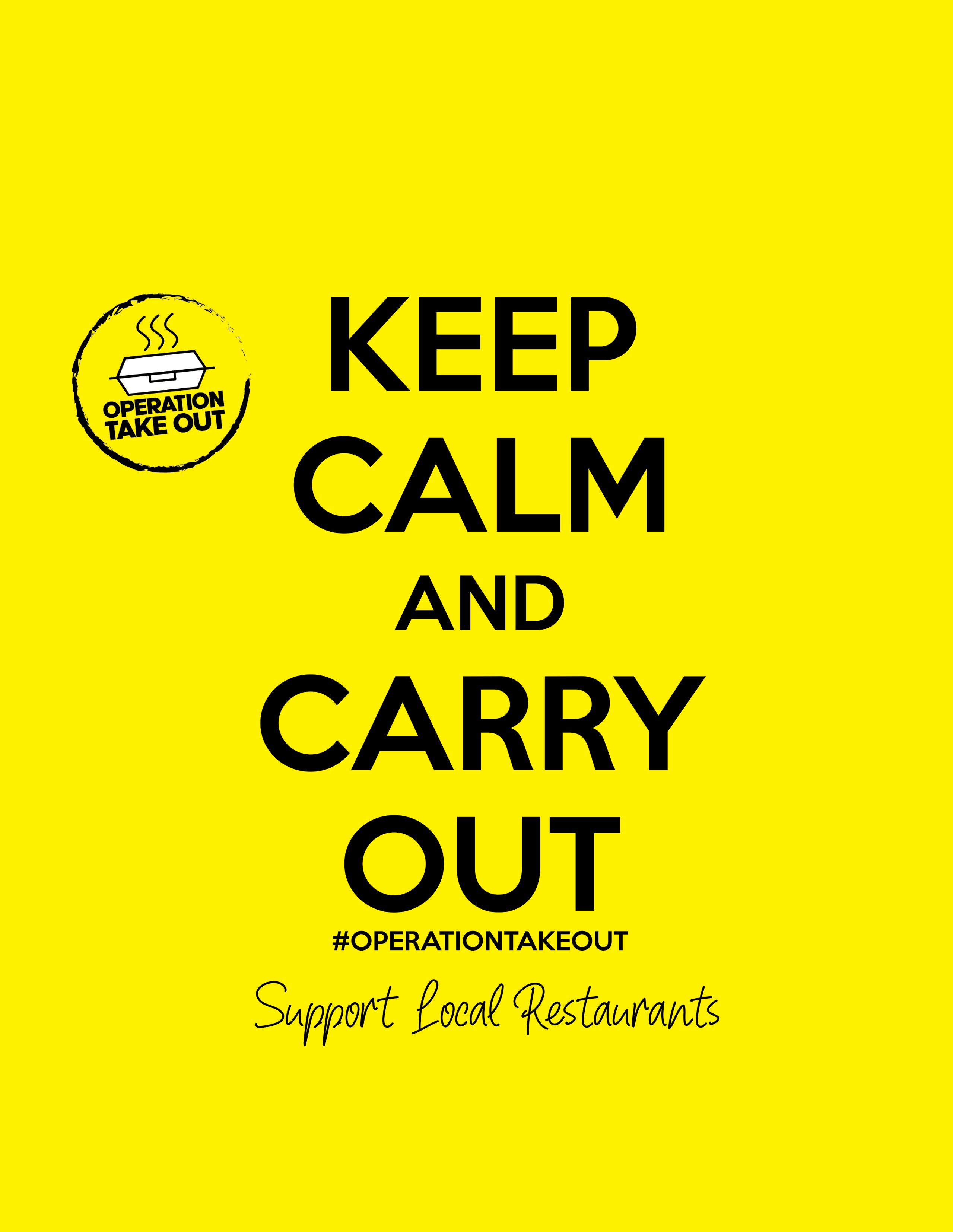
2020 Issue 1
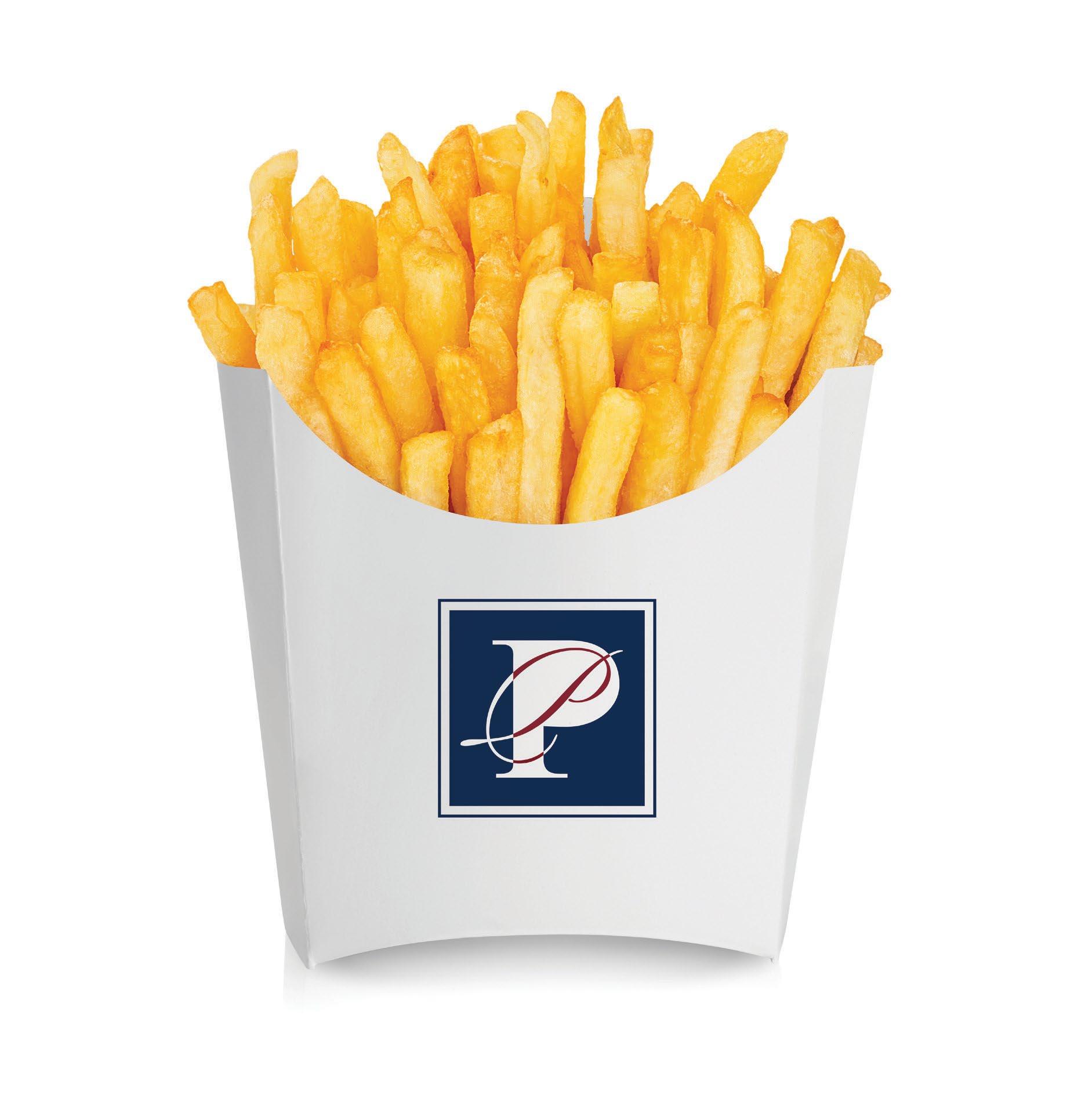

ppbifranchise.com 402.562.1800 FINANCING FOR New Builds Acquisitions Remodels Real Estate Refinancing Lines of Credit Would you like an experienced lender with that?
NFA Editorial Board
Drew Paterno
Executive Editor dpatern@aol.com
201-445-0055
Jessica Loeding
Editor-in-Chief jessical@nfabk.org
Sean Ireland Managing Editor seani@nfabk.org
Rachel Jackson Associate Editor rachelj@nfabk.org
Advertising Sales
Jeff Reynolds Director of Business Partner Relations jeffr@nfabk.org
678-797-5163
NFA Officers
Dan Fitzpatrick Chair
Jim Froio
Vice Chair
Drew Paterno Secretary
Steve Keith Treasurer
Steve Lewis
Chair Emeritus
Christy Williams
CEO
NFA Board of Directors
CANADIAN FRANCHISEE ASSOCIATION

Mike Kitchingman
FLORIDA/CARIBBEAN
Glenn Levins
GREAT MIDWEST
Adam Velarde
Matt Carpenter
Tony Versaci
GREAT WESTERN
Nasser Aliabadi
Gary Geiger
INTERNATIONAL HISPANIC
FRANCHISEE ASSOCIATION
Guillermo Perales
LARGE FRANCHISEE GROUP
Patrick Sidhu
METRO NEW YORK
Amir Syed
MID-ATLANTIC
Gary Andrzejewski
MID-SOUTH
Kevin Newell
Mike Callahan
Brent Northrop
Larry Stokes II
MINORITY FRANCHISEE ASSOCIATION
Camille Lee-Johnson
MOUNTAIN
Amir Allison
NEW ENGLAND
Brek Kohler
SOUTHERN CALIFORNIA
Shirley Humerian
SOUTHWEST
Michael Laird
OHIO RIVER
Matt Herridge
Bill Keller
Design and Layout
KT Graphic Design ktgraphicdesign@gmail.com
TABLE OF CONTENTS
2020 Issue 1
ON THE COVER
Carry Out
28 2020 Day on the Hill Brings Issues to Life for Franchisees
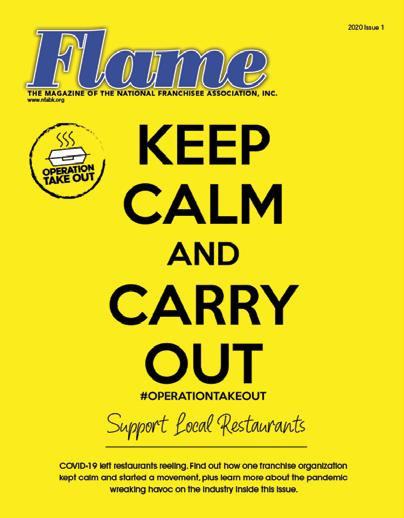
32 RSI Launches New Mobile Inventory Application contributed by RSI
34 Turning Participation into Education: How Franchisee Support Provides Scholarships for Students contributed by the BURGER KING McLAMORESM Foundation
36 Lockton Affinity Provides Smooth Transitions for NFA Members
38 How to Manage the Risks of Water Damage contributed by Lockton Cos.
40 Green Mountain Announces Greenguard Profit Center Program for Multifamily Property Owners
41 The Power of Presence by Dennis Snow, Snow & Associates Inc.
42 Expanding Predictive Scheduling Laws Will Affect You by Douglas H. Duerr, Elarbee Thompson
44 Talk About Big Dreams and Little Details Every Day by Dan Coughlin, The Coughlin Co.
46 How Leaders Can Get More Done Through Others: How Micromanagement Can Kill Productivity and Creativity by Laura Stack, The Productivity Pro®
49 New Year, New Tax Law Changes for Restaurant Owners by Stacy Smith, Mize CPAs Inc.
HEADQUARTERS 1701 Barrett Lakes Blvd. NW, Suite 180 Kennesaw, GA 30144 Phone: 678-797-5160 • Fax: 678-797-5170 www.nfabk.org The National Franchisee Association, Inc., comprising regional BURGER KING® franchisee associations, publishes the Flame. Any reproduction, in whole or in part, of the contents of this publication is prohibited without prior written consent of the National Franchisee Association, Inc. All Rights Reserved.
In the face of the unprecedented challenge COVID-19 created,
and Quality Dining Inc. brought together QDI’s 235 restaurants and the industry with a simple, timely message: Keep Calm and Carry Out. For more on the movement, see page 26. Columns 02 Keep Evolving to Meet the Challenges of This Crisis by Dan Fitzpatrick, NFA chair 04 Standing Together While We Stand Apart by Christy Williams, CEO Departments 06 NFA Member News 13 Regional News 13 Calendar of Events 16 Legislative News 50 One Topic: 10 Facts 51 Look, Listen, Read Directories 21 Support the Vendors That Support Your Association 52 Editorial Calendar and Advertisers Guide Features
by
emeritus
NFA
Dan Fitzpatrick
05 Thank You, Alex Macedo!
Steve Lewis, NFA chair
14
Regional Associations
In Memoriam: Jim Gullo
In Memoriam: Gene Wharton
Meet the Newest Members of the NFA Board of Directors
The Takeout Takeover: Optimizing Your Restaurant for Carryout and Delivery by Savannah Daly, NFA communications coordinator
The Coronavirus: Communicating With Partners Protects Your Business by Sean Ireland, NFA associate director of communications 26 Keep Calm and
17 Spotlight on 116th Congress: Rep. Elise Stefanik (R-NY-21) 18
19
20
22
24
Keep Evolving to Meet the Challenges of This Crisis
In my last message to you in Flame magazine, I wrote that “Evolution in business is necessary for long-term success.” Little did any of us know that just a few short months later, we would be tasked with evolving to survive the biggest business crisis any of us have faced.
COVID-19, a virus few of us had heard of at the start of the year, has swept across the globe in weeks. Its highly contagious nature has changed life in our nation in ways that were unimaginable to us at the start of 2020. At this writing, shelter-in-place orders and mandatory business closures have been issued by local and state governments throughout the country. We are all practicing social distancing guidelines to try to “flatten the curve” of those who become ill.
With most of our restaurants closing dine-in service, we’ve had to unexpectedly but quickly pivot to sales made by drivethru and delivery. It’s been a change none of us anticipated but have made as fast as we can. Even so, our industry has been dealt a devastating blow: The National Restaurant Association estimates that restaurant sales will decline by $225 billion in three months and that between 5 million and 7 million industry jobs will be lost. There’s no way to overstate the damage that this virus has done to our national economy and, particularly, to our industry. No matter how quickly life returns to normal, our businesses and employees have suffered difficult financial blows that will affect us for months, if not years.
I wrote in the last issue of Flame, “Brands must always be reinventing themselves. Leading brands do not maintain their position unless they meet the needs of changing market and consumer tastes. … As the world around us continues to evolve, we must be agile and willing to adapt when opportunities arise.”

It is very difficult to consider the crisis brought on by the coronavirus as an
opportunity, but it still does require us to be agile and willing to adapt, and we are doing that, even in the face of questions about how long it will take our nation to return to a semblance of normal operation. Even as there are many unknowns, there are positive signs. We are getting some help from government and Burger King Corp. On March 27, Congress passed the Coronavirus Aid, Relief, and Economic Security (CARES) Act, which offers a package of forgivable loans, tax credits and delays, and other forms of aid to smallbusiness owners. Burger King Corp. is also announcing ways it will provide relief to franchisees.
There are things you should be doing that will be helpful to your business as well:
• Communicate. Contact your division managers to discuss your future capital commitments, including remodel plans and requirements and new development. Communicate clearly what your needs are. Remain in communication with your equipment suppliers and RSI about changes to your business. We must treat our vendor partners as thoughtfully as possible.
• Be positive. I have made several media appearances in the communities where our company has restaurants to assure the public that our restaurants remain safe and open, and that our employees are eager to provide them with great food and service. In this difficult atmosphere, be hopeful, not only for your communities, but also your employees. Set the tone for your organization.
Your National Franchisee Association has also been working to help. Through the NFA, we are communicating with BURGER KING leaders about the difficult challenges that we are facing. The NFA has also been staying on top of the fast-moving events in Washington, D.C., as our leaders draft legislation and regulations to provide relief. Many of you answered the calls to contact your members of Congress to urge
them to change and pass legislation that would help all of us. Thank you! Your participation made a difference. The NFA has hired a law firm to compile a user-friendly guide on the coronavirus relief laws so we can all access these programs on the most immediate basis possible.
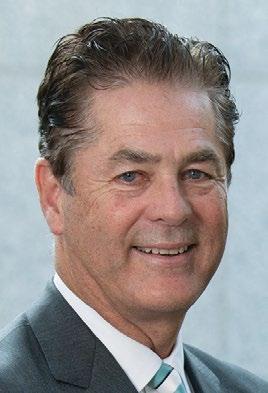
 by DAN FITZPATRICK
by DAN FITZPATRICK
We have offered webinars featuring experts explaining how to react to these disruptions and move forward. In addition, the NFA is offering guidance through its health and property and casualty insurance resources. Lockton Affinity, our property and casualty co-broker partner, created a coronavirus employer guide as a tool to help protect you and your employees. Unfortunately, we’ve had to reschedule the Leadership Exploration and Development (LEAD) Conference planned for June for our above-restaurant leaders. The event will now be held March 9-12, 2021, at The Cosmopolitan in Las Vegas.
This is an evolution in our businesses the speed and scope of which has been stunning. In the short term, this crisis has inflicted fear and suffering on our employees and communities and significant damage to our businesses. However, I am confident that by working together and working with our franchisor in this challenging environment, we are quickly adapting in ways that will make our relationships and organizations stronger down the road.
Keep adapting. Keep working. Stay positive. Keep evolving in the face of this challenge. Godspeed to all of you, your businesses, your teams and your families. n
2 Flame | 2020 ISSUE 1
FROM THE CHAIR

I elevantahealth.com/nfa I www.elevanta.com
memberservices@elevanta.com
FROM
Standing Together While We Stand Apart
Our world has changed in ways unimaginable to all of us just a few months ago. The COVID-19 virus has spurred an economic crisis unlike anything the United States has ever seen.
The restaurant industry has been particularly hard hit by the consequences of health experts’ recommendations of social distancing and stay-at-home orders. In nearly every state, the dining areas of restaurants have been closed, pushing restaurant sales to drive-thrus or delivery services for BURGER KING® and all other brands, too. Though many of you quickly pivoted to this new way of doing business, the effects have been devastating. The National Restaurant Association reported restaurant sales were down by an estimated $80 billion through late April and could reach $240 billion by the end of 2020. Industry job losses stand at 8 million as of late April.
We know that your businesses have been badly damaged by this pandemic, and the future is uncertain. As this is written, a few states have begun the very earliest stages of reopening by allowing restaurants to operate with limited seating capacity. The nation’s economic engine – humming efficiently when the pandemic struck – is getting restarted with a cautious eye still focused on keeping COVID-19 infections under control.
Life may not ever return exactly to the way it was before the coronavirus struck. Remember how our nation had to adjust to new safety measures following the 9/11 attacks? No one passes through airports today as they did before 2001. We adjusted to additional security measures that are designed to keep us safe and prevent such a catastrophe from occurring again.
This situation requires that we do it again. We may not know exactly what life will be like in the months to come, but because you have suffered from a business disruption like no other, recovery is going to take time. It may even require that you operate differently than you have before. What you should know, however, is that the NFA and Elevanta stand with you during this difficult time.
Since the pandemic first began affecting the U.S. at large in mid-March, NFA leaders and staff have been focused on finding ways to assist members as they adapt their businesses. The NFA Board of Directors has met regularly and communicated often with Burger King Corp. leaders to implement effective relief measures, freeing franchisees from some requirements for development, restaurant remodels and fees.
In late March, the board of directors of Elevanta announced two important relief measures for clients participating in the Elevanta Health proprietary group health insurance program. Health care premium payments that were scheduled to be paid by April 1 were deferred to later this year, with half now due Aug. 14 and half due Oct. 15. The deferral is an extraordinary step and represents nearly $1.7 million in immediate cash savings to Elevanta Health clients.
Additionally, Elevanta Health accelerated its payment schedule for participation refunds to clients who renewed with the program. The Elevanta board authorized the payment of the refunds, representing over $300,000, in advance of their typical timeframe in conjunction with the April premium deferral.

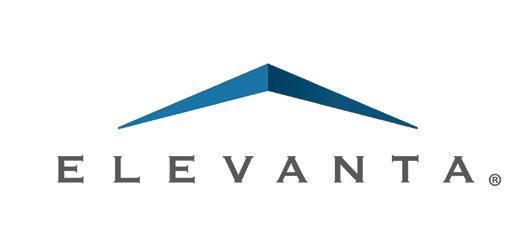
In Washington, D.C., Misty Chally, our vice president of legislative affairs, has tirelessly monitored all the relief measures that were proposed in Congress and worked with other industry groups to make changes that better fit the needs of franchisees. Thanks to those of you who answered multiple calls to contact your elected representatives about improving these bills. In the months to come, we will ensure your voices continue to be heard and your needs are considered by our nation’s leaders.
NFA staff have also organized webinars with two nationally recognized law firms, Littler Mendelson and Foley and Lardner, to help you understand the Families First Coronavirus Response Act (FFCRA) and the Coronavirus Aid, Relief and Economic Security (CARES) Act, which includes the Paycheck Protection Program (PPP). These
 by CHRISTY WILLIAMS
by CHRISTY WILLIAMS
webinars have guided numerous franchises on applying for these crucial loans to benefit your restaurants and provided information and best practices for protecting your businesses and its assets. The NFA and Elevanta websites have a comprehensive collection of resources – including recordings of each of the webinars, helpful articles, and guides from the U.S. Chamber of Commerce, IRS and others – to help you respond to the ongoing challenges you face. Be sure to check back often for updates as we move forward with recovery and more information is available.
As our nation returns to normal, or to its new normal, you can be assured that the NFA and Elevanta will continue to stand with you to help your businesses adjust and recover and that we will always be seeking new ways to serve. We look forward to the day when we can all be together again at board and regional meetings and at our rescheduled NFA LEAD Conference. This great system has been built on the camaraderie in the BURGER KING franchisee community. For now, we will continue to work on your behalf, hold virtual meetings and keep you, your families, your businesses and your employees in our thoughts and prayers for better days ahead. n
4 Flame | 2020 ISSUE 1
THE CEO
Thank You, Alex Macedo!
Editor’s note: Alex Macedo was president, North America, for BURGER KING® from 2013 to 2017 before becoming brand president for Tim Hortons. In December, Macedo announced he was leaving Tim Hortons and BK parent company Restaurant Brands International in March.
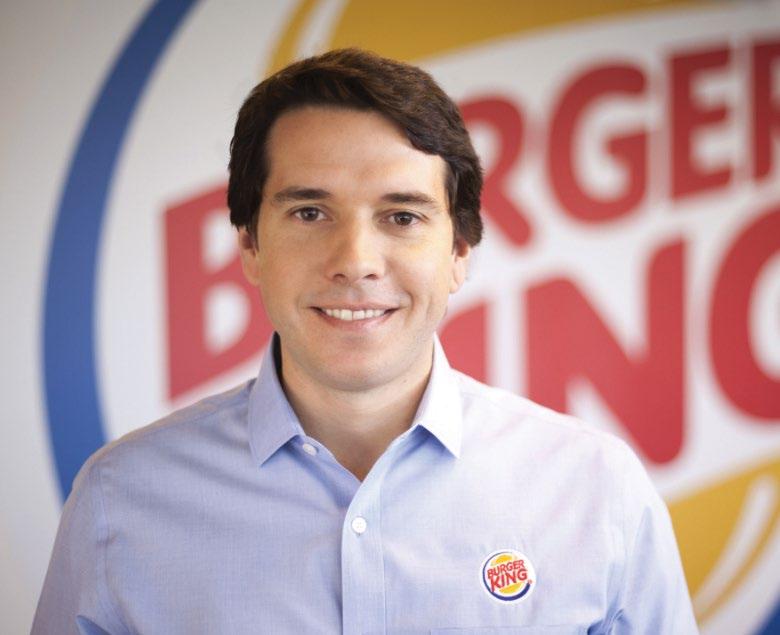
Thank you, Alex Macedo!
I hearken back to 2014, when several franchisees recruited me to run for the chairmanship of the National Franchisee Association (NFA). I was a franchisee who was somewhat disillusioned about where our wonderful brand was headed. From the onset of the campaign, there was quite a bit of angst from the BURGER KING leadership team as to what a Steve Lewis-led NFA would be as it related to esprit de corps, relationshipbuilding and general harmony. In other words, was there potential for an all-out franchisee-franchisor confrontation?
I’d been out of the NFA spotlight for 14-plus years. There was a misconception by BKC that I was a stark-raving renegade with a personal agenda, whatever that meant. All along, I had been having considerable conversations with my good friend, Dan Fitzpatrick, who kept assuring me that he felt Alex Macedo and Ricardo Acevedo were on to something in terms of putting the brand in a position to better compete in the fast-food hamburger category.
As the new chair, the first official meeting that Jim Froio (my NFA vice chair) and I held was in mid-October just prior to the NFA annual convention. Alex and Ricardo laid out their strategic long-term plan for where they wanted to take the brand. Both Jim and I felt it was well thought out, and we were both very comfortable with the plan’s tactics. I was personally “blown away” by the analytics associated with the presentation. The major problem, and the only thing missing from
my perspective, was that the franchise community had no idea how they had evaluated the brand’s performance and opportunity. We explained to both Alex and Ricardo that they needed to begin communicating their understanding of the direction the brand needed to go. Up to that point, they felt keeping their plans “close to the vest” was appropriate due to the potential of competitors finding out what we were intending to do. We told them not to worry about that. It was more important for the franchise community to be reassured that there was light at the end of the tunnel and that the calvary, Alex and Ricardo, had arrived. They followed our suggestion perfectly. We were off and running.
I will never forget our first major confrontation, which happened almost immediately following my first NFA Board of Directors meeting after I ascended to the chairmanship of the NFA. The franchisee community was embroiled in a BK® recommendation to nationally advertise chicken nuggets for $1.49. As the incoming chair, I made it a priority to communicate what transpired at regularly scheduled board meetings as quickly as I possibly could. Less than five minutes after we sent the franchise communication out, I had an urgent call from Alex. He was “HOT” – he wondered how I, as NFA chair, could try to sabotage the chicken nugget promotion. I told him to “settle down, big boy,” and assured him that under no circumstance was that the case. I told him to carefully re-read the communication, and that there was not any public opinion that I
had regarding the controversial proposal. I was reporting the “news” from the board meeting, and that’s what I would always do. I assured him that if I ever disagreed with his plans, he would know it firsthand. Thus, began a relationship that was always based on full disclosure. We would have heated discussions between ourselves regularly, but we both understood we had to work together to solve the complex issues ahead of us.
by STEVE LEWIS NFA Chair Emeritus
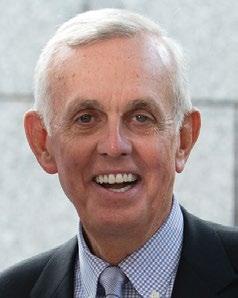

Under Alex’s leadership, there were many wonderful accomplishments. The three that stand out the most to me are:
1. Alex agreeing with our premise that we needed to strengthen the NFA committee process. When I originally proposed the idea to him, he was concerned that we were trying to “run the brand.” I assured him that would not and could not be the case.
2. The low-volume restaurant issue, which, by the way, continues to haunt our brand, was raised “up the flagpole” to Alex. While there was significant pushback and concern, we continued to focus like a laser on the fact that there were too many underperforming restaurants across North America. While it continues to be a problem as far as I’m concerned, he took the initiative as positively as he could.
3. The soft drink issue, specifically Freestyle, was a joint effort on not only BKC’s part but also RSI and the NFA working in harmony. Without our unified approach, we probably would not have been as successful as we were.
I could go on and on about the accomplishments BK North America had under Alex’s leadership, but all of you know that. What I simply want to do is to say, “THANK YOU, ALEX,” for your fabulous leadership during those very tumultuous times. You and your team were the beacon of hope we needed – the light and the energy we so desperately craved. Godspeed, Mr. Macedo. You will be missed, but not forgotten. n
2020 ISSUE 1 | Flame 5
TOMS King Reveals Freshly Renovated Location in Youngstown, Ohio
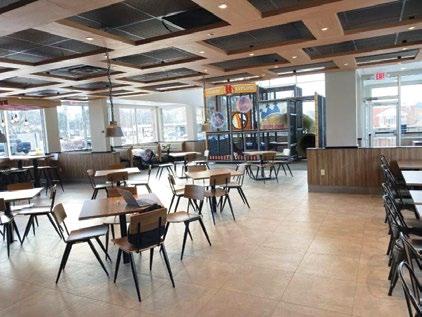
The TOMS King BURGER KING® in Youngstown, Ohio, started the new year with a new look. The restaurant had a makeover in late 2019 that included new tile, new décor and signage, new digital drive-thru menu boards and an additional drive-thru lane.
The remodel process took approximately 21 days to complete, and the staff closed parts of the store depending on whether construction was happening in the dining room or the drive-thru. “Making customers aware that we were open when construction was taking place was a challenge,” said Matt Carpenter, CEO of TOMS King. “We had banners ready at the store for this reason, but it is still difficult.”
The restaurant also had pennant flags, banners and bow flags to indicate that the store was fully open. The remodel has had a positive impact on the restaurant with year-over-year sales up 9%. n
Ocedon Opens New Location in Loveland, Colorado

Parade Enterprises Manager Wins BKC WHOPPER Challenge
Parade Enterprises, owned by Mahesh Patel, is celebrating the success of one of its team members. Betty Palma, general manager at the BURGER KING® in Trenton, New Jersey, who recently represented North America in the WHOPPER® Challenge at the 2019 BKC Convention in Miami, Florida.
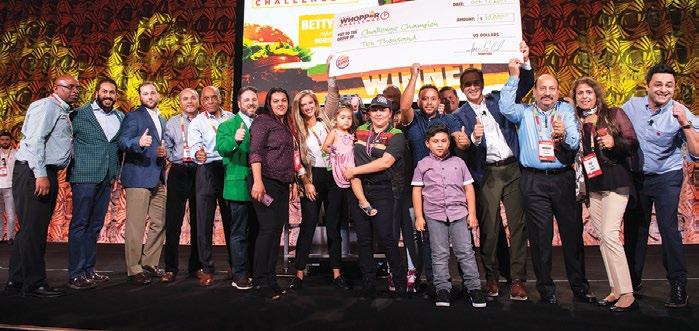

Palma has been a team member since 2005 and has had lots of practice making WHOPPERs over the years. The challenge consisted of two BK® team members facing off to see who could make a WHOPPER fastest.
Despite it being her first BKC WHOPPER Challenge, Palma won the entire contest and a prize of $10,000. She looks forward to using the money to renovate the kitchen at her restaurant, which needs a new stove and cabinets.
Palma returned home from Miami to an excited team. She says they are her favorite part of working at BK, and they describe her as a loyal and dedicated employee.
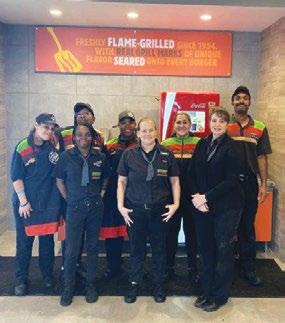
On Feb. 13, Ocedon, owned by franchisees Ken and Elena Donahue, hosted a grand-opening celebration for its newest BURGER KING® restaurant in Loveland, Colorado. After breaking ground on the restaurant last summer, it opened for business on Dec. 31.

Over 200 members of the community came from 5 to 7 p.m. for an evening full of fun. Guests received a free WHOPPER® for coming to the event, and guests of all ages enjoyed games, a balloon artist and music from a DJ. A raffle was conducted during the event, and three prizes were given away to lucky guests: Apple AirPods, a kid’s bike and a kid’s scooter.
“We are ecstatic that so many customers and neighboring businesses came out and celebrated with us to see our beautiful new restaurant, meet our team and enjoy some WHOPPERs!” said Ken and Elena Donahue. n
“The challenge was a new and exciting experience,” said Palma. “I welcomed it because I got to experience the Burger King Convention and explore Miami. I am grateful for the opportunity.” n
6 Flame | 2020 ISSUE 1 MEMBER NEWS
Team members at the BURGER KING in Youngstown, Ohio, celebrate the remodel of their new restaurant, complete with new tile and décor.
Ocedon team members celebrate the opening of the new BURGER KING restaurant in Loveland, Colorado.
Betty Palma and her supporters accept the $10,000 check for winning the 2019 BKC WHOPPER Challenge.
New Orleans ‘Burger Queens’ Receive Gift From Customer for Outstanding Service
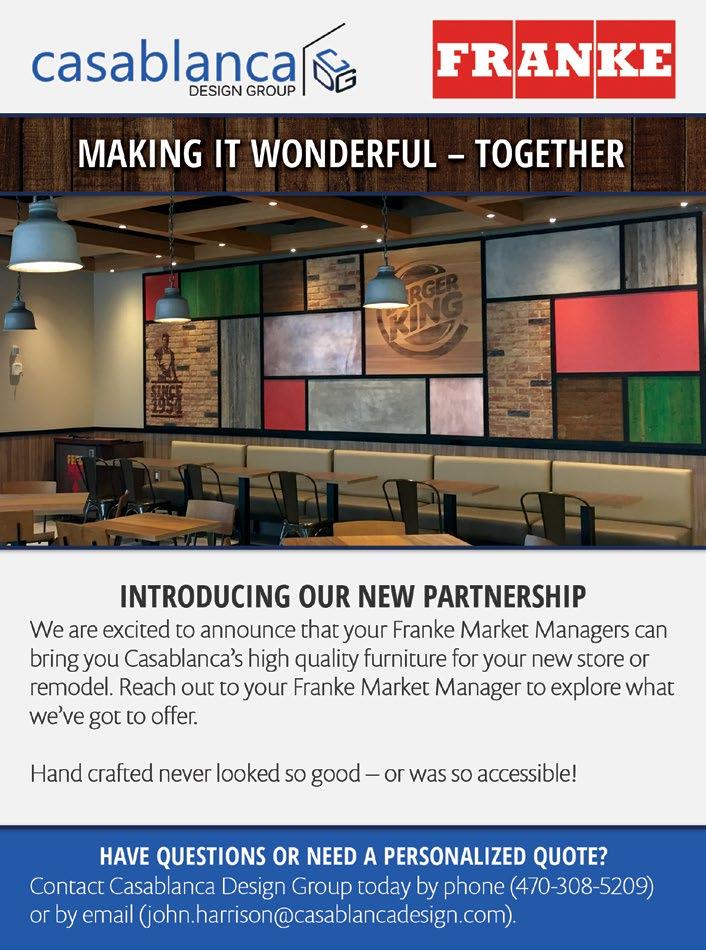

Over the holiday season, New Orleans TV news station WGNO created and aired a 12-days-of-giving segment for host Kenny Lopez to spread Christmas cheer to the community.

Jane Davis, a regular customer at the BURGER KING® on South Claiborne Avenue in New Orleans, which is owned by GPS Hospitality, wrote a letter to the news station to nominate three deserving BK® team members for the segment. “Over the past year-and-a-half, they have greeted me with warm smiles, questions about my family, tips on nail polish and talk of the Saints,” Davis wrote. “They know my voice and know my order on the intercom in the drive-thru.”
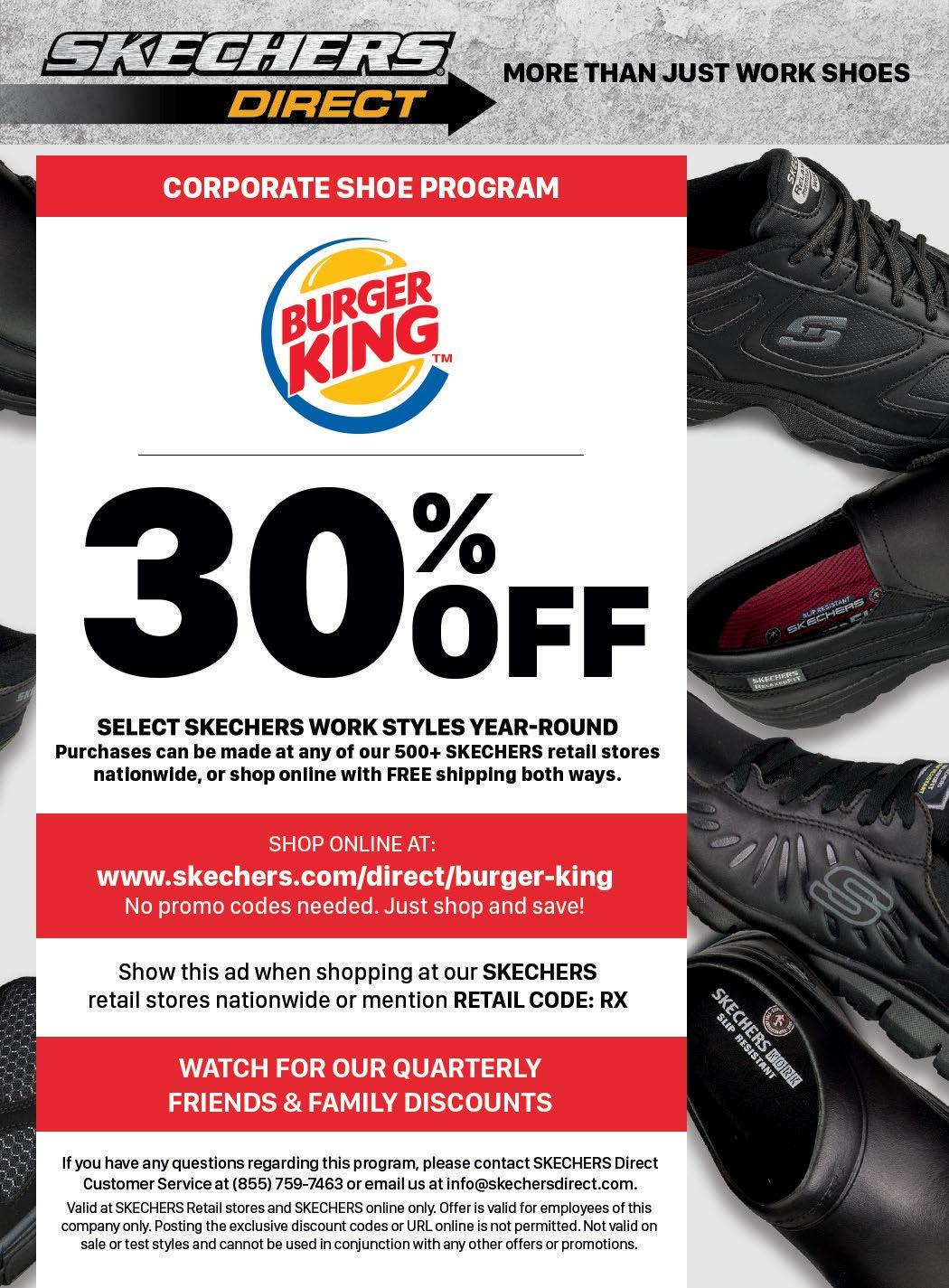
The three women are Val Thompson, general manager; Danielle Jenkins, assistant manager; and Ellean Jones, team member. Thompson and Jenkins have both been BK team members for over 30 years. The three women have all been affectionately nicknamed the “Burger Queens” by Davis.
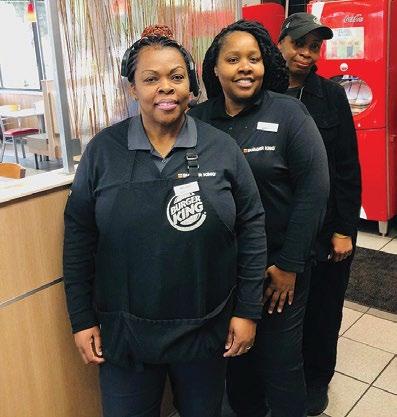
Lopez and Davis made a special trip to the drive-thru to surprise the women with some well-deserved gifts – jewelry from local designer Mignon Faget. All three team members were excited to receive their gifts and recognition on the local news.
From left, Danielle Jenkins, Val Thompson and Ellean Jones welcome customers into their restaurant each day with kind smiles.
“I show up to do my job every day and be as nice to people as possible because you never know what they’re going through,” said Thompson. “Receiving the gifts and kind words from Ms. Davis just makes it all worthwhile.”
“The Burger Queens certainly rule their kingdom with grace and positivity,” said Lisa Grier, director of communications for GPS Hospitality, which is owned by Tom Garrett. “We’re proud that these ladies exemplify our ‘service-obsessed’ values and were recognized by a guest [and the local media] for creating a great environment in their restaurant.” n
2020 ISSUE 1 | Flame 7 MEMBER NEWS
GPS Hospitality Opens Milestone BK Restaurant in Georgia
On Dec. 5, GPS Hospitality executives paused – briefly – to take note of a giant milestone in the company’s seven-year history: the opening of its 400th BURGER KING® restaurant.
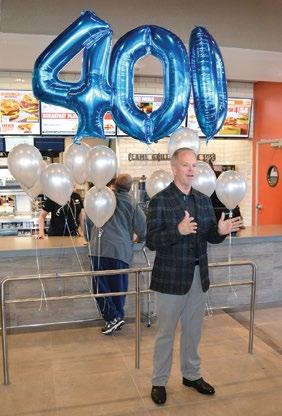
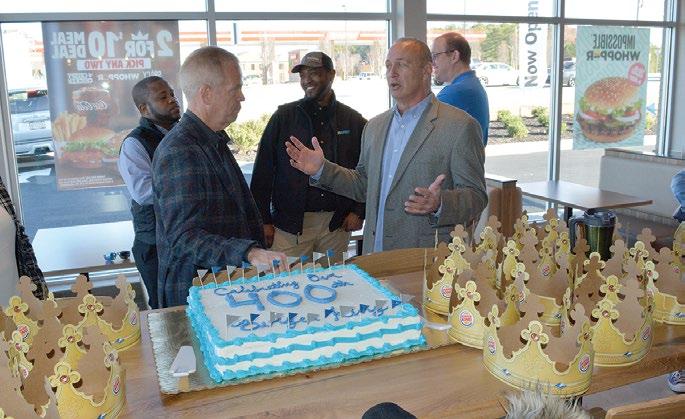

The landmark BK® is in Douglasville, Georgia, a suburb just west of Atlanta but in the heart of GPS Hospitality’s main footprint in the southeastern United States. The company’s headquarters is also in Atlanta.

The new BURGER KING is the company’s 493rd total restaurant – GPS Hospitality also owns dozens of Pizza Hut restaurants as well as several Popeyes locations.
The new store opening was celebrated with cake and a ribbon-cutting ceremony, but the remarkable growth that GPS Hospitality has experienced since its founding in 2012 doesn’t come from its executives spending much time highlighting achievements. They are always looking forward, anticipating the next challenge, preparing for the next step.
Growth is a key ingredient in the company’s success, allowing it to continually provide opportunities for its employees to advance. It’s part of the company’s values of being goal-focused, people-oriented and service-obsessed, values so important that they provide the initials for the GPS Hospitality moniker.

The BURGER KING brand, which makes up the biggest share of the company portfolio, has been an outstanding vehicle for growth. “First and foremost, it’s provided a lot of opportunities for our people,” CEO and founder Tom Garrett said. “As we’ve grown to 400 restaurants, it’s made an avenue for us to be able to help people to achieve their goals.” While GPS Hospitality is reaching for $1 billion in sales by the end of its first decade, the company is just as much, if not more, focused on giving its employees opportunities.
There will be plenty in 2020. “We’re going to renovate 44 BURGER KINGs, so a big part of what we do is taking old, tired BURGER KINGs and breathing new life into them, with this being the result,” Garrett said, nodding to the 400th restaurant’s high ceiling, bright natural lighting
and clean, open concept, all features of the ROC-60(T) store model.
In addition to the remodels, GPS Hospitality plans to open 10 to 12 new restaurants in 2020 – a dizzying combined construction pace averaging more than one location per week. There’s little doubt that such ambitious plans provide plenty of room for advancement at the company for those willing to take on the challenge.
“It’s really about us stretching to try to achieve more, and it’s about encouraging our people to stretch and achieve more, even the people that work in our restaurants,” Garrett said. “I started out working in a restaurant many years ago, and I’ve certainly benefitted from all the opportunities that afforded, and we believe that those
opportunities still exist today.”
It’s the growth opportunities that GPS Hospitality can offer that also helps it navigate tight labor markets. “Certainly, continuing to attract great people, especially in a competitive environment, is something that is always a challenge because we do have such high standards. A lot of our focus now is on how we take –we have 13,000 employees – how we take those people and develop them internally into the future leaders of the organization.”
The opening of the 400th BURGER KING restaurant is an outward sign of GPS Hospitality’s success doing that. “It’s exciting. People want to be a part of something that’s growing and successful,” Garrett said. n
8 Flame | 2020 ISSUE 1 MEMBER NEWS
The management team at GPS Hospitality celebrated the opening of its 400th BURGER KING restaurant on Dec. 5 in Douglasville, Georgia.
Left: Tom Garrett, CEO of GPS Hospitality, discusses the company milestone at the grand-opening celebration. Right: CEO Tom Garrett, left, and Michael Lippert, president of GPS Hospitality, with the cake celebrating the milestone occasion.
Daughter of PJ Foods Franchisee Selected in NWSL Draft
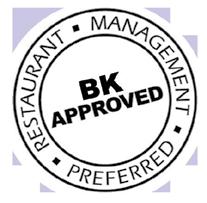





Bridgette Andrzejewski, daughter of BURGER KING® franchisee Gary Andrzejewski of PJ Foods, was recently drafted by the Houston Dash at the National Women’s Soccer League Draft in Baltimore, Maryland. The whole Andrzejewski family attended the draft on Jan. 16 and watched Bridgette as she was selected by Houston with the 18th pick.
Bridgette spent the last four years as a starting midfielder for the University of North Carolina (UNC) Tar Heels. During her time at UNC, she started 93 games, scored 28 goals and helped lead the team to three appearances in the NCAA College Cup. She was chosen the ACC Freshman of the Year in 2016.


Bridgette has been playing soccer since she was 4 years old and has worked hard to get to this position. “She is dedicated to the sport and now that she has graduated from UNC, her focus is becoming a professional athlete,” said Gary. “I’m proud of her accomplishments with the sport as well as graduating in three-and-a-half years so she could enter the draft early.”
Bridgette’s goal is to perform well in the professional league so she can play for the United States Women’s National Team. She began practicing with the Dash in early March, and her family can’t wait to see her play. n
2020 ISSUE 1 | Flame 9 MEMBER NEWS
Saves Money. Longer oil life and less oil absorbed into the food means lower costs! Cleaner. No loose powder with built-in system. Easy to Use. One-step processjust put in a new pad each day. Quick Circulation. Only 5 minutes and it’s ready to cook. Compact. 30-day packaging. Easy to store and track replacement usage. Versatile. Works with all types of oil including Zero Trans Fat Oil 1 step 5 minutes Filter Management Systems Gycor International, Ltd. 10216 Werch Drive, Unit 108 Woodridge, IL 60517 (800) 772-0660 FAX (630) 754-8084 www.gycor lters.com
The Gycor Advantage
Bridgette Andrzejewski, daughter of franchisee Gary Andrzejewski, helped lead the University of North Carolina Tar Heels to three NCAA College Cups. She is preparing to begin her professional soccer career.
Michael Lippert Promoted to President of GPS Hospitality

Michael Lippert was recently promoted to president of GPS Hospitality. His new role will include overseeing company development and leading restaurant operations, marketing and training. He will continue to report to Tom Garrett, founder and CEO of GPS Hospitality.
Lippert has held the position of chief operating officer since 2016 and has been responsible for the company’s day-today operations and marketing. Prior to working for GPS Hospitality, he served in a multitude of leadership roles at brands
Ocedon Partners With Vitalant to Host Mobile Blood Drives


January is National Blood Donor Month and serves as a critical donation period each year due to the drop in blood donations after the holiday season. Ocedon franchisees Ken and Elena Donahue wanted to make their Colorado restaurants a convenient place for donors to give blood.
Ocedon hosted mobile drives at six locations in January with Vitalant, the nation’s second-largest community blood service provider. The drives were promoted through social media and targeted advertising.
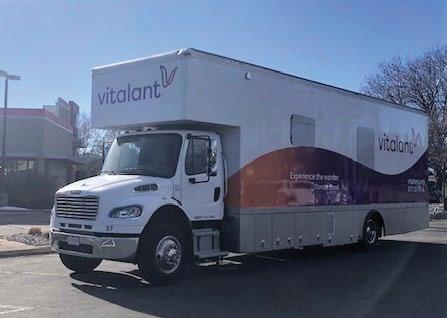
“We wanted to provide our restaurant locations to make it more convenient for donors to give back and to help save lives,” said Ken and Elena Donahue. “It was great to see our team rally and be involved also.”
Customers who donated blood at participating locations were presented with a voucher for a free ice cream. From Jan. 2-8, Ocedon restaurants provided Vitalant with 35 units of blood, which will transform as many as 105 lives in Colorado.
“Philanthropic partners like Ocedon play a vital role in ensuring that Vitalant is able to provide a safe and ready blood supply to over 1,000 hospitals across 40 states,” said Whitney Nielsen, donor recruitment representative for Vitalant. n
such as Captain D’s Restaurants, Arby’s Restaurant Group, RTM Restaurant Group and Pilot/Flying J Travel Centers.
“Michael’s strength of character, drive and work ethic have made him a valuable partner and an impactful leader,” said Garrett. “I’ve worked with Michael for more than 20 years and admire his ability to not only see the big picture, but also manage the details. Michael has made a tremendous impact since he joined the team, and I look forward to what he’ll contribute to GPS moving forward.”
“Over the past few years, I’ve had the honor of helping the team expand from 200 restaurants to almost 500, including the addition of a third brand,” said Lippert. “Tom built GPS based on our values of goals, people and service, and they have been the pillars for our growth.” Lippert said he looks forward to helping expand the company even further in his new role. n
Dee Smith, 81, Still Happily Working at MRB Foods Restaurant
Customers at the BURGER KING® in Carson City, Nevada, have an extra-friendly face to greet them when they enter the restaurant, owned by franchisee Sanjay Lillaney. Her name is Dee Smith –and despite being 81 years old, she works just as hard as her fellow BK® team members.
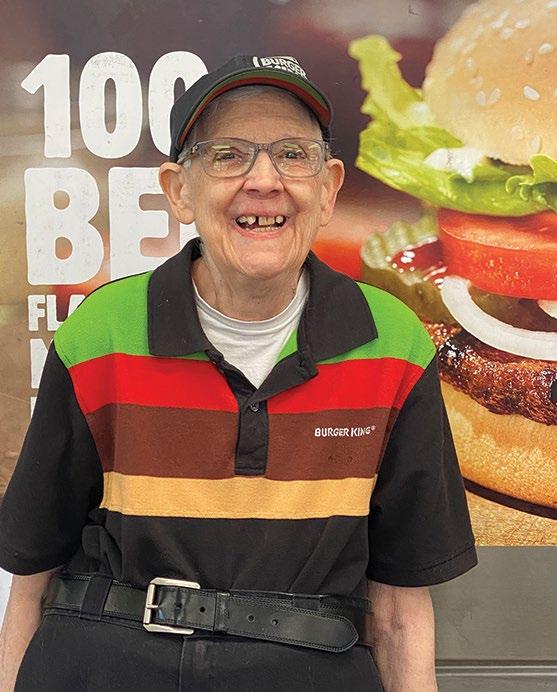
As a crew member, Smith’s responsibilities include taking orders, greeting customers and maintaining the cleanliness of the dining room. Team members and customers admire her because of her genuine and trustworthy personality – she is someone that any team member can count on. “Customers love her because she is very polite and makes everyone feel at home,” said Jaime Coble, district manager.
“We all love her. She is the most dependable worker I have and always shows up, no matter the weather,” said General Manager Christopher Jones. “She is known to always be on time and be willing to cover shifts if needed.”
Smith has no plans to retire any time soon. When asked about it, she said she won’t retire “until my legs give out or I am 6 feet under.” The Carson City BK looks forward to many more years filled with smiles from Smith. n
10 Flame | 2020 ISSUE 1 MEMBER NEWS
Dee Smith, 81, is a treasured employee at the BURGER KING in Carson City, Nevada.
Ocedon restaurants motivated customers to donate blood at mobile drives on Jan. 2-8 by giving a free ice cream voucher to all participants.
Michael Lippert, an experienced restaurant executive, was promoted to president of GPS Hospitality.
Glencoe Management Raises $44,399 for Opportunity Village




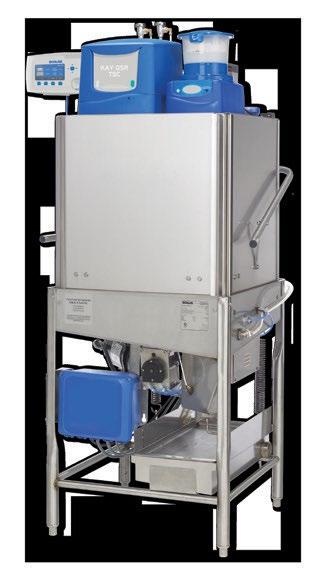




Forty-three BURGER KING® restaurants in Las Vegas, Nevada, spent September collecting donations for Opportunity Village, a not-for-profit organization serving adults with intellectual and related disabilities in southern Nevada. This was the third annual fundraiser put on by the restaurants, which are owned and operated by Tom McDonald and Steve Keith of Glencoe Management.
Guests who visited any of the 43 restaurants during the month could make a $1 donation and receive two coupons to use on their next visit: one for free French fries or onion rings and the other for one free soft-serve cup or cone. All of the proceeds from the campaign were donated to the Opportunity Village’s Magical Forest, the organization’s largest fundraiser and one of Las Vegas’ most popular holiday events. It features a forest filled with hundreds of trees decorated with holiday lights and activities for all ages.
“Opportunity Village’s Magical Forest is a treasured tradition in Las Vegas, and we are humbled by the response of our guests
during our annual fundraising campaign,” said Megan Keith, director of marketing for Glencoe Management.
Because of their fundraising efforts, the enchanted castle inside the Magical Forest was named in honor of BURGER KING and its guests. The castle is a central location and backdrop for many entertainment groups during the event, which runs from Nov. 24 to Dec. 31 each year.
Glencoe Management staff members attended a check presentation at the Magic Forest on Dec. 12. Bob Brown, president and CEO of Opportunity Village, expressed his thanks to Glencoe Management, BURGER KING and the southern Nevada community for their support. “It’s a beautiful thing knowing their donations, big or small, have the power to make a significant impact, improve lives and help cultivate a more inclusive society,” he said.
Glencoe Management is proud that it was able to bring together the community to help support the Magical Forest and looks forward to continuing this annual campaign. n
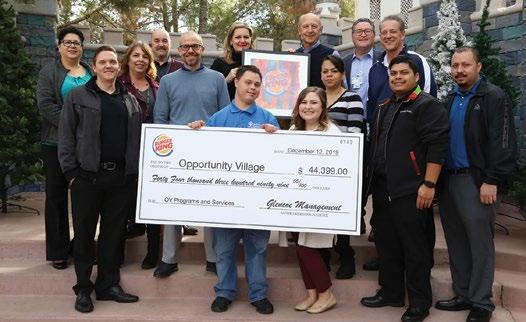
2020 ISSUE 1 | Flame 11 MEMBER NEWS Everything
A market-leading lineup of relevant, delicious foods you can trust—all backed by over 80 years of proven foodservice expertise. simplotfoods.com © 2017 J.R. Simplot Company
good begins with a seed.
Glencoe Management presented a check for $44,399 to Opportunity Village, a not-for-profit organization serving adults with intellectual and related disabilities in southern Nevada.
Ampler Burgers Works With Local Students to Stock Food Pantry for the Holidays
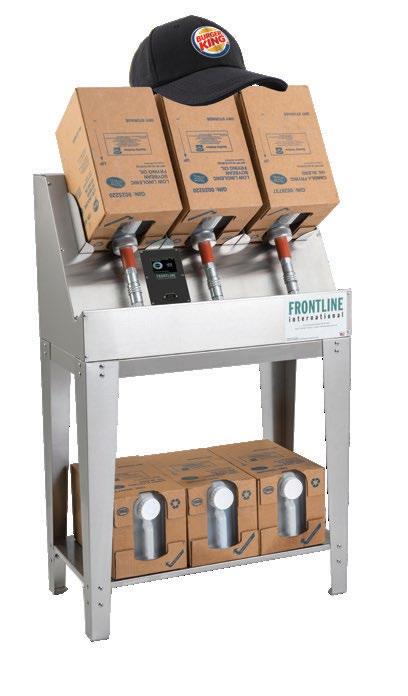
During the holidays, many people experience food insecurity. The student government association at El Paso Community College (EPCC) in El Paso, Texas, was eager to change this and created the Tejano Food Pantry, which donates food to college students experiencing food insecurity.
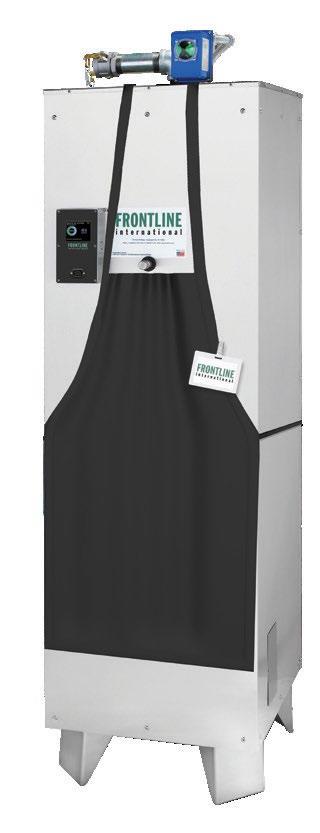
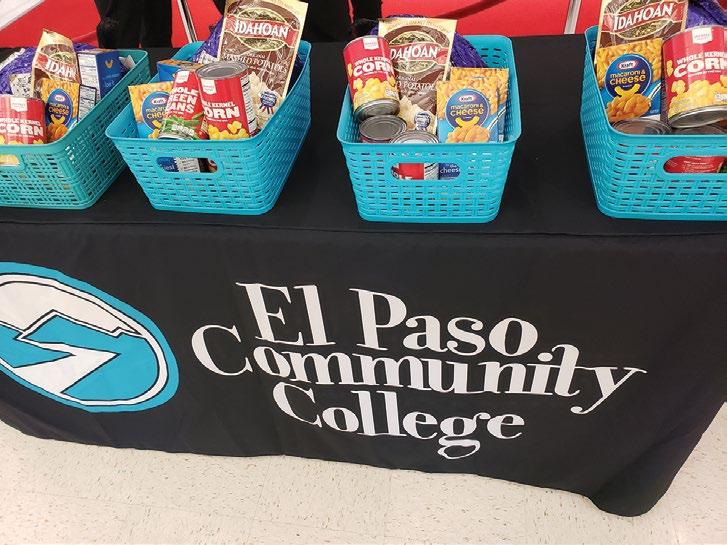

Knowing that some students might not be fortunate enough to have a Christmas meal, Ampler Burgers, owned by Kevin Fernandez, teamed up with its local elementary school, Horizon Heights, to provide 125 food baskets to families in need. Students and faculty at Horizon Heights Elementary School were encouraged to provide either physical or monetary donations. Each participant received a coupon for a free ice cream, and the class with the highest participation won a hamburger party.
On Dec. 16, Ampler employees delivered the baskets, which each included ham or turkey, green beans, corn, stuffing, and macaroni and cheese to EPCC President Dr. William Serrata and student government leaders. The baskets were given to not only EPCC students, but also other students of all ages across El Paso. Ampler Burgers President Matt Bars, Director of Operations Joe
Labrado, Marketing Manager Bonnie Soria Najera and Business Analyst Ali Sabzervari attended the presentation along with several community leaders and stakeholders.
Bars praised the students of Horizon Heights and EPCC for their hard work. “I’m truly astonished by the generosity and the thoughtfulness of what’s going on here at the elementary school as well as the community college,” he said. “You’ve got a college career that you’re working to get through and aside from all of that, you’re still taking time to think of others, which shows how you’re going to be great leaders and do really great things throughout your lives.”
Ampler Burgers recognizes that supporting future leaders is an important way to play an active role in its community. Company leaders hope to work with EPCC and the Tejano Food Pantry again in the future.
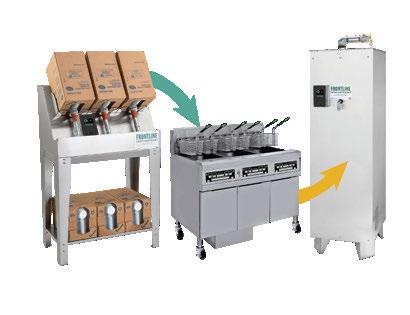

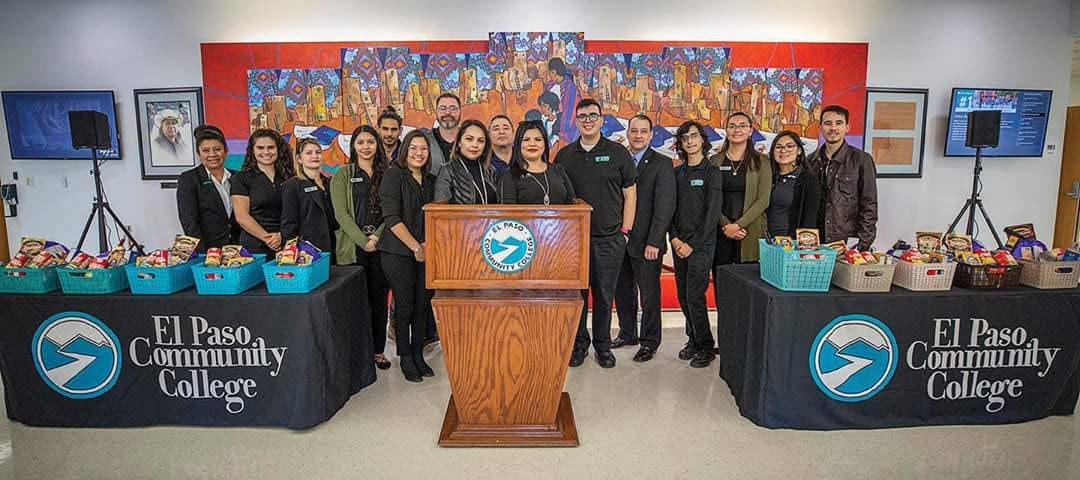

12 Flame | 2020 ISSUE 1 MEMBER NEWS
n
Ampler Burgers executives delivered baskets filled with food items donated by students and staff at Horizon Heights Elementary School to the Tejano Food Pantry in El Paso, Texas.
One hundred twenty-five baskets filled with Christmas dinner essentials were donated to students experiencing food insecurity in El Paso.
© Frontline International 2020 www.frontlineii.com 877-776-1100 In the era of a $15 minimum wage, Frontline is the answer. HIRED!
Frontline Smart Oil Management® Systems lower labor costs and the cost of cooking oil. No contracts or endless leases. Skip the interview and move straight to the hiring stage.
Regional Events
Sept. 16-17
Metro New York Franchisee Association Regional Meeting
Catskills, New York
Nov. 10-11
Mid-Atlantic Franchisee Association Regional Meeting
Baltimore, Maryland
Jan. 10-12, 2021
Mid-South Franchisee Association



Regional Meeting
Snowmass, Colorado
National Events
June 1-2
Elevanta Board Meeting
Atlanta, Georgia
July 21-23
NFA GRC Meeting
Washington, D.C.
Aug. 24-25
Elevanta Board Meeting
Atlanta, Georgia
Sept. 8-10
NFA Board of Directors Meeting
Atlanta, Georgia
Oct. 27-29
BKC Convention
Orlando, Florida
Dec. 1-2
Elevanta Board Meeting
Atlanta, Georgia
Dec. 7-9
NFA Board of Directors Meeting
Atlanta, Georgia
March 9-12, 2021
NFA LEAD Conference
Las Vegas, Nevada
Associations Meet Jointly in Puerto Rico
From Jan. 15-18, the Florida/ Caribbean and Mid-South Franchisee Associations met in San Juan, Puerto Rico, for a successful winter meeting. The destination provided for a warm escape for about 40 franchisees and 60 vendors. After earthquakes struck the island in the weeks preceding the event, attendees were fortunate that the hotel was not damaged, and the trip was unaffected.
The days were packed with informational sessions during which franchisees learned best practices on topics such as staffing, financials and construction. Other events included an RSI workshop and a town hall where all attendees could give input on ways to improve their BK® restaurants. There were plenty of opportunities
for franchisees to get to know vendor partners, from presentations to lunches and even a cocktail reception. The trade show also allowed for system suppliers to showcase their products and services to franchisees.
Attendees also enjoyed many delicious meals throughout the meeting. They dined at restaurant landmark La Casona, and even took a tour of San Juan’s local BURGER KING® restaurants and got to taste the differences between the menus from their own restaurants back home. Overall, the meeting was a great bonding experience for franchisees to grow their connections, learn best practices to take home to their stores and enjoy the beautiful city of San Juan. n
Great Western Franchisee Association Honors Loyal Member at Winter Meeting
The Great Western Franchisee Association (GWFA) recently held its winter meeting at THE US GRANT in San Diego, California, Feb. 16-18. GWFA members gathered and heard many updates, including an NFA update from Chair Dan Fitzpatrick, a Marketing Advisory Council update from Steve Lewis and an Elevanta update from CEO Christy Williams.
Bob Reid, a member of the RSI Board of Directors, provided insight on selling bagged ice in BURGER KING® restaurants. This is a new opportunity for franchisees with very low product costs. Other speakers included Shane Jacobs and Tom McDonald.
GWFA showed its appreciation for longtime meeting planner Janice Eberly during the closing dinner. After many years with the association, Eberly is retiring with the winter meeting being her last event with GWFA. She has served in many capacities for the association, from franchisee to president to meeting planner. Franchisees honored her with a plaque and surprised her with a $10,000 check for her dream vacation. Attendees shared many
kind words about Eberly throughout the evening, including GWFA President Jeff Rose and Dr Pepper representative Tracy Kearns.
Franchisees had many opportunities during the meeting to interact with vendor partners. The Texas Hold ’Em tournament on Monday night provided attendees with a little bit of friendly rivalry with cash prizes at stake. There was also a vendor appreciation lunch where franchisees took their “vendor passports” around to each table, collected signatures and submitted their completed booklet to enter to win a prize.
Vendors also donated items for a raffle, such as gift cards, cookbooks and even a TV. The split-the-pot raffle raised money for the NFA BURGER KING Franchisee PAC. Franchisees could buy one ticket for $5 or six tickets for $20. At the end of the event, a winner was drawn and got to keep half of the total amount raised, with the other half going to the PAC.
Between informational sessions, delicious dinners and exploring the city of San Diego, GWFA members had a great meeting and are looking forward to the next meeting. n
2020 ISSUE 1 | Flame 13 REGIONAL NEWS calendar
REGIONAL ASSOCIATIONS
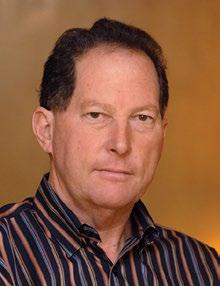


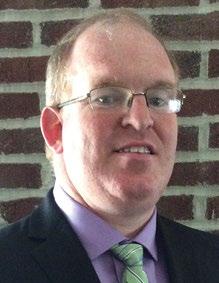
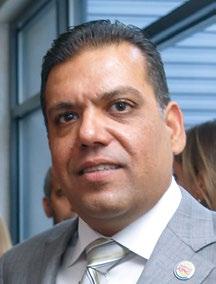
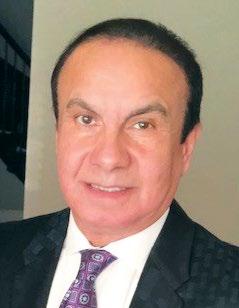

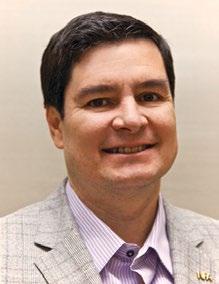
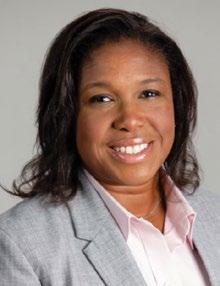
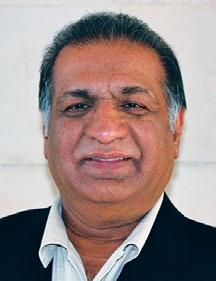
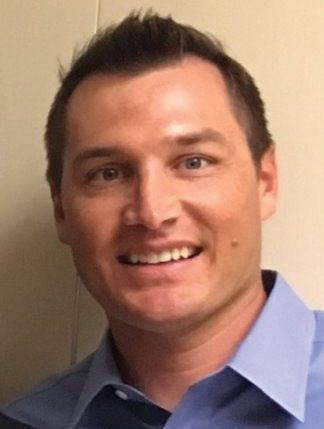


14 Flame | 2020 ISSUE 1
Jeff Rose Great Western Franchisee Association
Michael Laird Southwest Franchisee Association
Shirley Humerian Southern California Franchisee Association
Amir Allison Mountain Franchisee Association
Patrick Sidhu Large Franchisee Group
Camille Lee-Johnson Minority Franchisee Association
Guillermo Perales International Hispanic Franchisee Association
Mike Kitchingman Canadian Franchisee Association
Nasser Aliabadi Great Western Franchisee Association Mid-South Franchisee Association
Mid-South Franchisee Association
Kevin Newell Mike Callahan
Gary Geiger Great Western Franchisee Association

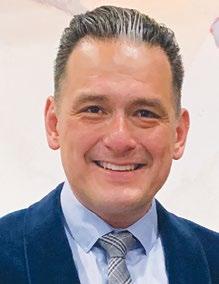

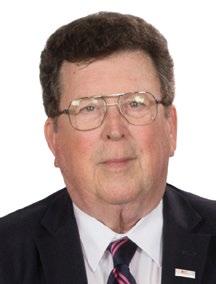
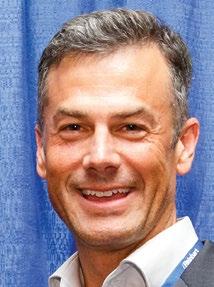


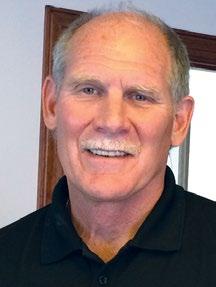
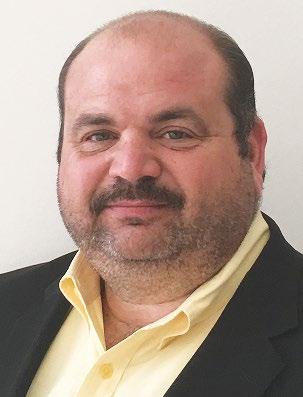
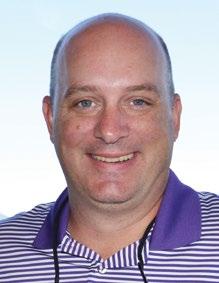
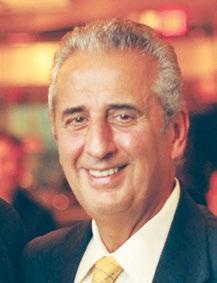
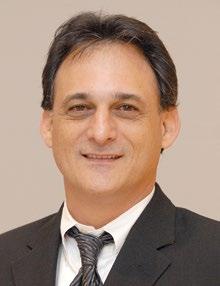

2020 ISSUE 1 | Flame 15
Adam Velarde Great Midwest Coalition
Tony Versaci
Bill Keller Ohio River Coalition
Matt Herridge Ohio River Coalition
Brek Kohler New England Franchisee Association
Amir Syed Metro New York Franchisee Association
Gary Andrzejewski Mid-Atlantic Franchisee Association
Russ Lo Bello Florida/Caribbean Franchisee Association
Mid-South Franchisee Association
Great Midwest Coalition
Matt Carpenter Great Midwest Coalition
Brent Northrop Glenn Levins Florida/Caribbean Franchisee Association
Mid-South Franchisee Association
Larry Stokes
Franchisee PAC UPDATE

In 2019, the BURGER KING®
Franchisee PAC raised $150,850 toward electing and supporting probusiness legislators. The generosity of everyone who contributed is greatly appreciated.
Thank you to the following donors:
Martha Abbott
Amir Allison
Luke Andrzejewski
Scott Andrzejewski
Marianela Aran
Nathan Avard
Thomas Barnett
Perry Beaton
Emily Bennett
Christy Berg
Kevin Berg
Danae Boyd
Edward Braddy
Randall Bradley
Thomas Brennan
Annette L. Broatch
Ronald Broatch
Michael Callahan
Thomas Cardarelli
Matt Carpenter
Diane Clayton
David Cooley
Carla Cribb
Bill Degen
Robert De La Rosa
Robert Diaz
Michael DiSeveria
Nicole Dreier
Dan Drury
Kevin Egnatuk
Willard Eldred
Kim Ervin
Mark Escamilla
John C. Firth
Daniel Fitzpatrick
Daniel Joseph Fitzpatrick
Jerry Fitzpatrick
Christopher Flis
Dominic Flis
Jason Froccaro
James Froio
John Gross
Kevin Haas
Louis Henry
Matt Herridge
Bradley Hoag
Shirley Humerian
Gregory Johnroe
Christopher Johnson
Steven Keith
William Keller
Perry Kellett
Brek Kohler
Larry Kohler
Nicholas Kraft
Michael Laird
Camille Lee-Johnson
Gary Levins
Glenn Levins
Rachel Levins
Steven Lewis
Russ Lo Bello
Brad Mailloux
Barbara McDonald
Thomas McDonald
Christopher McFall
Colleen Meyers
Stephen Miller
Dave Moore
Gary Moore
Alfred Morin
Jack Muirhead
John Muirhead
Kevin Newell
Brent Northrop
Edward Northrop
Todd Northrop
William Oldershaw
Eric Oppenheim
Drew Paterno
Grayson Patterson
Bruce Pavlikowski
Terry Piotrowski
Brian Robison
Gary Robison
Jeff Rose
Vance Rossell
Allison M. Schuster
Todd Schuster
Glenn Seyfert
Patrick Sidhu
Veerkaran Singh
Karen Smith
Robert J. Spaulding
Charles Spirk
Lawrence Stokes
David Sutz
Amir Syed
Jay Syed
Rao Tummala
Srinivasa Tummalapenta
Patricia Vasquez
Cindy Vaughn
Adam Velarde
Tony Versaci
Michael Wallstein
Michael White
Kim Zeller
16 Flame | 2020 ISSUE 1
Spotlight on the 116th Congress: Rep. Elise Stefanik (R-NY-21)
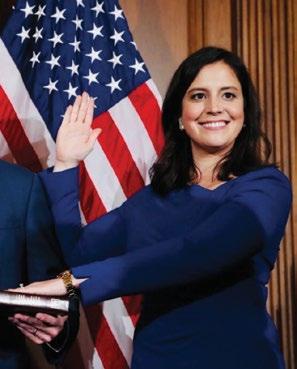
QThrough your tenure as a public servant, what qualities or skills did you develop that you utilize as a representative?
AThe ability to listen. When I first ran for Congress, one of the best pieces of advice was from former Speaker Paul Ryan, who told me, “You have two ears and one mouth, use them in that ratio.” The power of listening is incredibly important for elected officials. Our job is to hear constituents’ concerns and ideas and legislate based on their feedback. My best legislative ideas and solutions come from innovative ideas shared with me by constituents.
Hard work. I was raised with a very strong work ethic and won my first campaign because of an effective message and outworking my opponent. I try to bring that work ethic to my job every day. I have participated in over 1,000 constituent district outreach events since I was sworn into office.
The importance of bipartisanship. I am proud to be in the top 10% of the most bipartisan members of Congress, according to The Luger Center. Solving problems often means working across the aisle.
QWhat do you see as the current biggest threat to small-business owners?

AOne of the most common things I have heard from small businesses and manufacturers across the North Country is the need for high-skilled, trained workers. To compete in a 21st-century economy, workers need the skills and experience necessary to secure these highskilled jobs. I am proud to have led on a number of initiatives, including the Career and Technical Education (CTE) for the 21st Century Act, aimed at increasing opportunities in higher education. This bipartisan legislation that I developed with my colleagues on the House Committee on Education and Labor and was signed into law updates federal CTE policies to help more students gain the knowledge and skills they need to compete for in-demand jobs.
Another threat many small-business owners face is the rising cost of health care. I was proud to introduce a reform to repeal the “auto-enrollment mandate,” an unnecessary and duplicative part of the Affordable Care Act that reduces choice in health coverage and creates confusion that can lead to significant tax penalties on both the employee and employer. I was also proud to co-sponsor the Small Business Health Fairness Act, which would empower small businesses to join together through association health plans to provide their employees greater access to affordable health care.
QHow important is legislation, such as the Accelerated Payments for Small Business Act, to small business in the United States?

AMany small businesses in my district struggle with timely access to essential capital that they rely on to engage in new projects, pay their employees and expand their businesses. Legislation such as the
Accelerated Payments for Small Business Act would expedite the much-needed cash flow that businesses need to grow and succeed. The bill would direct federal government agencies that contract with small businesses to pay those small businesses within 15 days, rather than the current 30-day standard.
QHow has being the daughter of smallbusiness owners influenced your opinion on the impact of legislation on small business?
AWhen you grow up in a small-business family, you inherently understand that it is a 24/7 job and the buck stops with you. You also learn the true importance and value of positive customer service. I have brought this perspective to policymaking and constituent services in Congress. I understand that small businesses are the engine of any local economy, and I am committed to advancing policies in Congress to help entrepreneurs grow and succeed. When it comes to constituent services, we try to instill the value in my district and D.C. offices of the importance of customer service – timely, friendly and efficient. I will continue working with my colleagues in Congress to promote the important economic role of our nation’s small and locally owned companies and hard-working families across our district as they pursue their dream of running their own businesses.
QIn what ways are you seeking feedback from small businesses in New York and then using that information in your role on the Committee on Education and Labor?
AI have participated in hundreds of small-business and manufacturing tours in my district. I also have cultivated a great working relationship with the local chambers of commerce throughout the North Country and am constantly meeting with small businesses across my district to understand how I can best serve them in Congress and as a member of the House Education and Labor Committee. For example, I’ve come to notice that independent work arrangements, often coordinated through online platforms, provide freelancers and small businesses with the freedom and flexibility to provide specialized services on a per-job basis, while promoting economic growth through an efficient pairing of providers with consumers. However, expansion of the independent workforce is under threat due to outdated laws that increase the cost and complexity of doing business. As a member of the Education and Labor Committee, I was proud to introduce the Modern Worker Empowerment Act to end the current patchwork that increases the cost and complexity of contracting with independent contractors. This bill would empower self-employed individuals to compete on a level playing field, while allowing companies to obtain services in an economically efficient manner. n
2020 ISSUE 1 | Flame 17
IN MEMORIAM
James R. Gullo
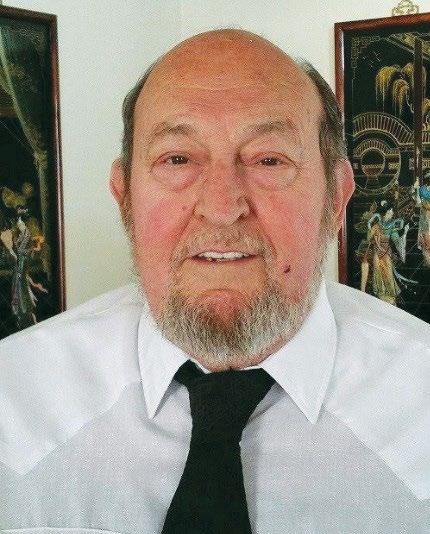
As an owner respected and well-liked by his fellow franchisees and as an operator known for his support of BURGER KING® and the National Franchisee Association (NFA), Jim Gullo will be deeply missed across the BK® system.
James Russell Gullo, 84, died Jan. 5 after a short illness. Described by a fellow franchisee as a “gentle giant with a big heart who loved people,” he was the CEO at C&G Management, which operates 10 BURGER KING restaurants in southern Utah and one in Arizona. Gullo had been a franchisee in the system for 20 years.
He was born in Buffalo, New York, and began his career as a truck driver there before opening his first restaurant, called Henry’s Hamburgers. He opened more over the next 10-12 years as he worked with his brother, John, before moving to Florida, where he opened independent food-service businesses, including a bar on the beach in Hollywood, Florida, called Oceans Eleven, and another in Dania, Florida, called Dry Dock.
himself with good operations people,” John Gullo said. “Business drove him all the time, and that’s where he got his identity.”
With only a few franchisees in the area at the time, Jim Gullo quickly became a voice trusted by others for his knowledge and experience in the food-service industry, said David Williams, a franchisee of more than 60 BK restaurants, including several in Utah, with H.B. Boys L.C.
Gullo and his fellow franchisees in the area became strong supporters of the NFA as it grew from regional organizations into a national one. They were guiding forces as the regional association covering the area, the Northern California Franchisee Association, merged with the Northwest Franchisee Association to become the Great Western Franchisee Association. Through the changes, Williams and Gullo became longtime friends. When Gullo joined the system, there were, “at the most four to five franchisees for the whole area,” Williams said. Through meetings about merging and growing the associations, those franchisees grew closer and came to rely on each other for help and advice.

“He was at all the meetings,” Williams said. “He had a great interest in knowing what was happening. Jim always had his opinion, and everyone really respected the guy. He got along with everyone. He would listen to everyone’s thoughts and then opine on his position. He was not outspoken, but he was a great listener. He heard what others said and then everyone listened as he gave his opinion.”
Jim Gullo and his wife, Toni, moved to St. George, Utah, in 1995. In 2000, Gullo became a franchisee for BURGER KING when he bought several restaurants from his brother, who had moved to the area to become a BK franchisee after working as a district manager in the system in New York. While John wanted to retire to follow his interests working with children, Jim’s focus was always businessoriented, his brother said. “He was a numbers man and surrounded
Williams also said that Gullo’s restaurants were always wellrun. “Often he and I would meet in one of his restaurants, and he was always aware of what was happening on the floor and what was going on around us,” Williams said. “His style was to delegate to key people. He held people accountable, and he was forwardthinking. He completely razed a BK in Cedar City, Utah, and built a brand-new restaurant there. He was very punctual on completing things in his restaurants. He was just a good franchisee.”
Gullo, and his wife, Toni, who died in 2013, fell in love with their home and community in Utah and were beloved by their employees. “He enjoyed his life,” said his brother, John. “He was a workaholic. That’s what ignited him. He found his pleasure from it, and he had a great life with a great wife.” n
18 Flame | 2020 ISSUE 1
“Jim always had his opinion, and everyone really respected the guy. He got along with everyone. He would listen to everyone’s thoughts and then opine on his position. He was not outspoken, but he was a great listener.”
– David Williams
Delano Eugene
Wharton
When Ord Delaney became an assistant manager at a BURGER KING® restaurant operated by Charton Management in 1988 at the age of 18, he was also a member of the United States Army Reserve. He was called up for active duty assignments overseas twice over the next few years. Gene Wharton, the owner of Charton Management, was so concerned that his young employee be able to speak to his family while deployed that he bought Delaney a satellite phone and paid for every call he made with it.
“That sums up who Gene was. He truly did care about you, the individual, every employee. He wanted to see all of us succeed and be happy,” said Delaney, now director of operations for Charton Management. After Wharton’s death on Feb. 21, friends and loved ones recalled many similar stories.
Delano Eugene “Gene” Wharton was a 40-year BK® franchisee who opened his first restaurant in Vienna, West Virginia, in 1979 and operated a franchisee organization that grew to have 24 BURGER KING locations. His company is now headed by his son, Grant, and son-in-law, Matt Herridge, who carry forward the spirit and values that Wharton first instituted.
Wharton leaves behind large footsteps. “He was a team player. He worked with others while appreciating others’ gifts and talents,” said one of his two daughters, Heather Ward. “My dad worked hard to understand the BK organization. He was an alliance builder in his BK stores and community. My dad genuinely cared about others. People that spent time with my dad felt noticed and that they were a part of the BK company. He truly was driven by being able to provide opportunity for others to have jobs.”
Every employee of his company was touched, in one way or another, by his compassion and care. “Gene led with optimism and through Christian principle,” Herridge said. “He made sure to learn as much as possible about his employees and their families. He served as an elder for decades at his church and was known to anonymously help many people grow their careers and assist them financially as needed.”
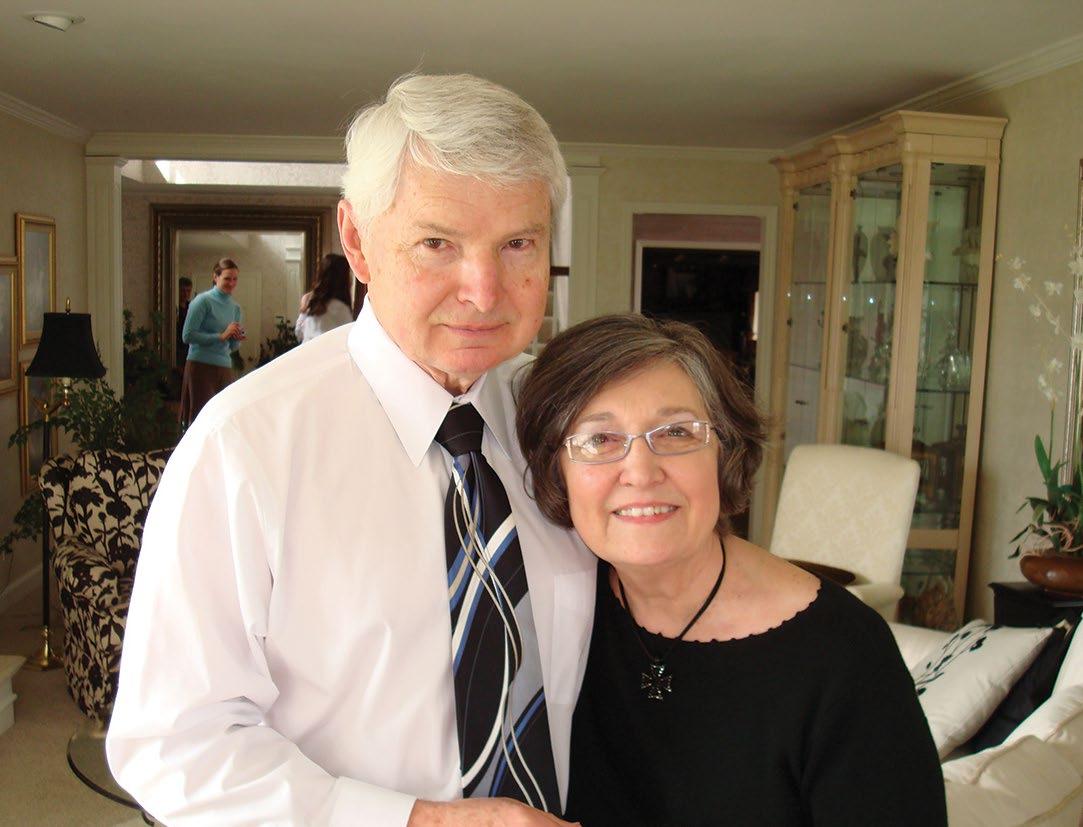
Wharton was an entrepreneur at heart. He started his first business at 14 with a mobile sheep-shearing machine of his own design. As a young man, he followed the wheat harvest through the Midwest. After a stint in the Navy, he met his wife of 60 years,

Joyce. They started living in Missouri and moved to Florida before settling in West Virginia with two daughters and a son to open their first BURGER KING restaurant.
“My dad operated his restaurants the same way he led his life, with integrity,” Ward said. “Growing up in a family business gives me many memories of the business side of my dad: from him helping in the BK kitchen when lunchtime was especially busy in his suit and tie to him working alongside carpenters and other construction workers when he would open a new store wearing his jeans and T-shirt. I also have a memory of our family and BK management helping make our own homemade billboard in our garage to put along the interstate. His character and morals led him to meet the needs at hand no matter what time of day.
“He was filled with compassion for others. He wanted others to be the best they could be, and he himself led by example. He held others and himself accountable to do work that was worthy of being deemed well done.”
Delaney said Wharton had the deep respect of those who worked for him and with him. “I remember being in these meetings. Everyone would be going back and forth on how to solve a problem, and he would sit and listen,” Delaney said. “Then he would ask a simple question or make a simple statement that no one had thought of. I learned from his example of listening to and processing the problem.”
Though known as an incisive businessman and hard worker, Wharton is best remembered for the support he gave to his employees, church and Ohio Valley University. He and his wife were stalwarts in their community, and faith was the foundation of their lives. Wharton served as an elder for 26 years at the Grand Central Church of Christ and was a strong backer of Ohio Valley University, serving on the board of trustees, including a term as a chairman. The Wharton School of Business at the university is named after him.
Wharton’s business and personal styles illuminated the principles by which the company and its restaurants are still managed. “His legacy continues because he set the stage for how his restaurants would operate,” Delaney said. “It truly was about his care for the individual employee.” n
2020 ISSUE 1 | Flame 19
“Gene”
MEET THE NEWEST MEMBERS OF THE NFA BOARD OF DIRECTORS

Each year, the National Franchisee Association (NFA) highlights individuals who have been welcomed to the NFA’s Board of Directors over the last year. The association would like to give a warm welcome to the following new board members: Bill Keller and Shirley Humerian. Read on to learn more about your newest board members.
BILL KELLER
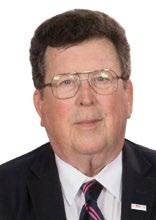
Title: Owner
Company: BMT of Kentucky Inc.
Number of Units: 15
Year entered system: Almost 45 but 20 years in current group
How did you become a BURGER KING® franchisee?
I started out as a Burger King Corp. employee in May 1975 as an assistant manager and worked through the next 14-and-a-half years in various operational positions. During that time period, I spent three years at BKU as a professor and the national field training supervisor. When I returned to the Michigan region, I spent three years in the marketing department, which included being the region marketing director for a couple of years. I then went back into operations until 1989 when Grand Met purchased the brand from BURGER KING.
I had worked with various franchisees since 1979, and I made the transition to a franchise group in northern Kentucky in 1990 as the operations director. My first official “operating partner franchisee” status was with this group, building three units in the mid-1990s. After selling the group to another operator, I stayed on for a couple of years helping grow the brand in the Cincinnati market.

In mid-1999, I began searching for opportunities that would allow myself to become an owner and not answer to anyone other than my family. On Feb. 29, 2000, we purchased six units in the Lexington, Kentucky, market, marking 20 years at the end of February since we entered the market. After seven years of getting our organization right, we began growing our company. My son, Tom, was a big part of why we could grow as he wanted to be part of this journey. Today, we are at 15 units strong and preparing to grow again.
What attracted you to the brand? Early career in the company and many of my peers went on to be successful franchisees so I was prepared to do the same. It just took me longer than my peers as I enjoyed learning the different positions in training and marketing.
What motivated you to become involved with the NFA at this level? I have been involved with the local association beginning in the ’90s, starting with the managers’ meetings that were hosted by the Tri-State Franchise Association. This led to the franchisee annual meetings. I also have been a board member for the last 20 years, and it was the merging of the Tri-State and the Pittsburgh/New York group that opened the opportunity to co-chair the Ohio River Coalition with Matt Herridge.
I have been on the Marketing Council and am currently on the RSI Board of Directors.
What do you see as your role as a board member? My role is to be an advocate for the franchisees in my area, to listen for
similar issues and solutions, and to share with the other members on the board those situations that are both positive and negative. If someone in our coalition calls and has an issue, I will take the time to direct that person to someone who can help him or at least get them some more information.
What would you most like to see accomplished during your term? I want to make sure that the members of the Ohio River Coalition have a voice with Matt and myself that represent their opportunities and issues with the brand. I want to be able to report the feedback that was given and hopefully assist in their decision-making.
We are challenged daily on how to save the “pennies” and to make a profit, and it is the collective mindset of all that helps each person recognize the opportunities that they might have to make a few extra dollars.
SHIRLEY HUMERIAN
Title: Franchisee
Company: S and M Restaurants Inc.
Number of Units: Down to only one!
Year entered system: 1971
How did you become a BURGER KING franchisee?
I used to work for BKC, where I started as an hourly employee and left as an area franchise leader. In 1980, they had a company program where you could become a franchisee if you had at least 10 years in, so I applied.
What attracted you to the brand? The food quality has always been so much better than the competition. You can’t beat flame broiling.
What motivated you to become involved with the NFA at this level? The Los Angeles DMA is unique and needs a voice in decisions that BKC wants to make. Our longtime president sold his BK and others are already serving on the MAC, OPS and RSI teams, so it made sense for me to step up.
What do you see as your role as a board member? It is my responsibility to share the concerns of all the franchisees that I represent to the NFA board, offer input when asked and make sure that important news is communicated back from the NFA and BKC to the franchisees.
What would you most like to see accomplished during your term? I would like to help accomplish an improved understanding by BKC of how franchisees’ bottom lines have been deteriorating over the past few years, and that every action that they take has to keep that in mind. At the end of the day, all BURGER KINGs need to be profitable! n
20 Flame | 2020 ISSUE 1
Support the Vendors
That Support Your Association


2020 ISSUE 1 | Flame 21
Company Name Level Contact Name Email Phone Elevanta Health Partner Hannah Copeland hannahc@nfabk.org 678-439-2283 Elevanta Payroll & Accounting Partner Stephanie Luke sluke@mizehouser.com 785-233-0536 x3022 Lockton Affinity Partner Reid Robson elevanta@locktonaffinity.com 844-403-4947 Keurig Dr Pepper Diamond Josh Hanley josh.hanley@dpsg.com 770-844-1597 The Coca-Cola Co. Ruby Clint McKinney clmckinney@coca-cola.com 678-237-3063 Welbilt Ruby Joan Salah joan.salah@welbilt.com 813-504-9262 Green Dot/rapid! Sapphire Edward Cole ecole@greendotcorp.com 813-340-3276 The Hershey Co. Sapphire Kevin Austene kaustene@hersheys.com 636-265-0811 Xenial Sapphire Samantha Young samantha.young@xenial.com 215-485-0292 Casablanca Design Group Pearl John Harrison john.harrison@casablancadesign.com 770-337-0931 DTiQ Pearl Deanna O’Donnell dodonnell@dtiq.com 857-277-5145 Ecolab Inc. Pearl Al Powell al.powell@ecolab.com 816-206-2513 Frontline International Inc. Pearl Giovanni Brienza gbrienza@frontlineii.com 330-861-1100 Global Building Contractors Pearl Reece Milton r.milton@gbc.llc 865-640-7099 Gycor International Pearl David Rogers drogers@gycorfilters.com 800-772-0660 J.R. Simplot Pearl Brad Glover brad.glover@simplot.com 704-391-8321 Mount Franklin Foods Pearl Linda Dorsett lindad@azarnut.com 904-923-4053 Nestlé Waters North America Pearl Anthony Ventricelli anthony.ventricelli@waters.nestle.com 203-249-5397 SKECHERS Pearl Harold Surabian haroldsu@skechers.com 310-318-3100 x1860 TraitSet Pearl Lenny Crouse lenny@hrgems.com 563-580-2649 Tyson Foods Inc. Pearl Kathy Black kathy.black@tyson.com 410-340-3974 Altrua Global Solutions Assoc. Mbr. Sandi Halo shalo@altrua.com 800-443-6939 Atmosphere TV Assoc. Mbr. Joey Martinez joey.martinez@atmosphere.tv 512-947-5789 CC Image Group Assoc. Mbr. Rob Cooley robcooley@ccimagegroup.com 404-433-4924 DAR PRO Solutions Assoc. Mbr. Bill Borrelli bborrelli@darlingii.com 248-705-0047 Duke Manufacturing Assoc. Mbr. Rick Garriga rgarriga@dukemfg.com 305-606-2084 Filtercorp Assoc. Mbr. Brian Bonham bbonham@filtercorp.com 770-329-3816 Franke Foodservice Supply Assoc. Mbr. Stephen Walls stephen.walls@franke.com 615-462-4191 Frozen Beverage Dispensers Assoc. Mbr. Joe Clements jclements@fbdfrozen.com 214-732-9555 Ganaway Contracting Company Assoc. Mbr. Susan Monson susan_monson@ganaway.com 770-650-7722 x106 GoPlay USA Assoc. Mbr. Graeme McKenzie graeme@goplayusa.net 858-220-9557 Hall Financial Advisors, LLC Assoc. Mbr. Angela Harkness angela.harkness@wfafinet.com 866-865-4442 Honor Built Assoc. Mbr. Stewart Austin stewart.austin@honorbuilt.com 404-952-2600 Hoshizaki America Inc. Assoc. Mbr. Travis Rieken trieken@hoshizaki.com 813-995-3994 HME Assoc. Mbr. Steve Lee slee@hme.com 858-535-6000 InSite Real Estate Assoc. Mbr. Tom Kostelny tkostelny@insiterealestate.com 630-617-9155 Jolt Assoc. Mbr. Briton Page briton.page@jolt.com 877-396-4112 Lancer Corp. Assoc. Mbr. Greg Edwards greg.edwards@lancercorp.com 904-631-1031 Loomis Assoc. Mbr. Tom Simon tom.simon@us.loomis.com 602-619-9886 Marmon Foodservice Assoc. Mbr. Guido Nava guido.nava@cornelius.com 630-539-6850 National Franchise Sales Assoc. Mbr. Mike Deegan md@nationalfranchisesales.com 949-428-0492 Netspend Corp. Assoc. Mbr. Michael McEnerney mmcenerney@netspend.com 470-208-0937 One More Time Assoc. Mbr. Alex Alvarez aalvarez@onemoretimeinc.com 323-839-8541 Ooma Inc. Assoc. Mbr. Alicia Azeltine alicia.azeltine@ooma.com 646-844-1146 OwlOps Assoc. Mbr. Doug Rixmann doug.rixmann@owlops.com 800-677-4860 Pacific Premier Franchise Capital Assoc. Mbr. Sharon Soltero ssoltero@ppbifranchise.com 402-562-1801 Paycor Assoc. Mbr. Jarod Alexander jalexander@paycor.com 412-715-2496 Restaurant Technologies Inc. Assoc. Mbr. Aimee Krueger akrueger@rti-inc.com 850-525-9366 Revenue Management Solutions Assoc. Mbr. Chris Norton cnorton@revenuemanage.com 813-386-5005 Samsung Electronics America Inc. Assoc. Mbr. Samantha Verrier sverrier@sea.samsung.com 201-446-0369 SYR Assoc. Mbr. Ashley Piomelli apiomelli@syrclean.com 412-779-1381 Shoes for Crews Assoc. Mbr. Kim Redmin kimr@shoesforcrews.com 561-683-5090 The ICEE Co. Assoc. Mbr. Kayla Wells kwells@icee.com 615-558-9462 UPshow Assoc. Mbr. Jon Tenpenny jtenpenny@upshow.tv 248-231-5714 Valley Proteins Inc. Assoc. Mbr. Ron Rogers rrogers@valleyproteins.com 540-877-3220 Veterans of Foreign Wars Foundation Assoc. Mbr. Richard Potter rpotter@vfw.org 816-968-1158 Wholesale Ceiling Solutions Assoc. Mbr. Stuart Holaway stu@wholesaleceilingsolutions.com 844-825-1500 Wintrust Franchise Finance Assoc. Mbr. Ed Semik esemik@wintrust.com 847-586-2643
the takeout takeover:
Optimizing Your Restaurant
for Carryout and Delivery
2020 began as a year of growth and hope for quick-service restaurants. However, things drastically changed when the COVID-19 global pandemic struck. The restaurant industry is one of many that has been severely affected by the virus, with the government mandating that dining rooms close and consumers wary of dining out in general.
 by SAVANNAH DALY
by SAVANNAH DALY
In an interview with Business Insider, José Cil, CEO of BURGER KING® parent company Restaurant Brands International (RBI), said that quick-service restaurants “have the ability to feed America” during this time. Many grocery stores have been struggling to keep shelves stocked because of high demand, and some Americans are cutting back on costs due to layoffs and furloughs, leading them to fast-food restaurants for lower cost meals.
Drive-thru and delivery have been rising in popularity throughout the past few years. The National Restaurant
Association’s 2019 Industry Report concluded that 44% of adults said they want to purchase takeout or delivery more often, and 52% said takeout or delivery is essential to their lifestyle.

Customers in most areas across the country no longer have a choice between sitting inside restaurants or going through the drive-thru. Now more than ever, it is essential franchisees put strong systems in place to establish trust with customers and encourage them to dine out. Although minimal contact is being made with customers, it is essential to still provide them with the best customer experience that your restaurant can offer.
What steps should you be taking to ensure that your restaurant remains at its best during this time? Here are recommendations from across the industry:
Communicate With Your Customers
To bring traffic to your restaurant, you must assure your community that you are open for business. Utilize exterior signage on marquees or banners to announce that you are taking orders
22 Flame | 2020 ISSUE 1
through the drive-thru or for takeout. You could even consider advertising through the BK® app or third-party partners like DoorDash and Grubhub.
Let customers know what steps your restaurant is taking to keep them safe and upgrade the customer experience. Many worry about the safety of dining out during this time and easing their fears will make them more likely to place an order. A Datassential study measured Americans’ changing attitudes toward restaurants during March. Among the 1,000 participants, 47% said they felt either nervous or at risk during their ordering and eating experience.
Communication through social media is crucial. Many eyes will be scrolling on phones and computers while people stay home. Announce promotions and safety precautions to inform and reassure customers. In addition, make sure your Google business pages are being constantly updated with hours and other important information, as customers are frequently opening search engines to check on the status of the restaurants in their communities.
Optimize Your Restaurant
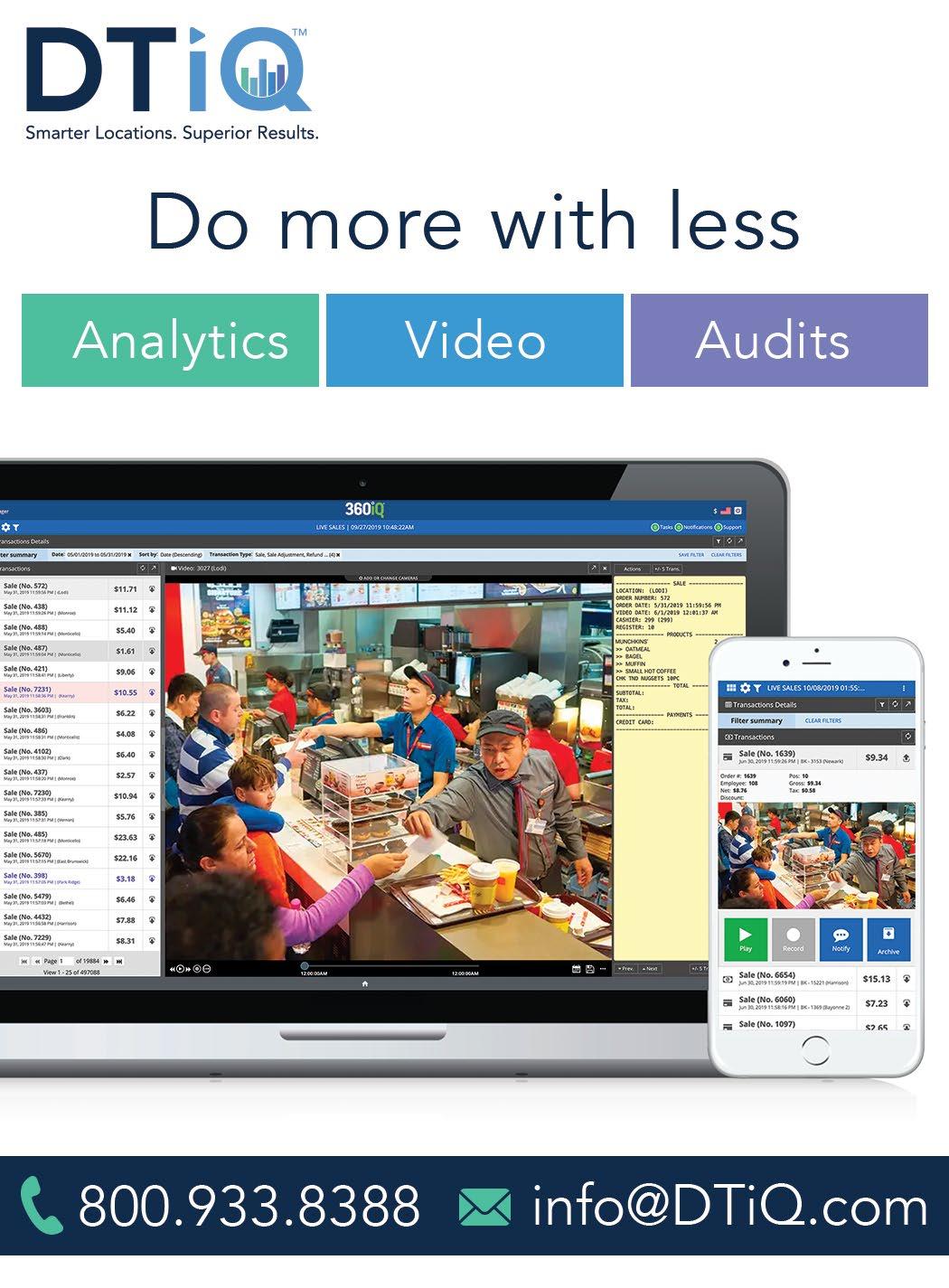
Once you’ve made customers aware of your operating status, ensure that your store is optimized to effectively manage orders from the drive-thru and third-party delivery apps. In the 2019 Restaurant Success Report from Toast, researchers found that the most important qualities that consumers are looking for when they use a third-party delivery platform are speed and value. They want to receive their orders quickly and dislike paying high prices for convenience.
How can you revamp your kitchen to fit the needs of drive-thru and third-party delivery? Experts recommend several strategies:
• Create a simplified menu. Cutting down your menu to provide customer favorites is a great way to simplify operations in the kitchen. With less staff on hand, preparing a select few items instead of a full menu will streamline the preparation process. Also, consider menu items that are optimal for delivery: What items are easy to package or are presented well in delivery packaging?
• Choose friendly and efficient staff. Customers will likely only have contact with one person at the drive-thru window or the counter. Make sure that you are choosing your best team members who will make sure that everyone still gets a great experience. Team members who are rock stars at the drive-thru window and at the counter are the ones that you want to keep during this time.
• Make delivery drivers’ jobs simple. Once the food leaves the restaurant, the delivery driver is a direct representation of your brand. Although they are not a BK team member, the quality of their work has a direct impact on your customer’s order experience. Clearly label all orders and organize them in an efficient manner so that drivers can simply grab and go. Include utensils, napkins and requested condiments in the bag so they are not forgotten. Taking these simple steps will strengthen the partnership and satisfaction between the restaurant, third-party delivery app and the customer.
Ensure Food Safety
Although the CDC has confirmed that COVID-19 is not a foodborne illness, many consumers still have fears that hold them back from purchasing from restaurants. Datassential’s study found that 54% of people would feel more comfortable making a takeout or delivery order if the restaurant required delivery and
food-packing staff to wear protective equipment.
Datassential recommends “going the extra mile” to make sure customers feel safe eating food from your restaurant. Consider having your staff complete the new ServSafe training videos created specifically with precautions for delivery and takeout.

Almost half of Datassential’s respondents said they would feel more comfortable if tamper-proof seals were used on packaging. Using materials such as stickers on bags will protect orders from contamination when they are out for delivery. Again, remember to make consumers aware of what practices your restaurant is putting in place to ensure safety. This may lead them to choose you over another restaurant.
RBI has sent hand sanitizer to many locations, so take advantage of this and make sure your staff and customers are using it. The CDC acknowledges, however, that hand washing is still the No. 1 way to prevent the spread of the virus, so your employees should be doing so constantly. Nation’s Restaurant News also recommends providing third-party delivery drivers with gloves, wipes and hand sanitizer as an extra precaution. Place these by your delivery order station so drivers can take them along.
Although these times are difficult for franchisees, they serve as an opportunity to provide a great experience for customers. Americans are paying attention to how businesses in their areas are conducting themselves and will remember your actions in the future.
2020 ISSUE 1 | Flame 23
n SAVANNAH DALY is NFA communications coordinator. You may reach Daly at 678-439-2288 or savannahd@elevanta.com.
THE CORONAVIRUS: Communicating With Partners Protects Your Business
It’s been said often since the early days of March, but it bears repeating: The COVID-19 pandemic has created a situation that’s never been seen before in this nation. It equates to a nationwide natural disaster, with people asked – and many times required – to stay home, businesses forced into temporary closures and health care facilities overwhelmed in hot spots of contagion.
No business segment in the country has been as particularly hard hit as the restaurant industry. The guidelines for curbing the spread of the coronavirus provided by national and community health organizations led to the closure of restaurant dining rooms for all but about 2% of the restaurants in the United States by March 30, noted the National Restaurant Association.
Restaurant sales, though still allowed in most areas of the country via drive-thru, takeout and delivery, took a tremendous initial blow, falling 47% between March 1 and March 22.
Total yearly sales for 2020 are expected to be down 11.4% at a minimum, according to Technomic, a sister company to leading industry magazine Restaurant Business. FastCasual.com, an industry-reporting website, reports that total restaurant customer transactions were down 36% in the week ending March 22 compared to the same week in 2019 for quick-service, fast-casual and other casual dining chain restaurants.

There is little immediate relief on the horizon, with the federal government extending social distancing guidelines, including no gatherings of more than 10 people and six feet of space between people in public, through the month of April.
Though business may be in a slowdown or even a standstill, there are things that franchisees should be doing to ensure that they are protected in the short term and, in the long term, emerge from this crisis in the best possible shape, ready to pick up and move
forward, and yes, even thrive.
Of course, every business is different and requires different action as the nation’s economy has ground to a halt. Regardless of specific situations, however, the number one thing small-business owners can do is communicate – with vendor partners, with lenders, with lease holders, with the franchisor and with employees. It is vitally important that a business does not go dark with either its suppliers or its sustainers, leaving them to wonder what is happening. The news shared in the short term may be all bad, but in this atmosphere, honesty is far more important than leaving the people who support and rely on a business without information.
by SEAN IRELAND
Attorney Nate Riordan of West Coast Franchise Law emphasized the importance of communication in a webinar he conducted for franchisees as the crisis took hold in March. “One of the things that will help you and serve you best is if you can communicate regularly,” Riordan said. “Let people know that you are out there, that you are thinking of them and their issues, and that you are trying to accommodate them. And if one of the things you do is that you call people up and tell them that you don’t have answers, that’s OK. That’s better than not calling them at all.”
In the webinar, Riordan went over the things that smallbusiness owners must consider as sales slow and cash tightens or, worse, as their businesses are temporarily closed as part of the effort to stop the spread of the virus.
The very first step is to create a short-term weekly cash budget that lists all expenses and expected revenue, no matter how little it
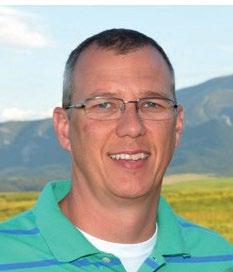
24 Flame | 2020 ISSUE 1
may be after sales are lost to reduced hours and the loss of dine-in services. This will be different from a profit-and-loss statement; it’s meant strictly to predict ingoing and outgoing cash flow. Riordan cautioned that this initial budget will probably end up off base and need to be adjusted as the situation changes and new circumstances push original predictions off target. It’s easier to incorporate new information into a plan, however, than it is to start from scratch.
Having a budget also lends weight and credibility to communications with creditors. It provides transparency and demonstrates the peril a restaurant’s operations may be in without temporary relief from obligations.
Riordan said dealing with the lease holder is probably a restaurant owner’s single most important consideration because, when business returns to normal, it will need its location to do it. He cautioned that business owners should do more than simply request rent relief and push their obligations to an unspecified future date, which puts the landlord in control of the issues.
Instead, show the budget, with all expenses and expected revenue, to the landlord to demonstrate that new terms are needed. Many restaurants set a target rent as 10% of sales. With sales down, negotiate new terms for deferral, abatement or restructuring for a specific amount or percentage of rent. “The landlord is going to want to see that you, the owner, are sacrificing and that the amount of rent you are asking to be reduced makes sense in the context of the actual performance of the store,” Riordan said. Talk about when payments will resume, such as 90 days after normal operations have restarted, and whether late fees will be waived and get it all in writing. The details matter – don’t rely on the landlord to remember the conversation months down the road.
Another high priority for business owners should be dealing with employees and any wages owed to them, Riordan said. Be communicative, open and honest with them. Be decisive about when to cut costs so employees can move to unemployment quickly if it’s necessary. Pay any wages due because in many jurisdictions owners are personally liable for unpaid wages, and such claims can cost one-and-a-half to two times the owed wages plus attorney’s fees if legal action is taken.
As with the two other groups mentioned, communication with lenders is also an important first step. Lenders may be slower to respond as they try to determine what types of federal aid a business may be eligible to receive. But as owners negotiate new terms to deal with loan obligations in the short term, get them in writing, and ensure that the lender waives payment defaults, default interest and late fees.
Taxes are another area where proactivity is important, even if they cannot be paid now. “If you don’t have the money, file the return anyway. If you don’t file the return and that goes on long enough, they’ll file it for you. By policy, they’ll take it from your highest average rate,” Riordan said.
In a message to franchisees, National Franchisee Association Chair Dan Fitzpatrick noted the importance of communication in relationships with the franchisor. “Contact your division managers (DM) immediately to discuss your future capital commitments, including BKOT, successors and new development, if you feel that you will be unable to meet your obligations or need to defer the projects,” Fitzpatrick said in an email to franchisees. “We expect your DM to be empathetic to your calls and requests to manage these obligations. Franchisees should have a proposed plan in hand when approaching BKC. You need to communicate clearly to the DM what your needs are.”
Those are the major areas in which franchisees can look for relief during the crisis, but there are also other smaller actions to consider as operations are pared back.


Experts suggest checking that all possible costs have been cut. For instance, HVAC service and lights in the dining room should be turned off and unused kitchen equipment should be unplugged. Cancel music and TV subscriptions for the dining room too, and cut back on trash pickups, paper inventory and any other supply not needed with sales and traffic down.
For the operations that remain open, pare back the staff to the minimums needed. Make sure they know how to answer the phone and work the phone features such as call waiting and hold so that they don’t lose customers calling to place orders.
If employees have down time, have them work on nontraditional tasks, such as marketing initiatives. A franchisee for another brand used an iPhone to shoot a video in the restaurant that was posted to social media. The video focused on the restaurant’s local ownership, its hours and the services it was still offering. Subsequent weekly videos have focused on different topics, such as the restaurant’s donation of boxed lunches to the National Guard. Another franchisee has covered the windows in the restaurant with posters advertising its carryout, drive-thru and delivery options.
While some of these strategies are responses to the COVID-19 crisis, others that business owners take now may have applications even when life returns to normal. All of them should be considered in each situation for how they can keep things moving. n
2020 ISSUE 1 | Flame 25
SEAN IRELAND is the NFA associate director of communications. You may reach Ireland at 678-797-5165 or seani@nfabk.org. Upgrade with access to over 2,000 Industry Recruiting Sites and Industry Top Job Boards! TM Recruiting Plus Plus lenny@hrgems.com | 563.580.2649 www.traitset.com visit us on the web at To learn more, contact Lenny Crouse TraitSet HIRE Basic program required to use upgraded Recruiting Plus TraitSet® HIRE & Onboarding Includes Mandatory Government Forms: ie, W-4, I-9 & E-Verify... Option 3 Option 1 TraitSet® HIRE Recruiting / Pre-Screening / Advance Career 4 Industry Top Job Boards Included TEXT toAPPLY & Location Key Words, On line application,All ScreeningTools - Pre Screening tools Behavior Assessments for Work Ethic & Integrity, Leadership and much more, Advance CareerTool, Stay or Crew PerformanceTool, Location URL HOTLINKS Option 2 Start Hiring Superior Start Employees Today! We would enjoy the opportunity to partner with your company assisting in helping you hire SUPERIOR Employees. Additional Network of Integrated Partners Additional Network of Partners - Background checks - checks - WOTC- Paycards- Payroll- POP Materials and HR Consulting - POP Materials and HR NOTE: Specific promotions may require regional marketing approval for your market. Color Representations are approximations of actual production. /Volumes/Client Folder/Meta/30000-39999/30000-30999/30100-30199/30136 C131215-Print Ad 3.5x4.75 - Traitset Hire_Recruiting Flyer_Updated_01-TSH.ai AE SH Job Number: Art Filename: Designer CSR:
KEEP CALM AND CARRY OUT
Dan Fitzpatrick has stared down Category 5 hurricanes and survived devastating economic recessions, but nothing could have prepared the restaurant owner and operator for the chaos the COVID-19 pandemic spun through the restaurant industry in March and April.
“This is different because, with those previous crises, we had a warning. We knew they were coming, and we had time to prepare,” Fitzpatrick explained. “Meteorologists give us weeks and days to prepare for hurricanes. The stock market and other economic indicators showed recessions in 1981 and 2008 were imminent. But this change to the way we do business practically came out of nowhere. Our business was going down the freeway at 80 miles per hour. This wasn’t a slow roll or a ‘construction zone ahead,’ it was a hard brake and stop.”
Merely four days after state and local governments took sweeping action to shut down or limit dining room business in all seven states where Fitzpatrick operates nearly 235 restaurants, he knew his company, Quality Dining Inc., needed to step up.
Fitzpatrick pulled together his in-house marketing team at the Quality Dining support office near South Bend, Indiana, and asked the team to develop a campaign with two main purposes:
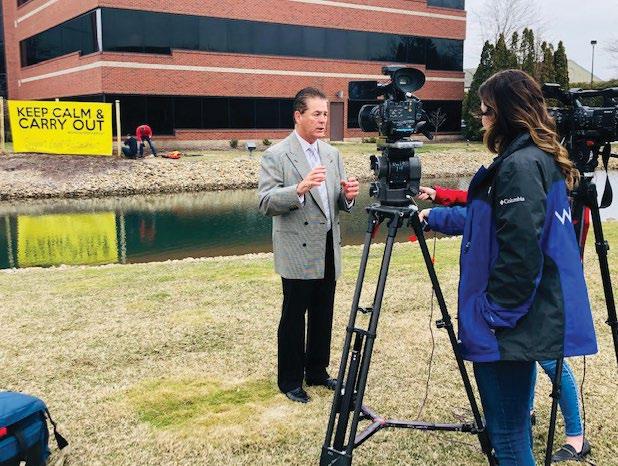

1. Unify and inspire local restaurants to come together during a time of distress.
2. Get that unified message in front of guests while letting them know many local restaurants were still open and ready to safely serve delicious, affordable food.
“He told us he did not know exactly how the campaign would look or play out – that was up to us to figure out,” said Kelli Stopczynski, director of marketing at Quality Dining. “When I asked how much money we had to spend, his response was, ‘Not very much.’ This was about doing what we could with the resources we had.”
Two hours later, the team returned to Fitzpatrick with “Keep Calm and Carry Out,” a phrase borrowed from the inspirational Winston Churchill, who led Great Britain to defeat Germany during World War II while encouraging British citizens with the slogan “Keep Calm and Carry On.”
Just an hour after that, Quality Dining started a Keep Calm and Carry Out Facebook page.
“History has shown us the best way to overcome adversity and challenge is when we can inspire people to come together for the greater good. That’s what Churchill did,” Fitzpatrick said. “We all needed carryout business more than ever.”
One of several goals within the campaign was to get faces and stories of unemployed restaurant workers in front of consumers, so guests could understand the gravity of how the COVID-19 pandemic affected the industry.
“Many of these folks live paycheck-to-paycheck,” Fitzpatrick said. “This is very much about hard-working Americans facing an alarming situation because their sole source of income is drastically reduced or, in many cases, gone. They were left wondering how they would pay the mortgage next month or how they might afford groceries for their families.”
Within 24 hours of creating its campaign, all of Fitzpatrick’s BURGER KING® restaurants in Michigan and Indiana displayed
26 Flame | 2020 ISSUE 1
Quality Dining Inc. Chairman and CEO Dan Fitzpatrick did local media interviews to promote the “Keep Calm and Carry Out” message.
the Keep Calm and Carry Out message on outdoor marquees. The restaurant company also blasted Keep Calm and Carry Out to more than 100,000 guests in its email databases for all its restaurants, including BURGER KING, Chili’s® and Papa Vino’s Italian Kitchen – a company-owned restaurant concept with two locations – and hung banners and signs outside some of those restaurants.
A bright yellow 14-foot-by-7-foot banner went up outside the Quality Dining support office. Fitzpatrick explained the meaning of the grassroots campaign in local television and radio interviews. In addition, several local stations agreed to run Keep Calm and Carry Out PSAs over their airwaves.
Local printers donated Keep Calm and Carry Out banners and yard signs for distribution to other restaurants. Quality Dining also created and shared a digital media kit with resources for restaurants to join the campaign, including digital files of posters, logos, social media memes and other materials. The local Ruth’s Chris franchisee printed nearly 20 yard signs and lined the busy street near its restaurant.
“We also tapped into local star power,” explained Stopczynski. “We called the local Chicago Cubs minor league affiliate, the South Bend Cubs, and asked if its two mascots would pose with our Keep Calm and Carry Out sign. The league president and vice president were two of three people in the office that day. They dug out the smelly costumes, put them on and texted over a picture within two hours. That’s been the essence of the campaign from the beginning. The community support has been incredible.”
University of Notre Dame football coach Brian Kelly and women’s basketball coach Muffet McGraw were among several Notre Dame coaches who fulfilled Quality Dining’s request to send pictures and videos with Keep Calm and Carry Out signs. Those were some of the campaign’s most engaging social media posts.
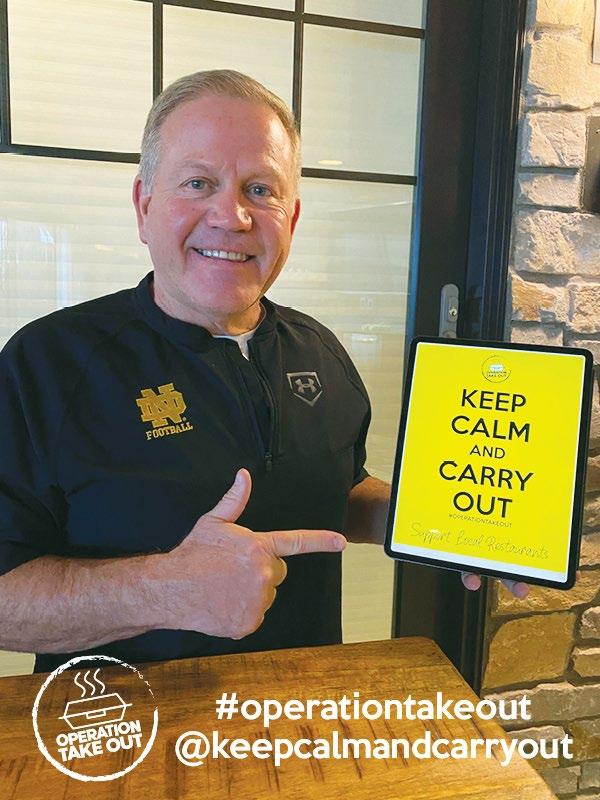
To date, nearly 100 restaurants (and counting) across northern Indiana and southwest Michigan are proudly displaying Keep Calm and Carry Out signs and banners on their properties, and the goal is to get the message as far as possible.
“We are all in this together and we have to support each other,” Fitzpatrick said of his restaurant industry cohorts. “This matters.” n
If you would like more information about the Keep Calm and Carry Out initiative or access to the campaign media kit, please email kmstopczynski@qdi.com.
NEW FEATURES OF THE 9100:
Attractive Sleek New Design
• Large 24-inch, rapid response HD touchscreen
• LCD “Touch to Pour” button highlights selected brand

Expand Consumer Interaction
• New, intuitive user interface with all parent brands on one screen
• Video capability to promote and drive sales
• Marketing capabilities to help grow your business
• Bluetooth for direct app connectivity




Optimize Beverage Enjoyment
• 100+ low/no calorie beverage o erings
• 60+ non-carbonated brands
• Optional equipment accessory to add up to 6 BIB products that can include alternatively sweetened beverages

Seamless Transition from 9000

• Same footprint
• Utilizes existing cartridges and supply chain
• Same cleaning procedures

2020 ISSUE 1 | Flame 27
INNOVAT ING T O R E F R ES H YOU R B E V ER A G E BUS INE SS To Learn More, Contact Your Coca-Cola® Sales Representative TM & ©2020 Burger King Corporation. All rights reserved. ©2020 The Coca-Cola Company. C M Y CM MY CY CMY K
Amid the COVID-19 crisis, Notre Dame football coach Brian Kelly supported the campaign to boost restaurants.
DAY H I L L
2020 Day on the Hill Brings Issues to Life for Franchisees
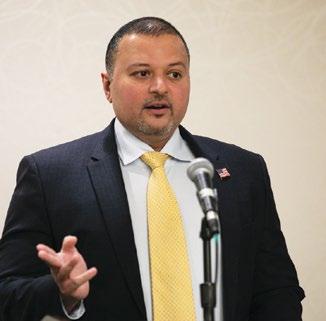
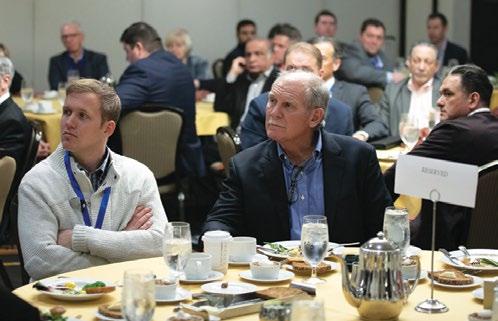
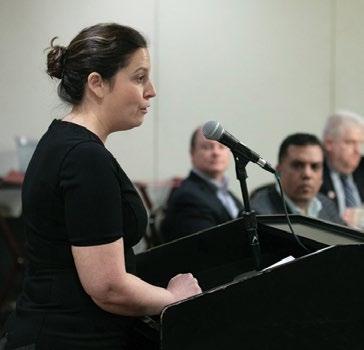
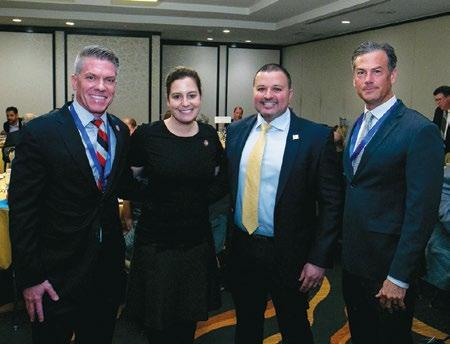

NFA’s 2020 Day on the Hill brought franchisees and supporters to Washington, D.C., at a historic moment for the nation. While NFA members were in D.C., President Donald Trump delivered the State of the Union address to Congress on Feb. 4. On Feb. 5, the president’s impeachment trial ended when members of the Senate voted to acquit him of all charges. A day later, NFA members were lobbying members of Congress over a vote on a key labor bill in the House that afternoon, as well as other issues critical to small businesses.
The event began with a dinner at the Capitol Hill Club, where Sen. Cory Gardner (R-CO) stopped to speak on his way to the Capitol for the president’s State of the Union speech. Gardner discussed not only issues important to small businesses and his own re-election prospects, but also the pending impeachment vote.
The Day on the Hill opened the next day, Feb. 5, with the BURGER KING® Franchisee PAC Luncheon at the Hyatt Regency Capitol Hill. Rep. Elise Stefanik (R-NY-21), the youngest Republican woman elected to Congress, addressed the luncheon after a warm welcome from Metro New York Franchisee Association President Amir Syed. Stefanik gained recent prominence for her enthusiastic defense of the president during the impeachment process in the U.S. House.
At the general session that followed the luncheon, Rep. Kevin Hern (R-OK-01), a longtime franchisee and leader in the McDonald’s system, discussed issues particular to small businesses and franchisees in the opening address. He was followed by industry and policy experts who talked about the legislative issues the NFA has been prioritizing. The National Restaurant Association’s Matt Walker discussed the Qualified Improvement Property (QIP) depreciation schedule error in the 2017 Tax Cuts and Jobs Act and efforts to return the schedule to 15 years from 39. He was followed by Josh Ulman of Ulman Public Policy, who
discussed NFA labor priorities, including opposition to the PRO Act, the Raise the Wage Act and paid family leave proposals.
Nationally acclaimed pollster Ed Goeas set the scene for the 2020 elections, providing background information on why some predictions for the 2016 election were off and what to look for as this election year advances. Wage and Hour Administrator Cheryl M. Stanton of the U.S. Department of Labor followed Goeas to talk more about the labor issues about which BK® franchisees are most concerned. A panel of NFA Government Affairs Committee members, including Chair Brian Robison, Vice Chair Matt Herridge, Dominic Flis and David Sutz, then discussed the ways franchisees could frame the issues during the next day’s visits with members of Congress and their staffs on Capitol Hill. The day concluded with the BURGER KING Franchisee PAC Cup Awards and a reception. The PAC Cup Participation Award went to the Mountain Franchisee Association, which had 100% of its members contributing to the PAC. The PAC Cup Contribution Award went to the Great Midwest Coalition, which raised more than $43,000 since the 2018 NFA/BKC Summit.
The Congressional Breakfast on Feb. 6 brought franchisees and NFA supporters together with members of Congress to discuss the organization’s legislative goals. A dozen separate groups then braved cold, rainy weather to travel to Capitol Hill for morning meetings in the offices of members of the Senate, before meeting at the Rayburn House Office Building for the King of the Hill Luncheon. NFA Chair Dan Fitzpatrick introduced Rep. Jackie Walorski (R-IN-02) and presented her with the King of the Hill Award in recognition of her strong support for NFA legislative goals. Walorski gave a rousing, energetic address supporting legislation to fix the QIP error and highlighting how franchisees can be part of the political solution to get a proposal passed. Following the luncheon, the franchisee groups met with members of the House to continue advocating for NFA goals. n
28 Flame | 2020 ISSUE 1
N THE 2020 NFA
WASHINGTON, D.C. FEB. 4-6
Left: Government Relations Committee Chair Brian Robison, from left, Rep. Elise Stefanik (R-NY-21), Amir Syed and GRC Vice Chair Matt Herridge at the BURGER KING Franchisee PAC Luncheon. Right: Rep. Elise Stefanik opens the 2020 NFA Day on the Hill with a speech at the BURGER KING Franchisee PAC Luncheon.
Left: Amir Syed of New York introduces Rep. Elise Stefanik at the PAC Luncheon. Right: Scott and Gary Andrzejewski of PJ Foods listen as Rep. Elise Stefanik speaks at the PAC Luncheon.
GENERAL SESSION

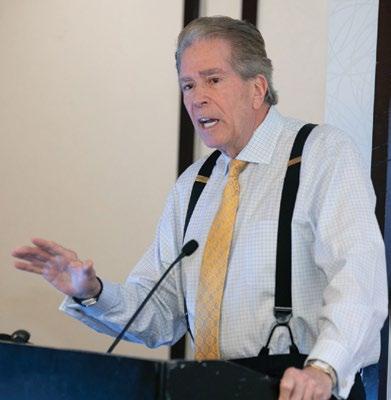
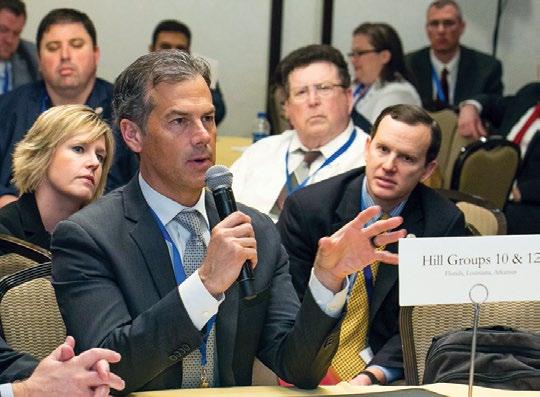
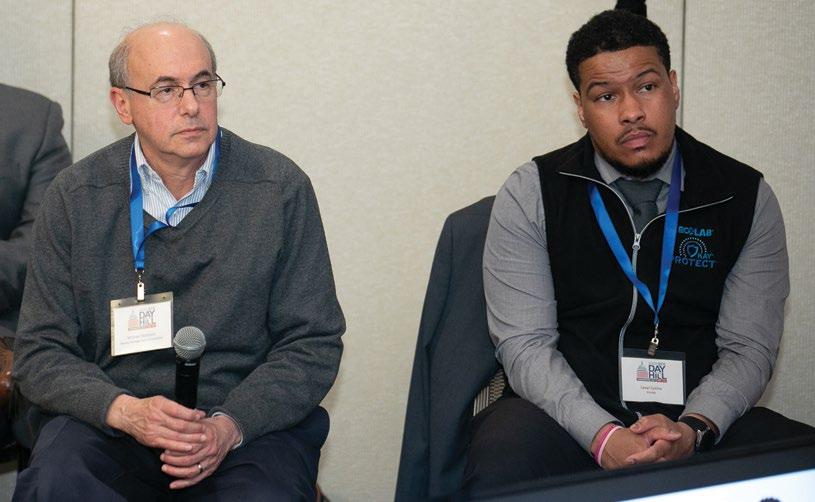



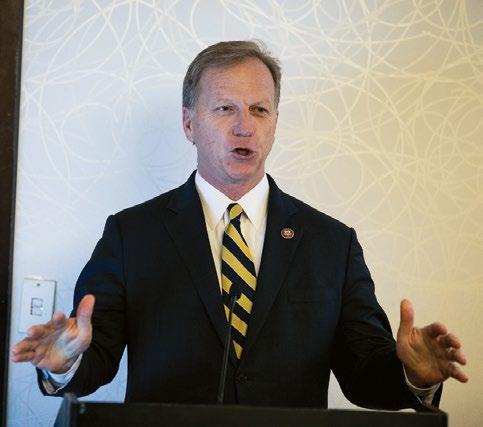
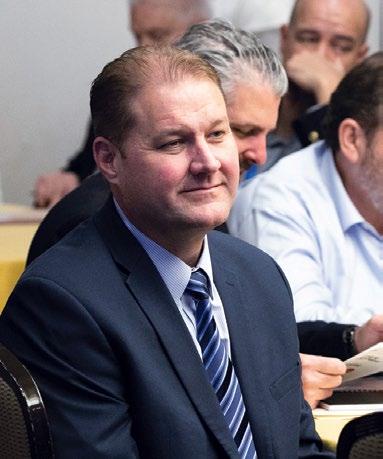
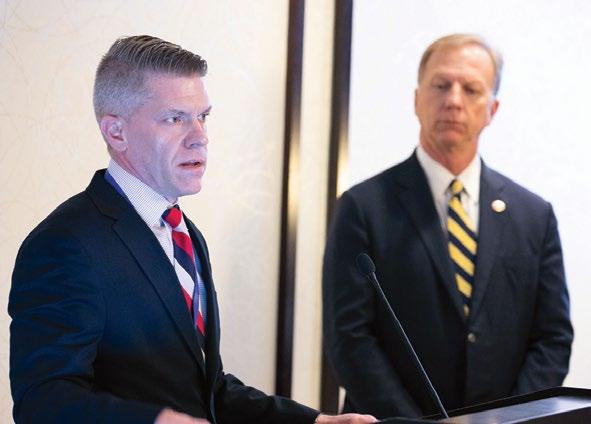

2020 ISSUE 1 | Flame 29
NFA GRC Chair Brian Robison opens the Day on the Hill General Session by introducing Rep. Kevin Hern (R-OK-01). Hern spent time as a McDonald’s franchisee, growing his company to 18 restaurants.
Rep. Kevin Hern, a longtime leader in the McDonald’s franchise system, speaks about the legislative landscape specific to small-business owners and franchisees.
Matt Walker, vice president of government affairs for the National Restaurant Association, talks about the difficult process of getting a Qualified Improvement Property depreciation fix passed.
NFA board member Shirley Humerian of California asks a question during the general session.
NFA Treasurer Steve Keith listens during the general session of NFA Day on the Hill.
Pollster Ed Goeas delves into what polling indicates could happen with Congress and the presidency over the spring and summer.
Josh Ulman of Ulman Public Policy discusses reasons to oppose the Protecting the Right to Organize (PRO) Act during the Day on the Hill general session.
Michael Wallstein, left, and Lavar Collins of Ecolab listen to Josh Ullman’s answer to Wallstein’s question.
NFA GRC Vice Chair Matt Herridge comments during the meeting’s general session.
Nationally acclaimed pollster Ed Goeas of The Tarrance Group describes the political landscape as the election year begins to unfold.
HILL VISITS
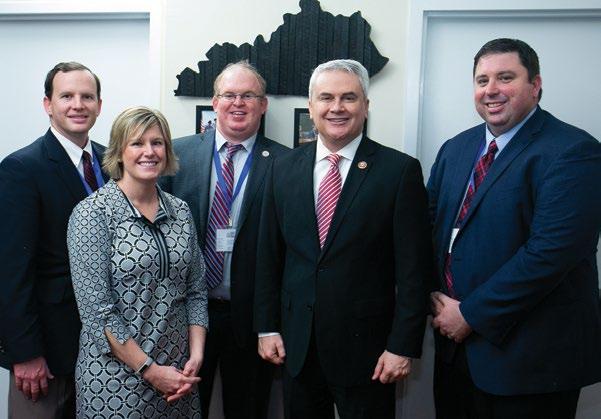
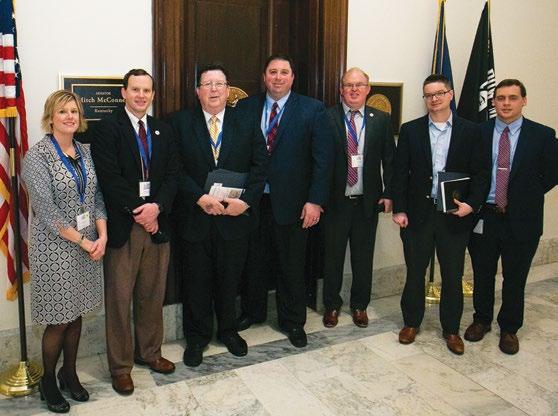
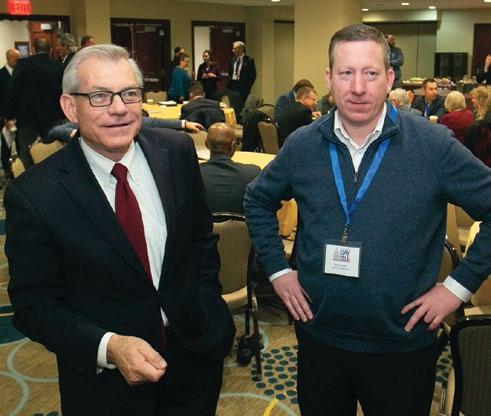
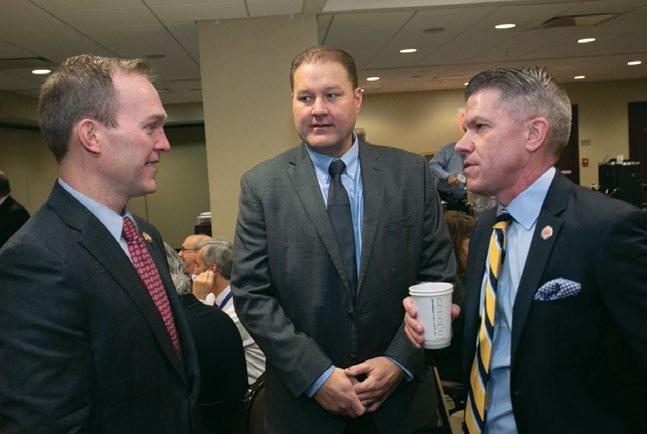


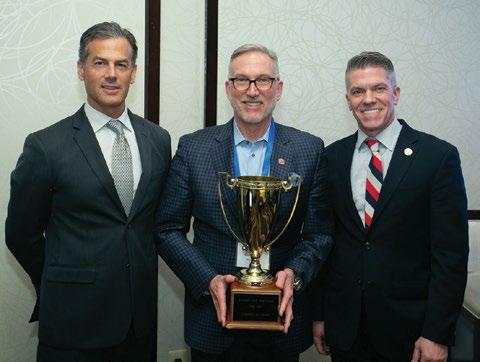

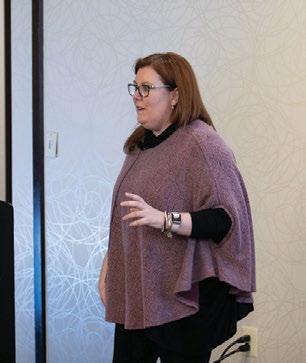
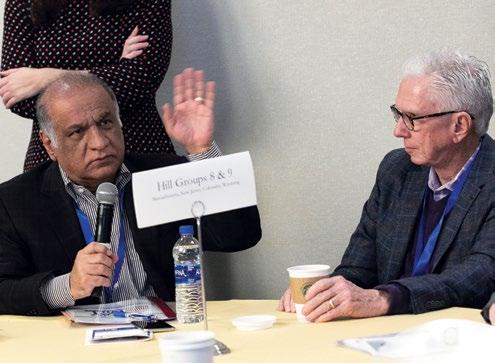

30 Flame | 2020 ISSUE 1
Amir Allison, left, asks a question as Gary Robison listens.
Wage and Hour Division Administrator Cheryl M. Stanton of the U.S. Department of Labor answers a general session question about anticipated changes to regulations.
Ed Braddy and Maria Sutz talk during a break in the general session of Day on the Hill.
GRC Vice Chair Matt Herridge, left, and Chair Brian Robison, right, present the BURGER KING Franchisee PAC Cup Contribution Award to the Great Midwest Coalition and its president, Matt Carpenter.
Josh Hanley, left, of Dr Pepper and Bob Reid talk at the Welcome Reception.
Recapping the general session of Day on the Hill are Leo Leon, Patrick Sidhu and Joe Clements.
2020 NFA DAY on the HILL
Ben McAdams (D-UT-04), from left, talks with Steve Keith and Brian Robison at the Congressional Breakfast on Feb. 6.
GENERAL SESSION BREAKFAST
Rep. David Schweikert (R-AZ-06) and Shane Jacobs greet friends at the Congressional Breakfast.
NFA members Margie and Andrew Schory, Bill Keller, Tom Keller and Kevin Newell meet with the staff of Sen. Rand Paul (R-KY) during their morning trip to the Hill.
From left, Andrew Schory, Margie Schory, Kevin Newell, Rep. James Comer (R-KY-01) and Tom Keller stand outside Comer’s office on Capitol Hill during the group’s afternoon visit with the congressman.
GENERAL SESSION
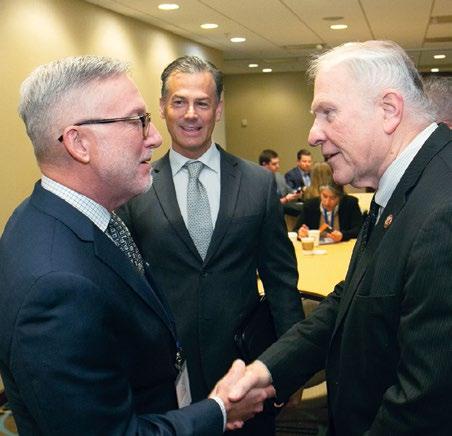
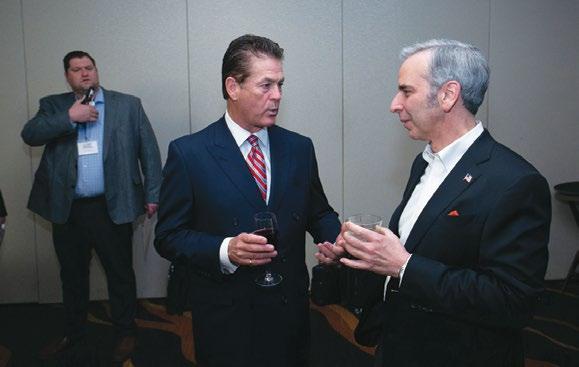
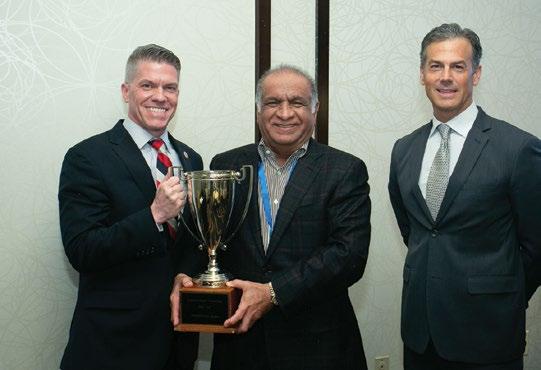
BREAKFAST
KING OF THE HILL LUNCHEON
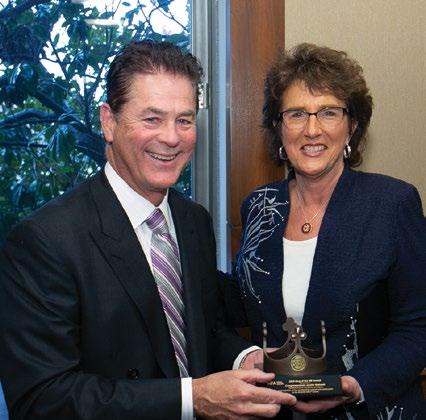
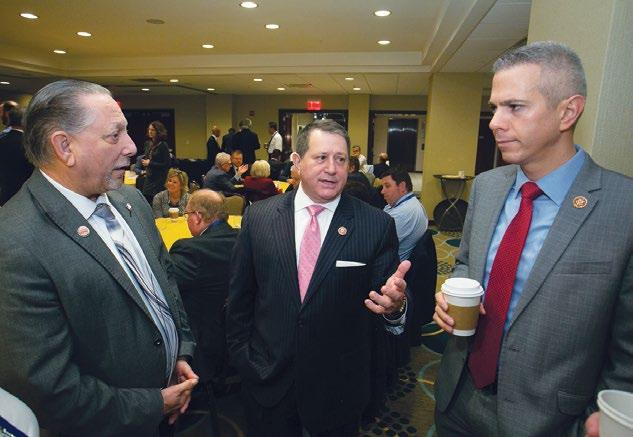
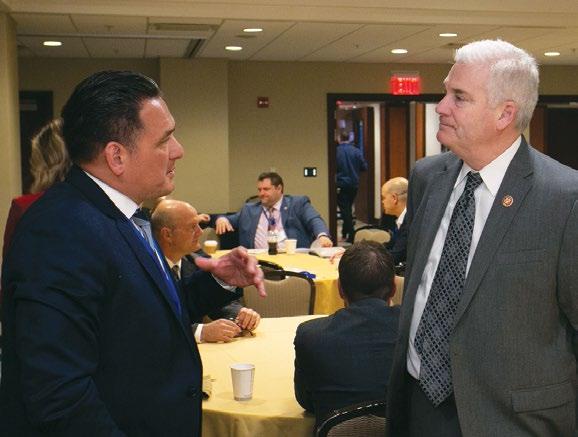
In her impassioned address, Rep.

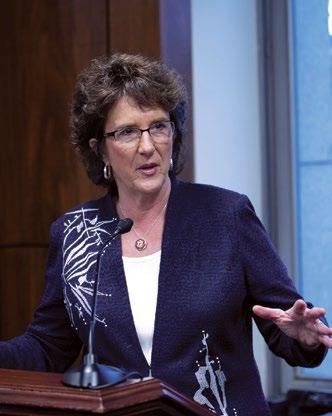
tells NFA members how they can work with her and other members of Congress to push forward on the issues important to small businesses.
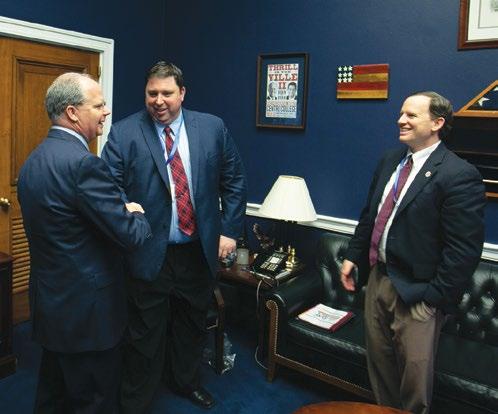
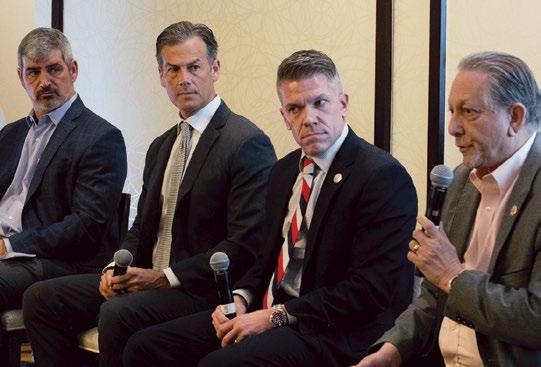

2020 ISSUE 1 | Flame 31
GRC Chair Brian Robison, left, and Vice Chair Matt Herridge, right, present Mountain Franchisee Association President Amir Allison with the BURGER KING Franchisee PAC Cup Participation Award. The regional association had 100% of its members contribute to the PAC.
GRC members Dominic Flis, from left, Matt Herridge and Brian Robison stand by as David Sutz answers a question during a panel presentation of ways to discuss NFA legislative priorities with members of Congress during the next day’s visits to Capitol Hill.
NFA Chair Dan Fitzpatrick, left, and Vice Chair Jim Froio discuss the day’s events at the Welcome Reception for NFA Day on the Hill.
Adam Velarde, left, and Rep. Tom Emmer (R-MN06) discuss issues at the Congressional Breakfast before NFA members left for visits on Capitol Hill.
New Yorkers David Sutz, from left, Rep. Joseph Morelle (D-NY-25) and Rep. Anthony Brindisi (D-NY-22) confer over coffee during the breakfast.
Matt Carpenter, left, is introduced to Rep. Steve Chabot (R-OH-01) by Matt Herridge.
Rep. Brett Guthrie (R-KY-02) greets Tom Keller and Andrew Schory as the NFA members prepare to discuss NFA legislative priorities with him.
Rep. Jackie Walorski (R-IN-02) speaks at the King of the Hill Luncheon on Capitol Hill about the efforts to fix the QIP depreciation error in the 2017 Tax Cuts and Jobs Act.
NFA Chair Dan Fitzpatrick presents the King of the Hill Award to Rep. Jackie Walorski.
Jackie Walorski
RSI Launches New Mobile Inventory Application Inventory Made Easy
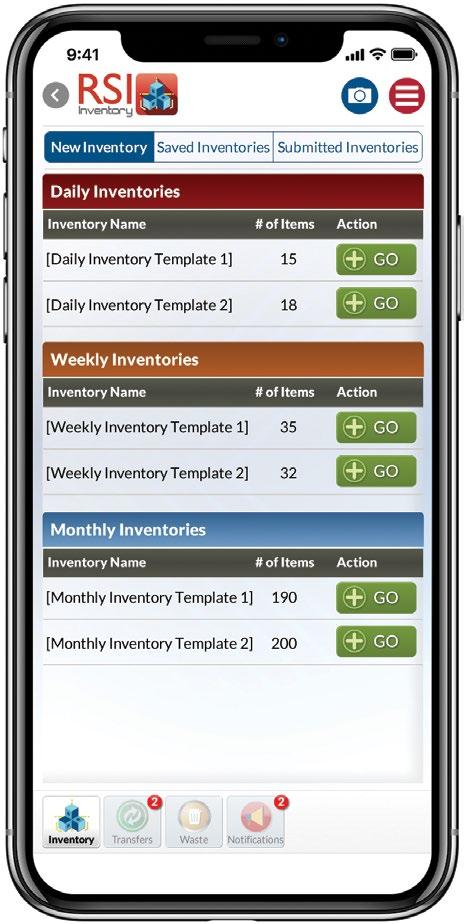

In late 2019, RSI introduced a marketleading mobile inventory application for BURGER KING® restaurant leaders that facilitates the process of inventory management, including the ability to enter and record waste and transfers from restaurant to restaurant. The application was built with a simple goal in mind: to improve accuracy and increase efficiency while seamlessly integrating with RSI’s popular profit loss variance (PLV) and inventory valuation reports.
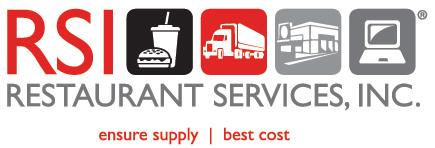
RSI Inventory is a user-friendly application that provides a quick, easy and efficient process to take inventory, thereby increasing inventory accuracy and saving valuable time that can be dedicated to what matters most: guest satisfaction and restaurant profitability. The development of this unique application furthers RSI’s initiative to leverage and build upon its strong foundation in technology to elevate its performance as a best-in-class supply chain.
Utilizing a mobile inventory-taking method allows operators to walk the store, Apple or Android smartphone or tablet in hand, counting products where they are stored, resulting in an automatic population of total inventory counts. Not only does the RSI Inventory technology significantly decrease the probability of human error, it also reduces the time needed to complete the important task of taking inventory, streamlining the process with barcode scanning.
The highly anticipated and in-demand mobile application offers a web-based administrative feature that gives members and their restaurant operators the ability to use one of RSI’s custom daily, weekly or monthly inventory templates (or create their own) to easily generate digital
count sheets, align inventoried items to in-restaurant store locations and arrange items in rank order. The application is then used to enter counts, scan, search for items, and record transfers and waste. In addition to a pre-built inventory template library and count-by-location functionality, RSI Inventory also provides the following critical features:
• Waste entry by raw or menu item.
• Transfer of product from store to store.
• Barcode scanning.
• Push notification reminders.
• Data validation check for obvious inventory input errors.
• Quick tracking of who is and is not taking inventories.
• PLV, inventory valuation, transfer and waste reports.
Since its debut, RSI Inventory has quickly gained popularity with RSI members and their restaurant leaders, with more than 1,500 application downloads and close to 10,200 inventories completed. From this initial usage, RSI has received valuable feedback and requests for enhancements, a clear indication of the system’s need and interest in this exciting new technology. RSI will also be establishing an RSI Inventory Advisory Committee, or IAC, for operators to provide additional feedback as well as help prioritize proposed enhancements and functionality. Improving the inventory-taking process and helping improve member profitability will remain top priorities for RSI in 2020. Based on user feedback, we will continue to enhance the functionality of this tool. n
Download RSI Inventory Today
1. Search for “RSI Inventory” in your app store.



2. Download the app, and log in using your RSI Web credentials. You will only need to log in once.
If help is needed to download RSI Inventory, contact the RSI Help Desk at helpdesk@rsilink.com or 305-529-2123.
32 Flame | 2020 ISSUE 1

Turning Participation Into Education: How Franchisee Support Provides Scholarships for Students

Participation into education. That’s the power BURGER KING® brand franchisees have through the BURGER KINGSM McLamore Foundation.
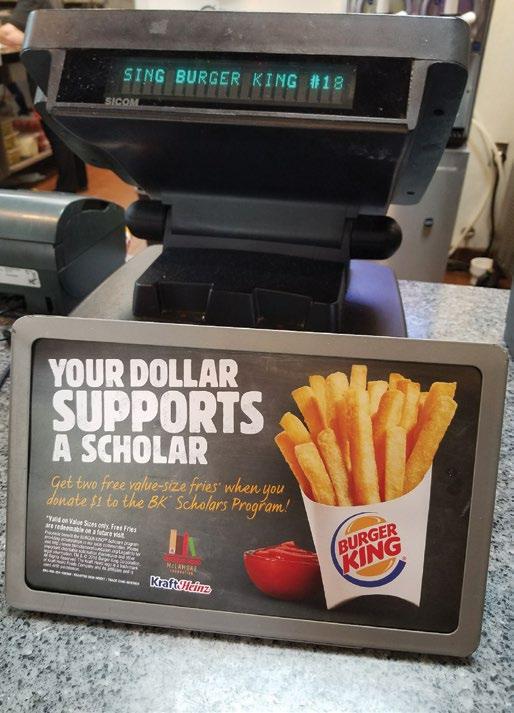
With their support of the foundation, franchisees in the BK® system have awarded millions of dollars in scholarships to deserving, college-bound high school seniors, along with their very own BK employees and their families through the BURGER KINGSM Scholars program.
“The BKSM Scholars program is so powerful and can truly change a person’s life. It can make the difference between going to school to learn a trade or a profession, which can boost morale and confidence while providing a higher income stream, versus a potential lifelong struggle,” said Sharron Fry, director of marketing for Redberry Restaurants. “It’s so gratifying to know that a small effort on our part can change the entire direction of someone’s life.”
Participation can look different for each franchisee, and all of it raises funds for the foundation. From coupon fundraisers to crown campaigns to donation boxes … all funds lead to scholarships.
The coupon campaigns, Spring and Fall coupon fundraisers, are held in restaurants in April and October, respectively, and give guests the chance to get involved and donate to the foundation, while encouraging repeat visits so they can redeem their coupons. The crown campaign is a wonderful alternative for franchisees that would rather forego coupons and still have engagement with customers, who write their names on the crowns before they go up on the restaurant walls.
The donation box program is the evergreen, no-hassle, no-operationalinterruption program that passively collects funds throughout the year for scholarships. It is a great supplemental fundraiser for franchisees who want to boost their fundraising year-round.
Redberry Restaurants, the only participating franchisee in Canada, has grown its participation with the foundation from less than $1,000 to over $40,000 in just five years.
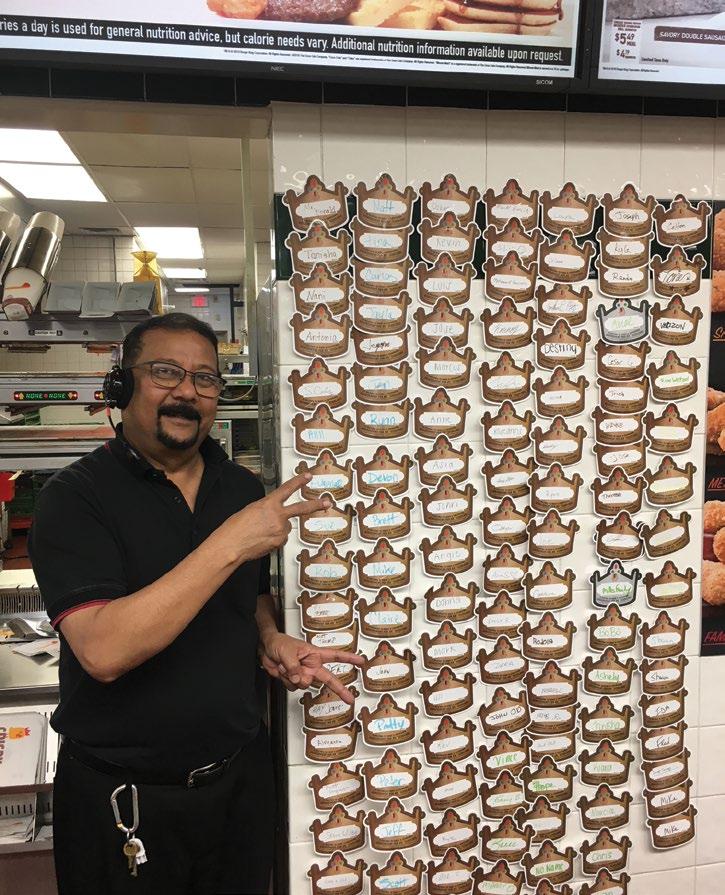 Redberry
Redberry
Restaurants holds the crown campaign, has donation boxes in its restaurants and established a 1954 Society legacy scholarship, all raising funds to award the following year in its communities. Fry and her team often host an event at the restaurant level to award the scholarships to recipients.
“When you show up at a restaurant to present the scholarship check and the recipient becomes emotional, it touches your heart in a very rewarding way. Knowing that some of the burden of trying to go to school has been alleviated is a HUGE relief for the recipient,” said Fry. “Having their fellow team members cheer, hug or shake their hand … that’s so motivational for staff and guests for the next fundraiser.”
To date, the foundation has awarded $40 million in scholarships to more than 36,000 students since 2000 when the BURGER KINGSM Scholars program began. All the funds have come from either these campaigns and participation events from franchisees, vendor partner support throughout the year, outright gifts or funding from
34 Flame | 2020 ISSUE 1
Customers write their names on crowns that are displayed inside BK restaurants when they donate to the McLamore Foundation’s crown campaign.
the McLamore Family Foundation to carry on Jim McLamore’s legacy.
“I was fortunate to have met Jim McLamore in the 1990s, and I know how important providing opportunities for higher education was to him,” said Tom McDonald, franchisee at Glencoe Management and the newest member of the board of directors of the foundation. “I feel a connection to the foundation just from having known Jim, but I also feel it is important for BURGER KING franchisees to give back to the community or communities that support us.”
McDonald’s franchise group participates in the Spring Fundraiser coupon campaign, along with several events at the BK convention each year. The restaurants will also be taking part in the donation box program this year to raise additional funds to be able to award more scholarships to local students and employees.
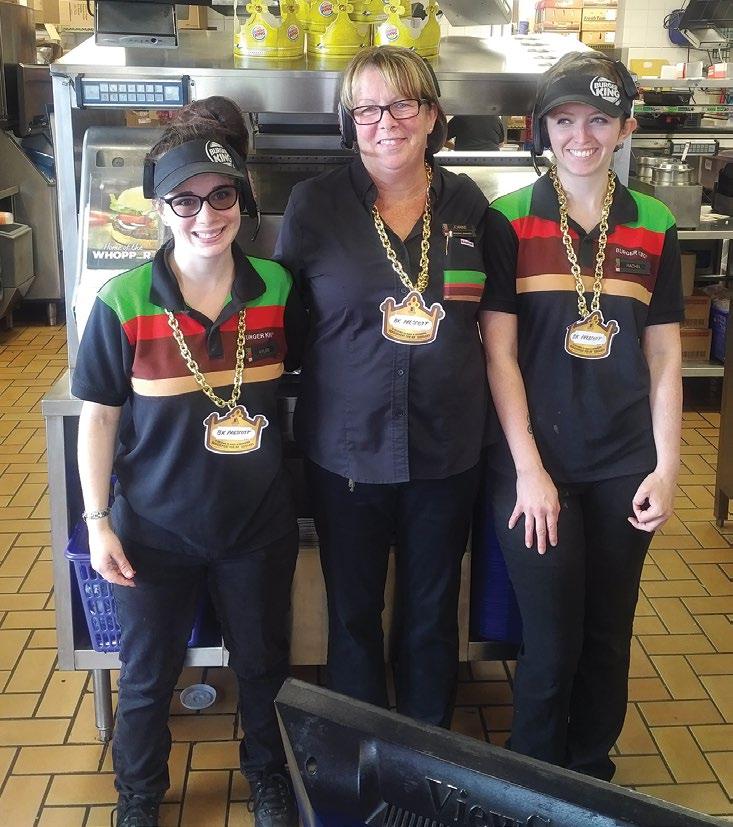
“The local community is very supportive of our Spring Fundraiser as demonstrated by the number of donations our customers make through the sale of the coupons at the restaurant level,” McDonald said. “The letters of appreciation that scholarship recipients write us after receiving their award are truly heartwarming.”
There are many ways to participate and raise funds for the foundation, and many ways to provide education for deserving members of our communities. To get involved or learn more about the foundation, reach out to us at bk_mclamorefoundation@whopper.com. n
YOUR PARTICIPATION. THEIR EDUCATION.
Don’t forget to place your orders for the BURGER KINGSM McLamore Foundation’s 2020 Spring Fundraiser, Fall Fundraiser and donation boxes! It’s not too late to participate and bring scholarships to your community to award in the spring of 2021.

SPRING FUNDRAISER
Activated In-Restaurant: April 2020

Coupons Redeemable: April 2—May 31, 2020
FALL FUNDRAISER
Activated In-Restaurant: October 2020
Coupons Redeemable: Oct. 2—Dec. 31, 2020

DONATION BOXES
This evergreen, no-hassle fundraiser is available year-round!
If you have any questions, email Victoria Gonzalez at vgonzalez@rbi.com.
2020 ISSUE 1 | Flame 35
TM & © 2020 Burger King Corporation. All Rights Reserved.
BK employees proudly support the McLamore Foundation by wearing crowns to prompt customers to donate.
Lockton Affinity Provides Smooth Transitions for NFA Members
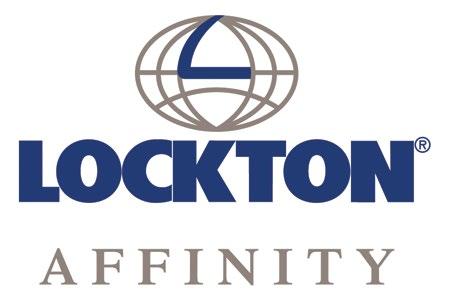


The commercial insurance industry is complex and everevolving, as are the resources to protect and manage the unique risks franchisees face. To that end, the National Franchisee Association (NFA) examined the state of our commercial insurance program and made the decision last year to vet a new broker to ensure that we offered the most comprehensive and up-to-date risk solutions to our franchisees. After a thorough vetting process, Lockton Affinity was selected. Lockton Affinity hit the ground running from the onset and officially kicked off the program in January.
From the beginning, Lockton Affinity has shown it is a sound and true partner for the NFA. This has been evident by the time spent ensuring a smooth transition and the sincere support shown to those members making the switch. Many January insureds saw an average premium decrease between 5% and 10% across their lines of coverage. They have also shared that the service and attention to detail on their accounts have exceeded their expectations.
Among those franchisees that made the move to Lockton Affinity were Dominic Flis, Kevin Newell and Walter Chuda. Read more below about their transition and renewal experiences, and how the program is serving their businesses thus far.
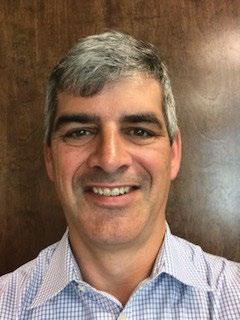
Dominic Flis Flis Enterprises
23 BURGER KING® restaurants
“No one likes change, and I was a bit apprehensive as I began the P&C insurance renewal with Elevanta’s new insurance broker, Lockton Affinity. My mind was put at ease as we moved smoothly through the process and Lockton Affinity delivered a quote on time – even early – and at a better rate with improved coverage than the previous year. The broker was knowledgeable and responsive to all my requests, and overall, I experienced a pleasurable insurance renewal process.”
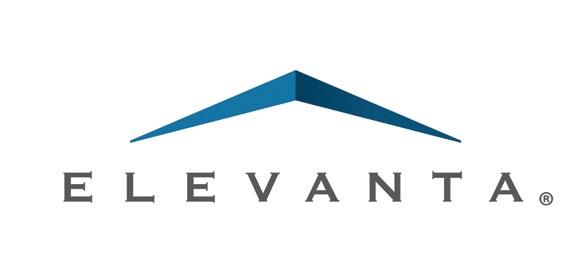
Kevin Newell Supreme Foods
20 BURGER KING restaurants
“The value I see in supporting the NFA is huge. I have always been a strong supporter of the NFA and use many of the member services offered. When the association made the decision to move to a new broker, I embraced the change, yet, to be transparent, I still took the time to evaluate my current policies and where they could be improved in coverage and pricing. I bid out to four companies, and I learned much through the process that attributed to my final selection. Lockton Affinity became the leader in the clubhouse not
36 Flame | 2020 ISSUE 1
January insureds saw an average premium decrease between 5% and 10% across their lines of coverage
only because it is the partner of the NFA, but also because I truly felt as though Lockton Affinity had my best interest in mind. The company has a sixth sense about clients in a way that I have never experienced before. After the March tornados that ravaged Nashville and middle Tennessee, my broker from Lockton was the one of the first to call and check on me and my family. It solidified my confidence in choosing them to protect my livelihood.”

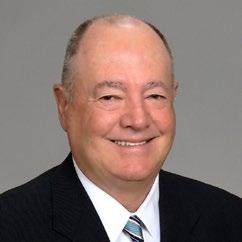
Walter Chuda Burgers of Columbia Pike Inc.
 1 BURGER KING restaurant
1 BURGER KING restaurant
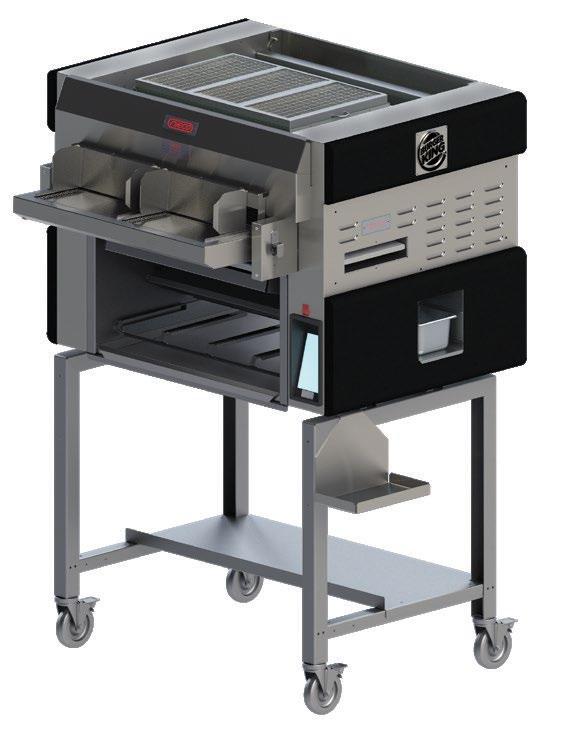
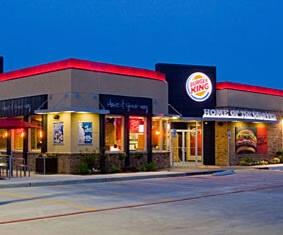
“The strength of the NFA comes from members advocating for its offered programs and services and utilizing those programs and services for their own businesses. Supporting the NFA was key in my decision to move forward with Lockton Affinity to broker my commercial lines insurance. Lockton Affinity gave me the security in knowing my business was protected with the best possible coverage available on the market. I have been pleased with the process thus far, as it went smoothly signing the broker-of-record document and moving my polices over to Lockton Affinity. Since the switch, I already feel as though Lockton Affinity is right by my side to weather any storms that may arise. I encourage all NFA members to consider supporting NFA’s programs and services.”

2020 has changed before our eyes, and none of us could have foreseen the current economic environment amidst the COVID-19 pandemic. Members have had to quickly take a step back, reevaluate and reimagine how to do business and support their employees through this time. Lockton Affinity has been there every step of the way with guidance and support and has provided access to the Lockton Coronavirus Resource Center for NFA members and non-members alike. This resource center includes links to timely articles, news and detailed information on the impact this pandemic is having on the economy and nation as it changes daily. Visit https://www.lockton.com/coronavirus to access these valuable resources.
The Elevanta Insurance Program is administered by Lockton Affinity, LLC d/b/a Lockton Affinity Insurance Brokers LLC in California #0795478. Coverage is subject to actual policy terms and conditions. Policy benefits are the sole responsibility of the issuing insurance company. Coverage may be provided by an excess/surplus lines insurer which is not licensed by or subject to the supervision of the insurance department of your state of residence. Policy coverage forms and rates are not subject to regulation by the insurance department of your state of residence. Excess/Surplus lines insurers do not generally participate in state guaranty funds and therefore insureds are not protected by such funds in the event of the insurer’s insolvency. Elevanta will receive a royalty fee for the licensing of its name and trademarks as part of the insurance program offered to the extent permitted by applicable law. n
2020 ISSUE 1 | Flame 37
F O R A C O N F I D E N T I A L V A L U A T I O N C A L L T O D A Y 9 4 9 . 4 2 8 . 0 4 9 2 E X P E R I E N C E D | D E M O N S T R A T E D T R A C K R E C O R D W W W . N A T I O N A L F R A N C H I S E S A L E S . C O M M I K E D E E G A N m d @ n a t i o n a l f r a n c h i s e s a l e s c o m E X P E R I E N C E M A T T E R S I N A C Q U I S I T I O N M O D E ? V i s i t t h e N F S w e b s i t e t o l e a r n a b o u t B u r g e r K i n g a n d o t h e r f r a n c h i s e o p p o r t u n i t i e s ! S O L D ! Keep the Heart of Your Kitchen Beating Stronger Than Ever What Our Customers Say... …BEST TASTING… JUICY, RICH FLAVOR... …SUPERIOR FLAME-GRILLED LOOK & TASTE! …EASY TO USE… FASTER... FLAWLESS PERFORMANCE… …THIS COULD BE THE BEST BROILER EVER CONSTRUCTED… Need more info? Nieco can help. 1.800.643.2656 sales@nieco.com FLEXIBLE & EFFICIENT Perfectly cook the product you need on any lane, no batch required, with conveyorized flame-broiling and programmable touch screen controls. Promotional Pricing Available Now On RSI Web Easy to use, future-ready IoT Capable Touch Screen Controls INNOVATIVE
How to Manage the Risks of Water Damage How to Manage the Risks of Water Damage How to Manage the Risks of Water Damage

Water damage poses a significant risk to the business you’ve worked so hard to build, particularly during cold and slushy winter months. Property insurance policies provide important protection to millions of businesses like yours, but some find the options for water damage coverage confusing. To help keep your business safe and dry, it’s important to know the risks, take steps to avoid a water intrusion and understand your insurance coverage.
Water Intrusion Risks
Below-zero temperatures, snow and ice, and the springtime melt can all pose a risk of water damage to the structure and contents of your property. Some dangers are more apparent than others, but it’s important to keep all potential water intrusion risks in mind:
• Basement water seepage
• Burst pipes
• Clogged gutters
• Flooding and run-off
• HVAC system leaks
• Mold and rot
• Plumbing problems
• Poor drainage
• Roof ice buildup
• Sewer and drainage backup
• Snow melt
• Sprinkler malfunction
• Wind damage
• Window and door seal leaks
Tips to Protect Against Winter Weather Water Damage
To help protect your property from water damage in winter, do the following:
• Fix slow leaks and broken seals at the first detection.
• Install a water leak-detection device.
• Install insulation in attics and crawl spaces to prevent pipes from freezing and bursting. Also consider wrapping insulation directly around pipes.
• Monitor pipes, appliances and sump pumps during power outages.
• Have an emergency plan in place should your property experience water damage.
• Prevent gutter blockages and ice dams from forming on the roof.
• Clear excess snow and ice away from doors and windows.
• Have your heating systems checked, including boilers, piping, burners and controls, before any cold weather occurs. This may help prevent frozen and burst pipes.
• Maintain your temperature inside to at least 45-50 degrees Fahrenheit to avoid frozen and burst pipes. Keeping one or two faucets dripping in frigid temperatures can help too.
• Check your roof before and after each winter to ensure your roof can stand any snow or ice buildup. If there is damage, hire a professional to get it fixed.
• Talk to your insurance representative about your property insurance and any endorsements your business may require.
Understanding Your Property Insurance Coverage
Property insurance coverage available for water damage is typically organized into water intrusion perils and levels of coverage. Some perils are covered by your insurance while some require a broadening endorsement.

38 Flame | 2020 ISSUE 1
Covered Perils
Plumbing, heating or air conditioning system leaks: If one of these systems suffers a sudden malfunction, your business could sustain costly water damage. Sudden leaks and ruptures that require the tear-out and replacement of damaged areas of the building are typically covered.
Fire suppression system malfunction: A rupture or accidental discharge of a sprinkler system or other fire suppression system could cause considerable damage. Water damage caused to both real property and business personal property is typically covered.
Exterior weather damage: Most property insurance policies cover water damage from weather when the exterior property is damaged, causing water to enter the building. However, it’s very important to learn the details of your policy, as not all types of weather events are covered.

Available Coverage Endorsements
Flooding: Water damage that results from a tidal surge, the overflow of rivers, lakes or streams, or rapid surface water accumulation and run-off is usually not covered by property insurance policies.
However, if the location of your business is designated by FEMA as above the 500-year flood level risk (Flood Zone C), a broadening endorsement may be available.
Sewer or Drainage Backup: Wastewater from sewers and drains can cause significant damage to your business if the systems were to get clogged and backed up. However, most property policies don’t automatically include this coverage. Typically, you can get an endorsement that will provide coverage within certain conditions and sub-limits.
Water damage risks are at a peak during winter and spring months. Understanding the risks, preventative measures and coverage options will help keep your business safe and dry.
JOIN
June 22-24, 2020 | Atlantic City, NJ
About Lockton Affinity
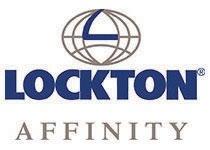
For more information about water damage and available coverage, contact Lockton Affinity, the co-broker of the Elevanta Insurance Program. Lockton Affinity offers key coverage designed with your
insurance requirements in mind, including property insurance.
Learn more at Elevanta.LocktonAffinity.com. Questions? Contact the Lockton Affinity team at Elevanta@LocktonAffinity.com or 844-403-4947. n This program is administered by Lockton Affinity, LLC d/b/a Lockton Affinity Insurance Brokers, LLC in California #0795478. Coverage may not be available in all states and is subject to actual policy terms and conditions. Coverage may be provided by an excess/surplus lines insurer which is not licensed by or subject to the supervision of the insurance department of your state of residence. Policy coverage forms and rates may not be subject to regulation by the insurance department of your state of residence. Excess/surplus lines insurers do not generally participate in state guaranty funds and therefore insureds are not protected by such funds in the event of the insurer’s insolvency.

Be a part of this legacy event that brings together our franchise and vendor community, and that honors BURGER KING® brand co-founder Jim McLamore through his favorite sport of golf and his passion of education through the BURGER KINGSM McLamore Foundation.

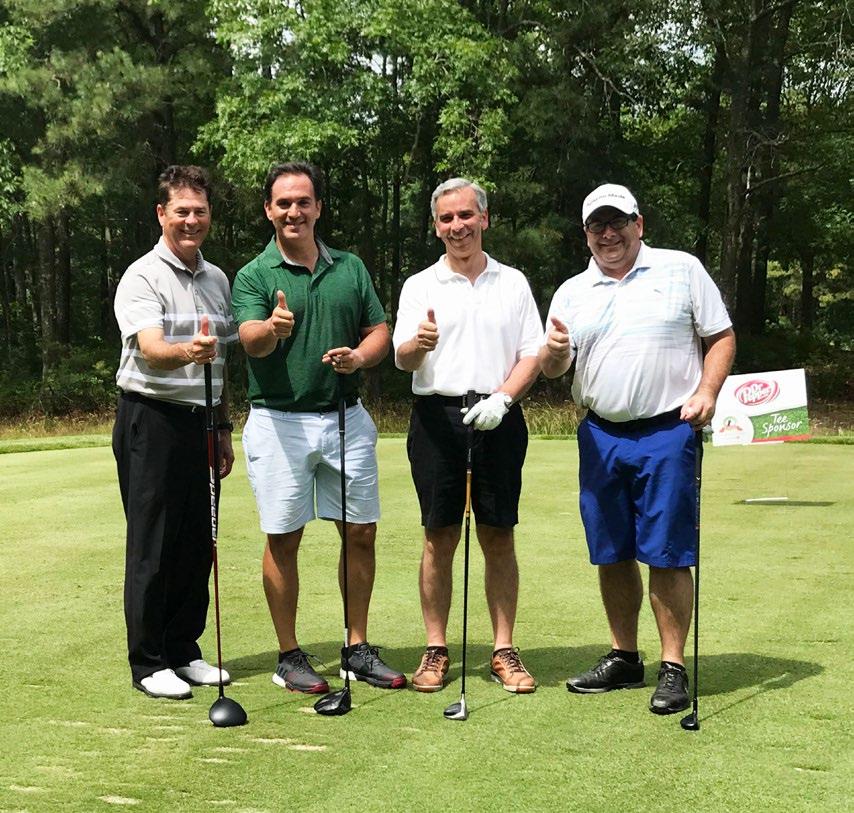
Email Allie Fitzsimmons at afitzsimmons@rbi.com for more details.

2020 ISSUE 1 | Flame 39
US AT THE ANNUAL JIM MCLAMORE GOLF INVITATIONAL!
TM & © 2020 Burger King Corporation. All Rights Reserved.
Green Mountain Announces Greenguard Profit Center Program for Multifamily Property Owners

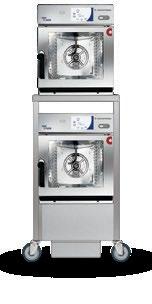

Earlythis year, Green Mountain Sponsored Captive Insurance Company Inc. launched an innovative group captive profit center program, Greenguard, for owners and providers of multifamily properties. The program is designed to ensure tenants have adequate liability coverage and to provide protection for their personal assets while also generating income for property owners/managers for their efforts to market and administer the program.
Greenguard’s innovative approach in designing its proprietary residential and tenant programs is founded upon the features and benefits that a group captive can offer its participants, including the sharing of program expenses and distribution of underwriting profits to its members, but without the financial burden of the program’s member putting up capital or collateral.
Green Mountain Sponsored Captive Insurance Company is one of Vermont’s largest independent protected-cell captive insurance companies. Elevanta, LLC is part

of the company’s ownership group.
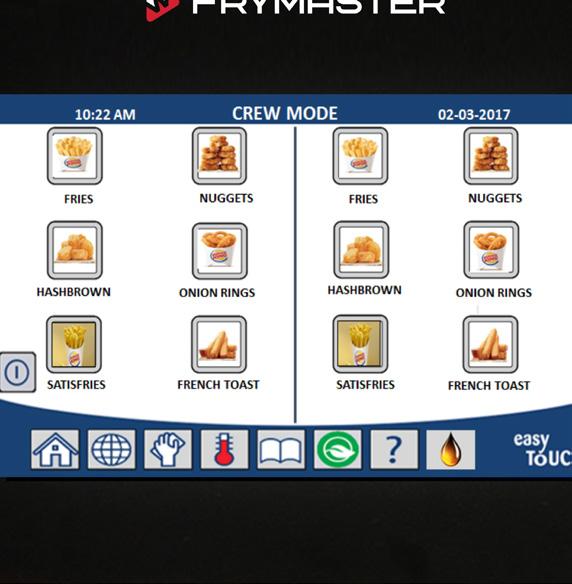
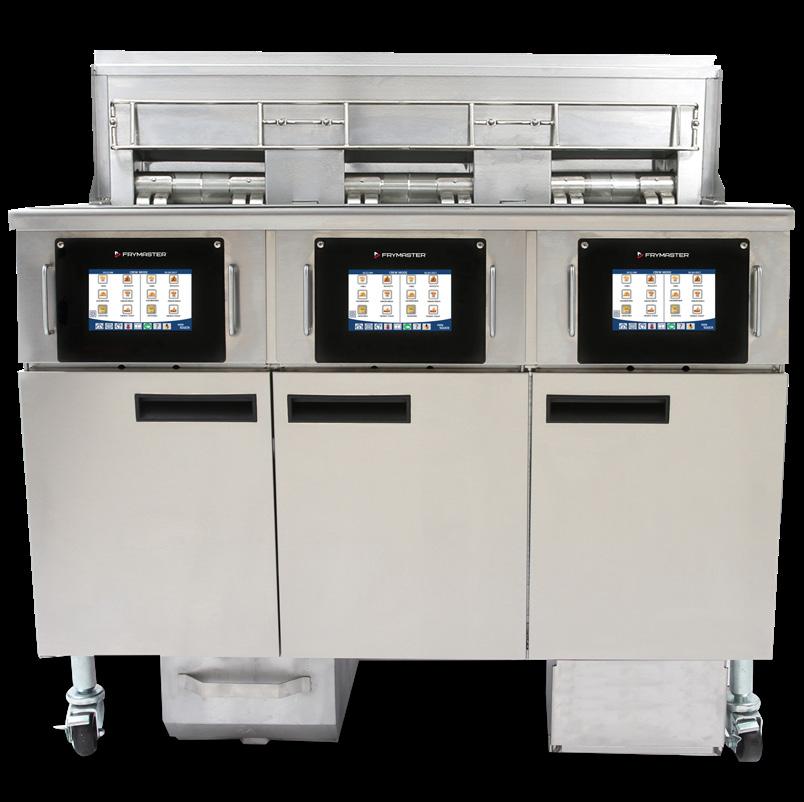
“We are excited about the launch of the Greenguard program as its ease of participation and lack of financial risk will entice candidates to use our program,” said Chris Kramer, managing director of Green Mountain. “For agents/brokers seeking to fortify their relationship with their clients in multifamily, residential and tenantoccupied property industries, Greenguard can provide a unique service and benefits.” Insurance captives have long been recognized for helping to employ risk management plans that reduce the cost of risk. However, they are also created and used as profit centers. For the multifamily property industry, a profit center captive can be especially useful because increasing numbers of new apartments nationwide often means increasing the level of self-insured losses caused by fires, natural catastrophes or the negligence of residents and tenants. The Greenguard program offers property owners and managers an
opportunity to provide protection for such losses while offering their residents and tenants convenience in complying with insurance requirements under their lease or rental agreements.



Strategic Risk Solutions (SRS), the premier provider of management and consulting services to the captive insurance industry with over 500 captive programs under management, will provide captive management services for the Greenguard program. SRS is also a shareholder in Green Mountain and helped design the program.
“We are pleased to support this new program in a sector where greater transparency is needed and both tenants and property owners/managers can benefit over the current fully insured products being sold today,” SRS President Brady Young said. “We have large clients that already do this, but this program will enable mid-size companies to access the same benefits on a turnkey basis with no upfront investment.” n
40 Flame | 2020 ISSUE 1 Order your Frymaster ® FQ4000 Controller Today! EasyTouch® Touchscreen NEW SMART4U® FQ4000 Controller welbilt.com Joan Salah | joan.salah@welbilt.com | 813.504.9262 SUPPLIER FOR OVER 40 YEARS WBT_BK_NFA_HalfPage_Multibrand.indd 1 2/14/20 4:37 PM
te poer o pesece
Several of my articles have focused on the differences between employees who do their jobs with a “task mentality” versus employees who do their jobs with an “experience mentality.” I stress this topic so heavily because it is at the heart of what separates great service providers from the rest of the pack. Those employees who focus on creating great experiences make customers feel welcome and valued. Those who focus on merely completing tasks make customers feel processed.

The word that bridges the gap between a task mentality and an experience mentality is presence. To create a positive customer experience, an employee must be present for the customer and, at least for the moment, that customer only. Then, and only then, can the employee notice the customer’s body language, tone of voice, word choice, facial expression or any of the hundreds of other possible signals the customer may be sending, thus providing clues for delivering personalized service.
Employees who are not present for the customer don’t catch those signals; they just go through the motions of completing the task. They’re thinking about the next customer, the previous customer, their spouse, the paperwork, their supervisor, anything but the customer they’re dealing with at that moment. And the customer perceives the employee’s attitude as one of indifference.
A couple of nights ago my family was having dinner at a very nice restaurant. The food was great as was the restaurant’s atmosphere, but our server was clearly more focused on completing his tasks instead of creating a memorable experience for his guests. He would look at one of his other tables as he served us, whisk by without comment as he dropped off or picked up our bread basket, comment to another server while he refilled our water glasses, and headed to the kitchen as he wordlessly set the check on our table.
As I observed this server’s performance, the word “presence” popped into my mind. That’s what was missing – he wasn’t present for his guests. He certainly performed his tasks efficiently. He was prompt, he delivered the correct orders, and the food was terrific. But for the prices we were paying, we deserved more. We deserved his full attention for those relatively few moments that he was
actually interacting with us.
It wouldn’t have taken much for him to have created a very different impression. A smile while filling our water glasses, a comment on our meal selection as we ordered, eye contact as he set down the bread basket: Any of these gestures would’ve taken no additional time, but would’ve made a world of difference.
by DENNIS SNOW
I mentioned my restaurant experience to a participant attending one of my presentations this week. He asked if my experience would keep me from returning to that restaurant and I had to admit that no, it would probably not keep me from returning. But if we do go back, it won’t be because of the service, it will be in spite of it – and that distinction is important.
Today, businesses of every type need to set their sights higher than just delivering service that doesn’t drive customers away. All our businesses need to focus on giving our customers excellent reasons to definitely come back and to sing our praises to friends, family and colleagues.
If we want loyal customers, we have to be present! n
DENNIS SNOW is the president of Snow & Associates Inc. Dennis worked with The Walt Disney Co. for 20 years and now consults with organizations around the world, helping them achieve their customer service goals. He is the author of “Unleashing Excellence: The Complete Guide to Ultimate Customer Service” and “Lessons From the Mouse: A Guide for Applying Disney World’s Secrets of Success to Your Organization, Your Career, and Your Life.” You can reach Dennis at 407-294-1855 or visit his website at www.snowassociates.com.

2020 ISSUE 1 | Flame 41
Employee scheduling has a direct impact on job satisfaction and employee retention, something made even more important given the low rates of unemployment.
Unfortunately, scheduling is hard, particularly for small businesses, when there are uncertainties caused by a need to have just the “right number” of employees during each shift and an inability to know who is not going to show at the last minute due to illness or other reasons, as well as the uncertainty of how many customers will visit the business that day. Because of the uncertainties, many businesses have attempted to cope through methods such as having employees required to be on the premises or available on short notice to cover for absences, requiring an employee during the regular shift to stay over to cover the next shift or informing employees on short notice of schedule changes. Such practices negatively impact employee morale, and in response to complaints by many workers in the hospitality and retail industries about inconsistent and short-notice schedules, an expanding number of local jurisdictions are enacting so-called predictive scheduling laws. These laws are based on the belief that “on-call” and changing schedules disparately affect low-wage workers who may need to plan ahead for childcare and transportation needs as well as adjust for second jobs or school conflicts.
Expanding Predictive Scheduling Laws Will Affect You


This has resulted in a patchwork of laws with similar, but differing requirements. One thing they all have in common, however, is that they are targeted at chains, i.e. franchised business in food service, hospitality and retail. Even if your business is not yet covered by one of these laws, they still have potential impact on you.
by DOUGLAS H. DUERR
Although several states (Arkansas, Georgia, Iowa and Tennessee) have passed laws prohibiting local governments from requiring predictive scheduling since the first such law went into effect in 2015, Oregon and at least six local governments now have laws requiring predictive scheduling.
If your business is part of a franchised concept in one of those jurisdictions, you are likely obligated to comply with a predictive scheduling law. So, what are the requirements? Although each law is different, they generally require the following:
• 10-14 days’ of notice of the schedule.
• A good faith estimate of the number of shifts per month.
• The right to decline a shift that starts within 10 hours of the end of their previous shift.
Failure to meet these requirements results in a payment obligation to the employee of additional wages (e.g., one hour of

42 Flame | 2020 ISSUE 1
pay for each shift changed, half pay for each hour cut, premium pay up to double time or other penalties).

Why should you care if your business is not in Oregon or in one of the cities with a predictive scheduling law? As noted above, scheduling, particularly scheduling changes, has a direct impact on employee morale and retention. If an individual has a choice between working for an employer subject to a predictive scheduling law or following the predictive scheduling concepts as a best practice, that individual is more likely to choose that employer and to stay. In today’s gig economy, many individuals have multiple part-time jobs, so having a predictable schedule is an important perk for them.

Significantly, a study of Gap retail stores published in 2018 found that providing a predictable schedule and start and end time consistency resulted in a 5% increase in labor productivity and a median sales increase of 7%.

Although there are more and more tools available to help with setting a predictable schedule, if they are too expensive for you and/or you determine that it is necessary for you to use one or more of the coping methods mentioned above, there are a couple of things to keep in mind:
• If employees are required to report to the work site to see if they will be required to work a shift, the time they are required to wait for that determination is “work” for purposes of minimum wage and overtime laws. Also, some states have “reporting pay,” which is a minimum number of hours of pay for reporting to work.
• If employees are “on call,” i.e. are required to report to work within a certain period of time to cover a shift due to a labor shortage, the “on-call” time could be considered “work” for
purposes of minimum wage and overtime. There is no brightline test for when the on-call requirements will make the time compensable, but factors include how soon after the call the employee has to report, how often the employee is called in when on call, and how often and for how long an employee is on call.
• If employees are held over or called in for extra shifts, entitlement to overtime compensation is measured for each payroll week; there is no averaging over the two-week period. Some employers mistakenly believe that so long as the employee only works 80 hours in two weeks, no overtime is due. (Watch out for daily overtime if required in your jurisdiction.)
• Some states have “days of rest” laws requiring premium pay if an employee works more than five or six days in row.

It is believed that more jurisdictions will enact laws requiring predictive scheduling. In fact, two (Chicago and Philadelphia) of the six local governments have their scheduling laws go into effect in 2020. Thus, be alert to the possibility of a new law being enacted by your state or local government. While providing a predictable schedule is hard, particularly for a small business, there are multiple benefits to the business in terms of easier legal compliance, improved employee morale and improved productivity. n
DOUGLAS H. DUERR is partner at Elarbee Thompson, a national labor and employment law firm with an industry practice area focused on franchises. Learn more at www.elarbeethompson.com.

2020 ISSUE 1 | Flame 43 Chris Hall,
Principal, Hall Financial Advisors, llc named #1 in West Virginia on Forbes Best-in-State Wealth Advisor List 20201 and Barron's 2020 Top 1,200 Advisors List2 Action items to consider during market volatility ◆ Rebalance your 401k allocations ◆ Consider increasing contributions into employer sponsored plans ◆ Make 529 contributions ◆ Consider a Roth conversion ◆ Utilize tax loss harvesting to offset gains in concentrated positions ◆ Review your cash reserves Our team believes in providing advice to promote the well-being of a comprehensive, long term plan. Call or visit our website HallFinancialAdvisorsLLC.com. #1
Managing
1. Ranking algorithm based on industry experience, interviews, compliance records, assets under management, revenue and other criteria by SHOOK Research, LLC, which does not receive compensation from the advisors or their firms in exchange for placement on a ranking. Investment performance is not a criterion.
Wells Fargo Advisors Financial Network and Hall Financial Advisors are not legal or tax
You should consult with your attorney,
and/or
planner before taking any
Investment products and services are offered through Wells Fargo Advisors Financial Network, LLC (WFAFN), Member SIPC. Hall Financial Advisors, LLC is a separate entity from WFAFN. 866.865.4442 1101 Rosemar Road, Parkersburg, WV 26105 416 Hart Street, Marietta, OH 45750 00547
2. The Barron’s Top 1,200 Advisors List rankings are based on data provided by thousands of advisors. Factors included in the rankings were assets under management, revenue produced for the firm, regulatory record, length of service, quality of practice and client retention.
advisors.
accountant
estate
action.
talk about and Little Details every day Big Dreams
People need to know what to do and why to do it.
They are willing to work hard. They have great talent. They are passionate. But they need to understand the story they are stepping into and why it is important and what they need to focus on to be successful.
the art of theater and the art of business
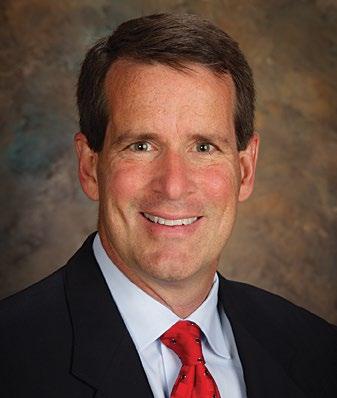

My daughter, Sarah, is a junior in college, and she is a theater arts major.
Now that I’ve learned what theater arts is all about, I think every aspiring business executive should have at least a minor in theater arts.
Theater arts is about the creation and delivery of a meaningful story in a three-dimensional, human way. There are so many parts to the creation and delivery of a story. A script needs to be written with a purpose and a plot and characters; those characters need to be selected and directed by certain types of people who can bring out the best in each person to generate scenes that are worthy of
the story to be told. Sets need to be designed that are the art that the actors step into, which is Sarah’s particular skill and passion. Lighting needs to be guided. Costumes and props need to be made, and profits need to be produced in order to afford to do it all over again.
Business is about the creation and delivery of a meaningful story in a threedimensional, human way. There are so many parts to the creation and delivery of a business. A strategy needs to be written with a purpose; a plan needs to be written for certain types of employees to deliver certain types of products and services to certain types of people. Managers need to be cultivated who can guide those employees effectively. Relationships need to be developed with certain types of suppliers. A culture needs to be established to sustain the business and help build the desired brand, and profits need to be produced in order to do it all over again.
by DAN COUGHLIN
Notice that there is the business of theater and the theater of business. They are intertwined.

every day talk about the big picture
If a producer and a director do not know what the end picture is supposed to look like and feel like, they can invest a lot of time, energy and money, and end up creating something meaningless and worthless. Knowing what the end result is supposed to look and feel like and how it connects to the purpose of the story is essential to creating a great theatrical production, TV show or film.
If a business executive doesn’t know what the end picture is supposed to be like for customers in terms of the value they receive and the experience they go through in receiving it, then they can invest an enormous amount of time, energy and money, and end up creating and delivering something that is meaningless and worthless.



Once the producer and director know the desired end result, they need to talk about that big picture, that big dream, every day so that all of the people working on the show can see what they are working toward.
Once the business executive sees the desired end result for customers and for his or her organization, then he or she needs to talk about it every day over and over and over so that the employees can see what they are working toward creating and delivering.
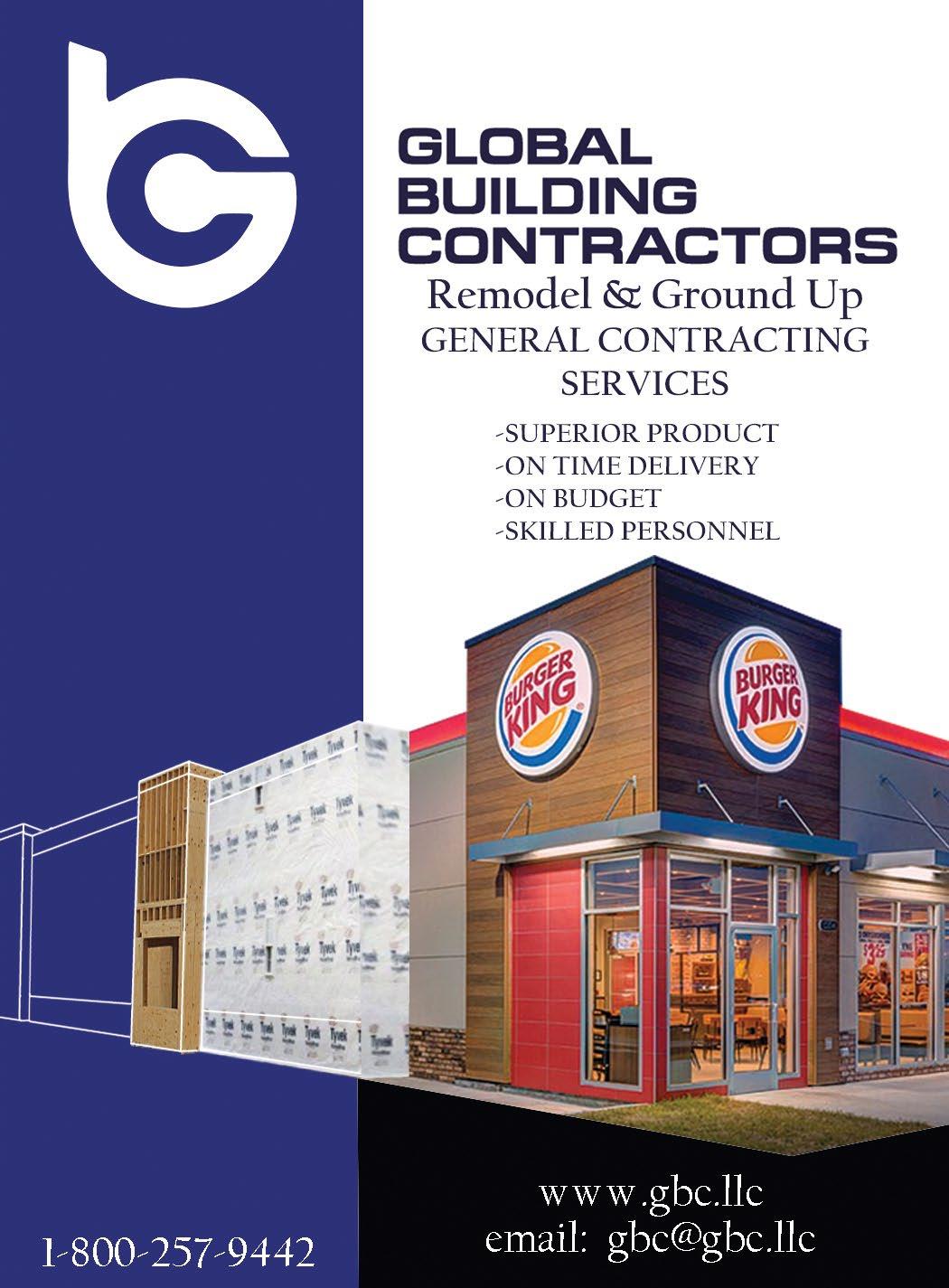

every day talk about the little details
However, vision alone does not make a great show. Along the way there are countless details that must be executed over and over in every part from the script to the set to the acting and lighting and so on. Details matter in theater, television and films. They matter a lot.
Vision alone does not make a great business. There are thousands of details that need to be focused on and executed properly. Every detail matters. They all matter a great deal.
conclusion

A beautiful example that shows the importance of talking about the big dream and the little details was the making of Disneyland in the early 1950s. Walt Disney created a television show called “Disneyland,” where he talked over and over about a theme park that would become the happiest place on earth. He showed blueprints and drawings of the park. There are iconic photos of him standing on a pile of dirt and explaining what it would become.
And then every day he talked about the details of all the different parts of Disneyland and what needed to be accomplished. This is what you need to do in your work. Every day talk about the vision and the purpose and why the end result is so incredibly important. And every day talk about the details that need to be executed in order to make the vision a reality. n
DAN COUGHLIN is president of The Coughlin Company Inc., a management consulting firm focused on improving executive effectiveness and significance. He serves as a thinking partner for executives, managers and business owners toward improving their most important desired business outcomes. He does this through executive coaching for individuals and small groups. He also provides keynote speeches and seminars on effectiveness and leadership.
2020 ISSUE 1 | Flame 45
How Leaders Can
Get
Through Others: How Micromanagement Can Kill
More Done
If you want to destroy worker initiative, blast a hole in productivity and scribble the bottom line with red ink, there’s no better way to do it than by micromanaging your employees. Keeping workers on tight leashes and constantly interrupting them ruins their ability to find thoughtful, profitable ways to do their jobs, and it wastes your valuable time as well.
True organizational productivity requires engaged, informed personnel willing and eager to work toward the organization’s mission and vision. And it all starts with a simple concept that’s amazingly hard for some people to implement: trust.
Learn to Trust
This can be a tough sell, especially if you’ve built your organization from the ground up. It’s your baby. You know all its quirks, and it can be hard to trust even small parts of it to other people, since you can’t be absolutely certain that they won’t let it come to harm somehow. But consider this: If you’re so distrustful of your employees, then why did you hire them in the first place?
Trust is the diametric opposite of micromanaging, which is based on a lack of trust that others can do their jobs. Your trust for the people who work for you should underlie every decision you make as a manager. Instead of automatically distrusting them, it’s to your advantage to assume that they can do the jobs they’ve been hired to do, assuming the proper training and opportunity.
This may require some serious reworking of your default attitude but make it your ultimate goal to be able to stand back and give them the benefit of the doubt, as long as they have the experience and can prove their competence. If they can’t, that’s when you can justifiably ride them and, as necessary, replace them.
You do need to keep an eye on everyone, but only as part of the big picture. Otherwise, give people the freedom and flexibility to get their jobs done. Meanwhile, you can be doing all those high-value things that you get paid the big bucks for, instead of trying to do everyone else’s work.
Delegate That Task!
Micromanagers tend to live by the old adage, “If you want something done right, you’ve got to do it yourself.” But the savvy leader quickly learns that you can’t get it all done right by trying to do everything singlehandedly. If you allow yourself to become a slave of your team’s day-to-day operations, your own productivity will flag along with everyone else’s.
As a manager, your core responsibilities should be things like marketing, growing the business, overseeing (but not minutely controlling) other people’s efforts, dealing with your superiors and, in general, doing whatever brings in the most profits for the organization. Your sights should always be set higher than the mundane, which means that you must delegate or outsource anything that fails to meet your high-profit standards. It just doesn’t make economic sense to run around taking care of little things, or handling crises that should be assigned to lower-paid employees.
If you get paid $50 an hour, you should never do anything that earns the company less than that. Even if you must take steps to fix something a subordinate is doing wrong, whether that involves training or replacing them, in most cases it’s still cheaper than doing the job yourself.

ProductivityandCreativity
Besides, if you waste time on other people’s jobs, you’ll have to work extra hard to get your job done. Oh, no doubt you’re willing to put in the extra time, and that’s laudable, but eventually you’re going to wear yourself out and start slipping, decreasing your own productivity and making yourself less valuable to the company.
When it comes down to the bottom line, you simply have to push every responsibility you can down to the lowest possible level. Focus on your critical few tasks, handing off everything you realistically can to other people. Again, this comes down to rejecting the temptation of micromanaging and setting your default attitude to “trust.”
In this case, let me amend that to “trust, but verify.” Just because you hand a task to someone else doesn’t mean that you can forget all about it. That’s abdication, and it’s something you can’t afford – because even when you delegate a task, you’re still responsible for it. You still have to make sure that it’s getting done consistently and on a timely basis. So occasionally, you’ll have to check in with your delegate to learn the score and, as necessary, make adjustments. Just don’t hang over them like a Sword of Damocles.
Keep an Eye on the Big Picture
By definition, a manager’s role is to provide direction for his or her subordinates, which means that you do have to get into the nittygritty of problem solving sometimes. This is fine, to a limited extent, but again, don’t try to do it all, even when you can. One of the biggest downsides of micromanaging, above and beyond the issues of trust and overwork, is that it requires you to focus too tightly on the details of organizational function. To paraphrase the old saying, you see the trees, but not the forest … and it’s your job to keep an eye on the forest as a whole, not just this oak or that sycamore.
A laser-sharp focus is ideal when you’re trying to get your own tasks done. It’s not so great when you’re putting someone else’s tasks under the microscope, while forgetting that they’re a small part of something much bigger that needs to be taken care of in its entirety. Close oversight must be the exception, never the rule. Otherwise you are, again, hamstringing your productivity, making yourself less useful all the way around. There’s another old saying for this kind of thing: penny wise and pound foolish. When you get right down to it, focusing too tightly on the little pictures while ignoring the big one is like throwing away money.
The higher you climb, the more often you have to stop and take a look at the big picture. You need to thoughtfully determine what really drives the value and results you’re looking to achieve and assign most of
46 Flame | 2020 ISSUE 1
your attention to those items. What things have the biggest impacts on the company? What makes these things important? What can you do to make them better? That’s what you should ask yourself. If necessary, find a business mentor who can help you widen your focus, based on their own experiences, or educate yourself on how others have done so in the past. There are plenty of books on the subject.
It’s been said that the devil is in the details and perhaps that’s so, but if you hire people that you can trust to do their jobs, then by and large the details will take care of themselves. You need to pull back from the individual pixels and look at how it all comes together to make a profit for your organization. Worry about your corporate or organizational strategy first. Put good people in place, get all those other big-picture ducks in a row and the little things will fall into line with a minimum of fuss.
Encourage Employee Engagement
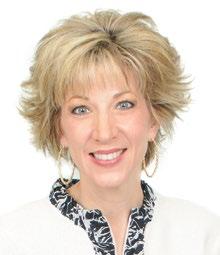


What would you rather have: a bright-eyed, engaged employee who “owns” her job, knowing that she has a say in how things are done and is therefore invested in the company’s success … or a disengaged drone who keeps his head down, does the minimum necessary to scrape by and cares only for his paycheck? That’s an easy enough choice, right? Sadly, though, the second type of employee is at least as common as the first, and they’re separated by a wide “mediocre middle” consisting of the partially engaged and unengaged.

The relationship between employee engagement and productivity isn’t precisely one-to-one, but as a rule, workers with a high level of engagement are willing to try harder, so they tend to be more productive than people who work only to put food on the table. Engaged workers enjoy and appreciate what they’re doing. This makes them willing to go the extra mile, which in turn makes them invaluable.
The equation is simple: more productive workers means higher
profits, and engaged employees are more likely to be productive than their unengaged or actively disengaged co-workers. They also tend to be safer, more customer-focused and less likely to jump ship. To put it another way, employee engagement has a high return on investment … whereas disengaged employees represent a financial drain. Gallup estimates that employee disengagement costs American businesses as much as $300 billion a year in lost productivity.
by LAURA STACK
To engage employees, you must empower them. Let them take initiative in their work and let them know that they’re allowed to. This requires something of a hands-off attitude, though again, abdication is never a good idea. Communication must be your watchword here. It may very well be the most important factor in encouraging employee engagement, and it must be bidirectional. Make your vision and intentions clear to your employees and allow them to provide feedback on most matters. You may not agree with them, and nothing may come of their suggestions, but it’s the opportunity to contribute that matters – and you might just find that they have a great deal of wisdom to communicate, if you’ll listen.
As part of your communication effort, you’ll need to help each employee understand their place in the company, and how they’re contributing when they do their jobs well. Explain both the what and the why and ask them if they understand their roles and have any ideas about how they can improve the associated systems and processes. This is another place where your understanding of the big picture is crucial, and as they say, when you teach someone something, you’re also teaching yourself.
Continued on page 48
2020 ISSUE 1 | Flame 47 Guests love mints and feel special and valued. Mints are an extra touch that leads to increased revenue! ~ BK® Franchisee Owner ” Join other Burger King Franchisees, who are ® Mints as a simple treat that keeps customers coming back. 61% REPEAT CUSTOMERS. INCREASED CUSTOMER LOYALTY. A BOOST IN YOUR BOTTOM LINE. hospitalitymints.com to get started with custom-wrapped mints today. Now at’ s SWEET!
Productivity
Continued from page 47
Provide Critical Training
Speaking of teaching, you need to be willing to provide the education and training that your employees require to do their jobs effectively. Proper training takes some of the strain off you and makes micromanaging unnecessary. On the employee side of the equation, good training can:
• Develop critical knowledge and skills.
• Increase awareness of company policies and operations.
• Demonstrate the company’s mission and vision, and the employee’s place in the corporate structure.
• Encourage engagement.
• Improve motivation and confidence.
• Re-emphasize the need for quality and excellence.

• Promote efficiency.
• Decrease the likelihood of accidents and injuries.

• Reduce turnover.
All this, taken together, can’t help but increase productivity. A good training program can also buff the company’s public image, help the company stay competitive and attract more and better job candidates.
The Final Analysis
As is so often the case, the factors I’ve discussed in this article interrelate in ways that are hard to separate and can be difficult to quantify. But what it all comes down to is that you must be willing to tear yourself away from the minutiae of your team’s daily
operations, take a deep breath and step back. Be flexible. Trust your people. Encourage their participation in the company’s success. In short, give them an opportunity to grow and flourish, without being stifled by your constant hovering. Allow them to be creative and productive on their own terms.
Stepping back also gives you a better view of the overall big picture. This allows you to more easily guide your organization in the direction that you and the company want it to go. It’s rather like being the captain of a ship: where you really need to be is up on the bridge, overseeing everything, steering your vessel through the straits and avoiding all the reefs and other perils that you can more easily see from your elevated position.
If you spend too much time down on the deck nitpicking a sailor’s performance – or worse, hauling the lines and clearing the deck yourself – then you’re eventually going to hit something and wreck the ship. And if that happens, you’ll have no one to blame but yourself. n
LAURA STACK, MBA, CSP, CPAE, aka The Productivity Pro®, gives speeches and seminars on sales and leadership productivity. For over 25 years, she’s worked with Fortune 1000 clients to reduce inefficiencies, execute more quickly, improve output and increase profitability. Laura is the author of seven books, including “Doing the Right Things Right: How the Effective Executive Spends Time.” To invite Laura to speak at your next event, visit www.TheProductivityPro.com.
t

Tyson Foods is proud to partner with Burger King® for menu breakthroughs like the new Crispy Chicken and Chicken Fries. As one of the world’s largest protein producers, it’s an honor to team up with the Burger King® system supplying products made with clean ingredients including tacos, chicken, tortillas and more plus innovation along the way.
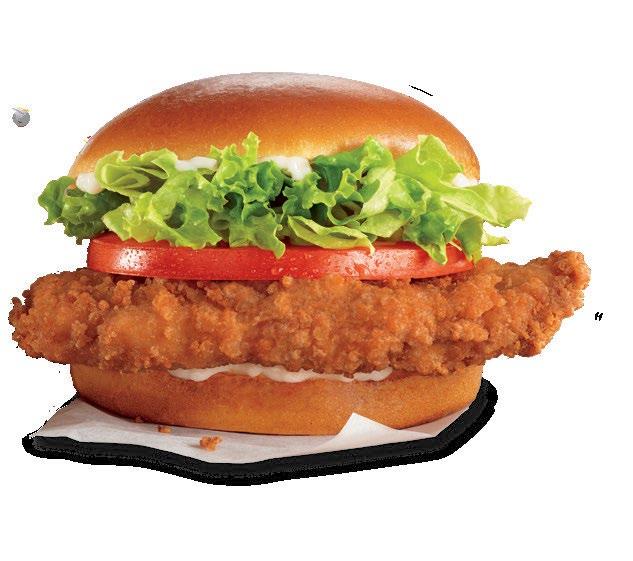

For more information contact: Tom Cheek RTIconnect@xenial.com

48 Flame | 2020 ISSUE 1
-sized Partners featuring Clean
©2019 Tyson Foods, Inc. All other trademarks and registered trademarks are owned by their respective owners.
Iconnec
Xenial Back Office Optimize Shift Staffi Automate Schedulin Near-Real-Time Repo Dashboards & Ale Forecasting Control Food Costs
ingredients.
R T
A Global Payments Company
New Tax Law Changes for Restaurant Owners New Year,
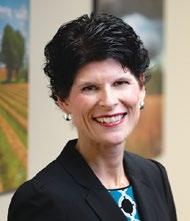
Just as we welcomed in 2020, it’s also time to usher in new tax changes that could impact you and your restaurant’s operations. Here are a few changes you need to know about.

Form W-4 for Withholding Revised and Redesigned.

The IRS released its long-awaited final version of the W-4 (retitled Employee’s Withholding Certificate) with major revisions designed to make accurate income-tax withholdings easier for employees starting in 2020. According to the IRS, the “new design reduces the form’s complexity and increases the transparency and accuracy of the withholding system.” It also accounts for changes from the Tax Cuts and Jobs Act that suspended personal exemptions and increased the standard deduction. The IRS posts answers to frequently asked questions about the new form at www.irs.gov/newsroom/faqs-on-the-2020-form-w-4.
In addition, some states issued guidance on how to compute withholding to account for the federal changes.
New Overtime Rules Were Issued.
No doubt you’ve read about the Department of Labor finalizing overtime rules that went into effect Jan. 1. The salary threshold for a highly compensated employee (HCE) to be exempt from receiving overtime increased from $100,000 to $107,432. For employees who are classified as executive, administrative or professional (EAP) employees exempt from receiving overtime, the minimum salary level has increased from $455 per week to $684 per week ($35,568 annually). Employers can now use non-discretionary bonuses and incentive payments (including commissions) that are paid at least annually to satisfy up to 10% of the standard salary level.
Double-Check Unemployment Tax Rates in Your State.
States that increased the amount of taxable wages subject to unemployment tax (the taxable wage base) in 2020 include: Alaska, Colorado, Hawaii, Idaho, Iowa, Kentucky, Minnesota, Montana, Nevada, New Jersey, New Mexico, New York, North Carolina, North Dakota, Oklahoma, Oregon, Rhode Island, Utah, Vermont, Washington and Wyoming.
Arkansas, Illinois, Missouri and Ohio have lowered their taxable wage base.
The Minimum Wage Rate Changed in Many States.
The following states increased their minimum wage rates on Jan. 1: Alaska, Arizona, Arkansas, California, Colorado, Florida, Illinois, Maine, Maryland, Massachusetts, Michigan, Minnesota, Missouri, Montana, New Jersey, New Mexico, New York, Ohio, South Dakota, Vermont and Washington.
Also be aware that some localities have increased their minimum wage rates as well.
Other Changes.
The Section 179 deduction – the amount of business equipment purchases that can be immediately expensed – increased to $1,040,000, up from $1,020,000, and the phaseout increased to $2.59 million of total eligible purchases (specific qualifications apply).
Individual Limits Have Also Changed.
by STACY SMITH
The IRS made inflation adjustments to a range of key figures, including individual income tax brackets. Pay attention to your standard deduction for the 2020 tax year. The IRS has bumped it to $12,400 for singles, up from $12,200 in the prior year. The standard deduction for married joint filers will be $24,800, up from $24,400 in 2019.
The Social Security tax wage base has increased to $137,700 for 2020 (up from $132,900); employee portions of Social Security and Medicare remain unchanged at 6.2% and 1.45% of wages, respectively.
Traditional and Roth IRA contribution limits did not change for 2020 – $6,000 for each type of IRA, with an additional $1,000 “catch-up” contribution allowed for account owners 50 and older.
In addition, the age restriction on contributions to traditional IRAs for tax years starting in 2020 has been repealed. This only applies to taxpayers who meet other requirements to make IRA contributions (i.e., earned income, not participating in a qualified plan, etc.)
The required minimum distribution age for IRAs is now raised from 70 and a half to 72. Before 2020, retirement plan participants and IRA owners were generally required to begin taking minimum distributions, or RMDs, from their plan by April 1 of the year following the year they reached 70 and a half. This age requirement was first applied in the retirement plan context in the 1960s and, until recently, had not been adjusted to account for increases in life expectancy.
Limits on 401(k) plan deferrals increased from $19,000 to $19,500, and the catch-up contribution limit also increased from $6,000 to $6,500.
Similarly, limits on SIMPLE deferrals increased from $13,000 to $13,500. However, the SIMPLE catch-up contribution limit remains unchanged at $3,000.
New laws include a lot of important changes, including highly technical items that affect both business and individual tax returns. For more information about the changes and how they might affect you, your business and your employees, consult your payroll processor or tax adviser. n
2020 ISSUE 1 | Flame 49
STACY SMITH, CPA, is a shareholder with Mize CPAs Inc. (formerly Mize Houser & Company), a full-service accounting firm that has provided the Elevanta Payroll & Accounting solution for NFA members.
One topic: 10 facts
Plant-Based Proteins
1
By 2040, the conventional meat supply will drop by more than 33%, according to a report from the consulting firm AT Kearney.
2
The global plant-based protein market is expected to grow at a compound annual growth rate of 8.1% from 2019.
3
Restaurant experts ranked plant-based proteins as the No. 2 food-and-menu trend over the next decade.
4
Established novel vegan meat replacement brands such as Beyond Meat, Impossible and Sunfed raised approximately $900 million in global funding in 2018, and this number is expected to grow over the next few years.
5
The soy protein segment commanded the largest share of the overall plant-based protein market in 2019, but the pea protein segment is expected to witness a rapid growth by 2025.
6
According to a HealthFocus international study, 52% of consumers have made dietary changes within the last two years to include more plant-based foods and beverages …

7
And 57% of these consumers see this as a permanent change as opposed to just 14% who are experimenting.
8
The amount of plant-based protein product launches has increased 300% since 2013.
9
As of December, over 18 chains offer plant-based alternatives in their restaurants.
10
The global plant-based protein is estimated to reach a value of $14.32 billion by 2025.
Sources: TechCrunch, Food Navigator USA, Restaurant.org, Business Insider
50 Flame | 2020 ISSUE 1

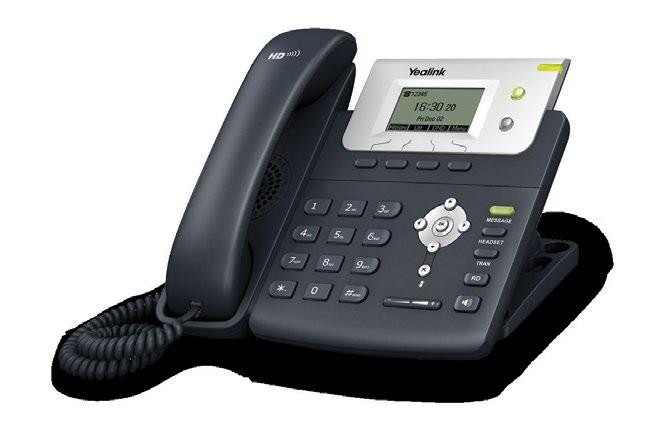
2020 ISSUE 1 | Flame 51 Cut your business phone service bill in half! Sign up by June 30 th. Get a free phone.* 042820KN Get the features designed to help your franchise grow sales and contain costs. With Ooma Office, you’ll get the most reliable, easiest to use, simplest to set-up business phone service in the industry. Reduce your costs Monthly service fee is just $19.95 per user. Each account comes with a main line number, a toll free number, and direct extension to one user. Great features for your franchise! Easily manage employees and locations with extension dialing, mobile app group texting, auto attendants and more. Setup and switching is so easy Do-it-yourself installation sets up in minutes. And you can transfer your existing number free. If you need help, we’re here with 24/7 customer support. *This free phone offer is applicable to Ooma provisioned T21 Restock IP Phone only. Hurry! Call 866-464-3026 or visit ooma.com/burgerking Operate your Burger King on the #1 rated business phone service. • Reduce your monthly phone bill. • Get more features. • Connect with employees and locations easily.
2020 Editorial Calendar
Call for Franchisee News

FLAME, Issue 2 is due out July 2020. We want to highlight any news or events associated with our members. If you have ideas for potential stories, please contact communications@nfabk.org or 678-797-5165 by May 15. Our editorial staff can assist in writing the story for you.

52 Flame | 2020 ISSUE 1 DIRECTORY Advertisers Guide 2021 NFA LEAD Conference CS BURGER KING McLAMORESM Foundation 35, 39 bkmclamorefoundation.org afitzsimmons@rbi.com Casablanca Design Group 7 470-308-5209 john.harrison@casablancadesign.com DTiQ 23 800-933-8388 info@DTiQ.com Ecolab 11 800-529-5458 ecolab.com/qsrmachinewarewashing Elevanta Health 3 678-439-2283 elevantahealth.com/nfa Frontline International 12 877-776-1100 www.frontlineii.com Global Building Contractors 45 800-257-9442 www.gbc.llc Gycor International 9 800-772-0660 www.gycorfilters.com Hall Financial Advisors, LLC 43 866-865-4442 HallFinancialAdvisorsLLC.com J.R. Simplot 11 704-391-8321 simplotfoods.com Lockton Affinity IB 844-403-4947 Elevanta@LocktonAffinity.com Keurig Dr Pepper BC 561-236-8123 kelton.graham@kdrp.com Mount Franklin Foods 47 904-923-4053 hospitalitymints.com National Franchise Sales 37 949-428-0492 www.nationalfranchisesales.com Ooma Office 51 866-464-3026 www.ooma.com/burgerking Pacific Premier Franchise Capital IF 402-562-1800 ppbifranchise.com rapid! 47 888-828-2270 rapidpaycard.com RSI 33 305-529-2123 helpdesk@rsilink.com SKECHERS 7 855-759-7463 www.skechers.com/direct/burger-king The Coca-Cola Co. 27 800-241-COKE www.coca-cola.com The Hershey Co. 45 636-265-0811 hersheyfoodservice.com The Middleby Corp. 37 800-643-2656 sales@nieco.com Traitset Hire 25 563-580-2649 www.traitset.com Tyson Foods 48 410-340-3974 tysonfoodservice.com Welbilt 40 813-504-9262 welbilt.com Xenial 48 RTIconnect@xenial.com www.xenial.com *IF=Inside Front, CS=Cover Sheet, IB=Inside Back, BC=Back Cover
ISSUE AD ARTWORK PUBLICATION DEADLINE DATE 2 May 27 July 17 3 Aug. 20 Oct. 9 4 Oct. 22 Dec. 9

Bringing better insurance options to business owners like you. Lockton Affinity is now a co-broker with Elevanta. As a franchise owner looking for insurance coverage to protect your business, you can expect more from Lockton Affinity and Elevanta: Lockton Affinity, LLC | 10895 Lowell Avenue, Suite 300 | Overland Park, KS 66210 Mailing Address: Lockton Affinity, LLC | PO Box 410679 | Kansas City, MO 64141 | Phone 913.652.7500 Copyright © Lockton Companies. All programs administered by Lockton Affinity, LLC. D/B/A Lockton Affinity Insurance Brokers, LLC California License #0795478. Learn more about this new partnership and its offerings by contacting Lockton Affinity at Elevanta@LocktonAffinity.com or (844) 403-4947. Tailored product offerings Protecting against the risks your business faces can be difficult. With coverage from Elevanta and Lockton Affinity, you receive tailored coverage designed with your requirements in mind. Complimentary policy reviews Concerned you don’t have the right protection for your franchise? Email Lockton Affinity at Elevanta@LocktonAffinity.com with your current insurance policies and we will review them free of charge to ensure your franchise has the right policies and limits in place. Risk management tools We offer risk management tools like loss prevention plans, risk management articles and newsletters, and webinars to help you mitigate risk—and lower your insurance premiums—over time.

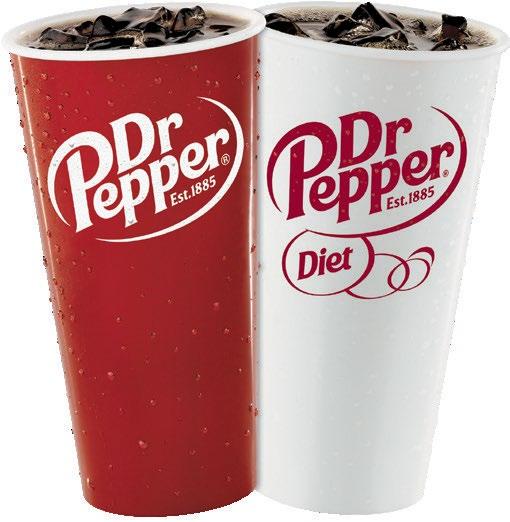
PROUDLY DOING BUSINESSSINCE 1968 TOGETHER The BURGER KING® Account Team at Keurig Dr Pepper® is dedicated to growing your beverage sales and profits! WEST Tracy Kearns National Account Executive – West (951) 340-1320 tracy.kearns@kdrp.com SOUTH EAST Josh Hanley National Account Executive – Southeast (770) 844-1597 josh.hanley@kdrp.com Larry Foresee National Account Executive – Central (214) 618-0787 larry.foresee@kdrp.com Jeffrey Jenrich National Account Executive – Northeast (608) 318-2661 jeffrey.jenrich@kdrp.com Kelton Graham Vice President, BURGER KING® Account (561) 236-8123 kelton.graham@kdrp.com LET’S GET GROWING! DR PEPPER is a registered trademark of Dr Pepper/Seven Up, Inc. ©2019 Dr Pepper/Seven Up, Inc. TM & ©2019 Burger King Corporation. All rights reserved. Leslie McCormick National & Regional Marketing Manager, BURGER KING® Account (972) 673-6057 leslie.mccormick@kdrp.com NORTH EAST CENTRAL












































































 by SAVANNAH DALY
by SAVANNAH DALY




















































 Redberry
Redberry









 1 BURGER KING restaurant
1 BURGER KING restaurant












































